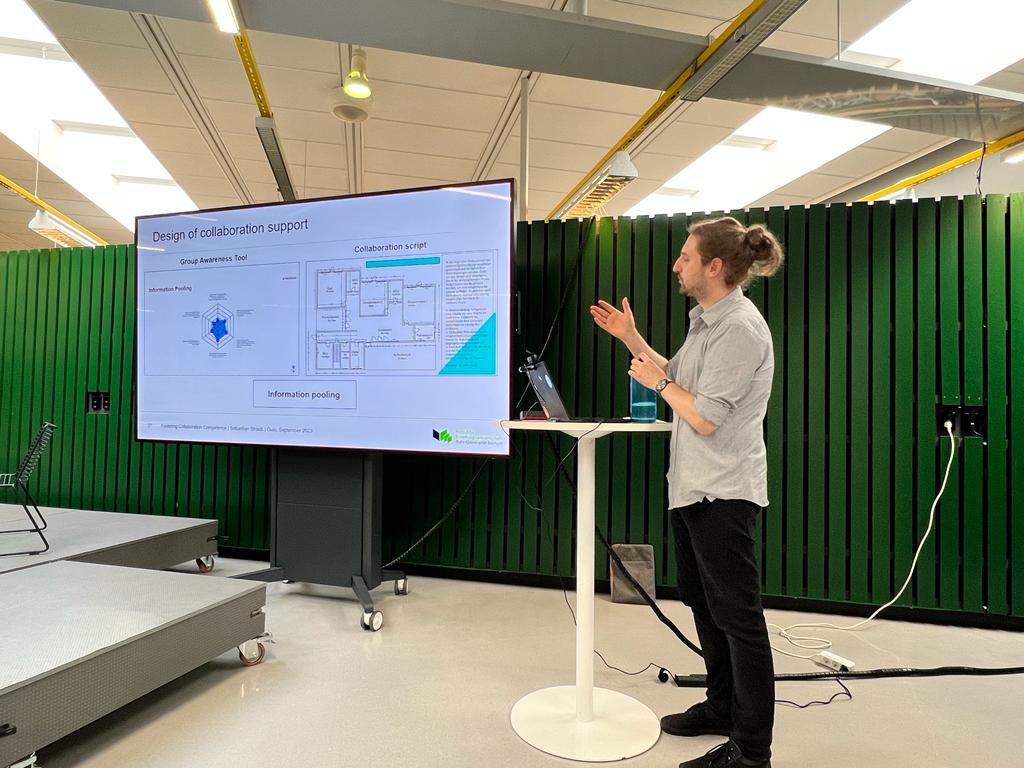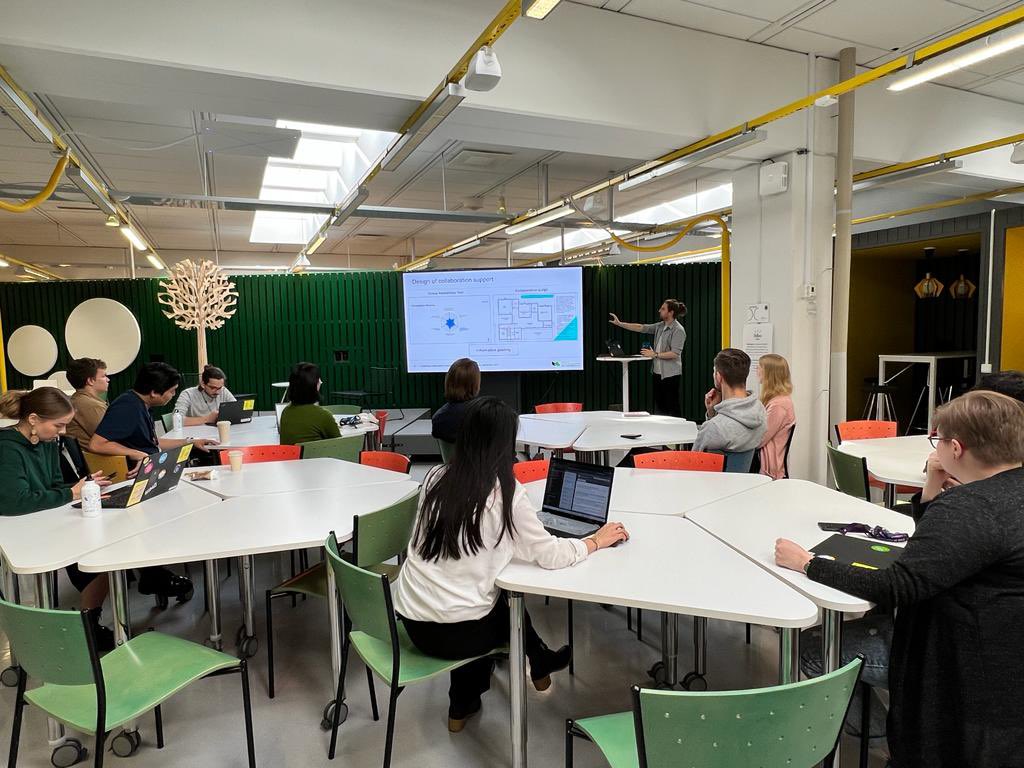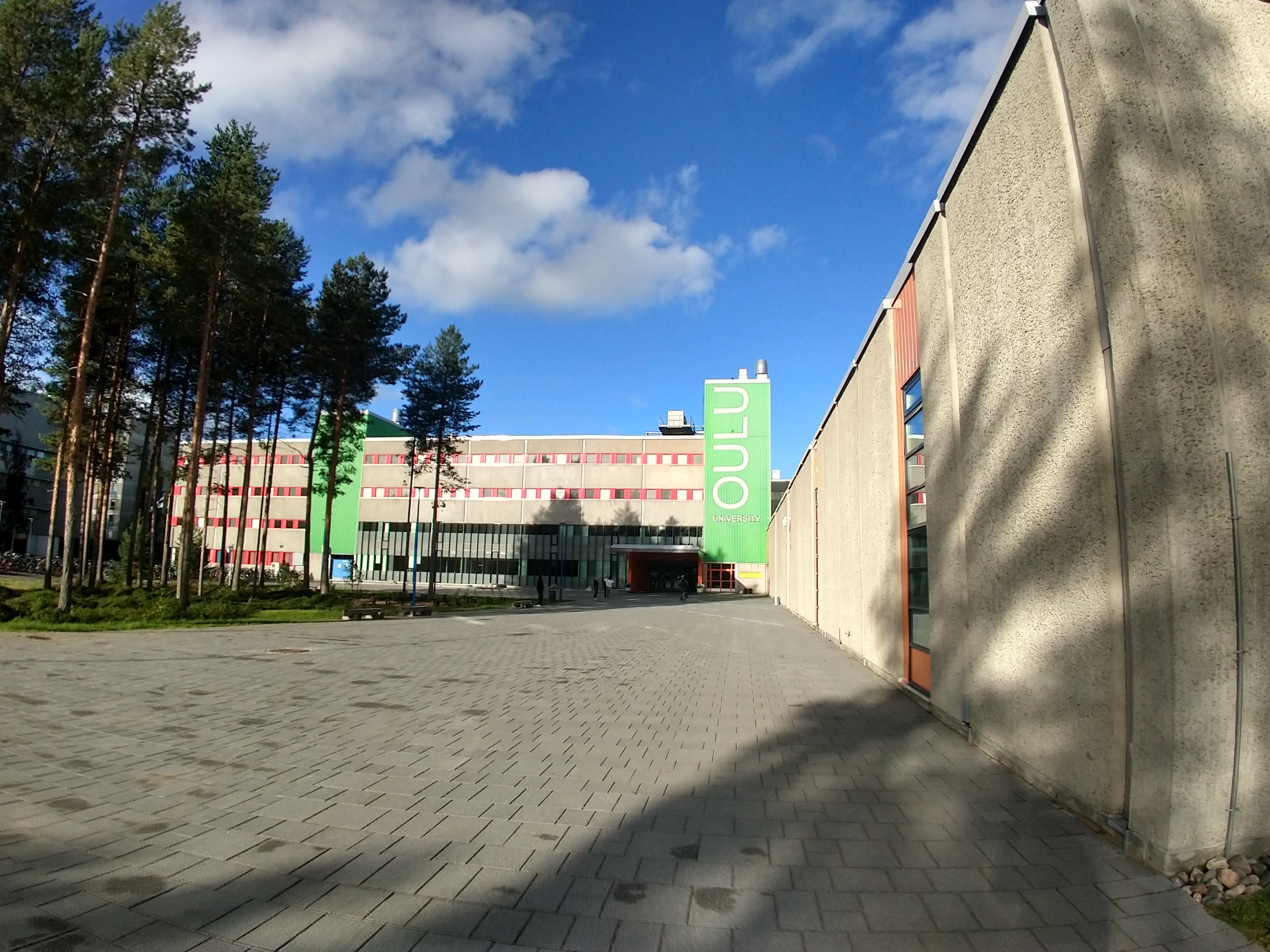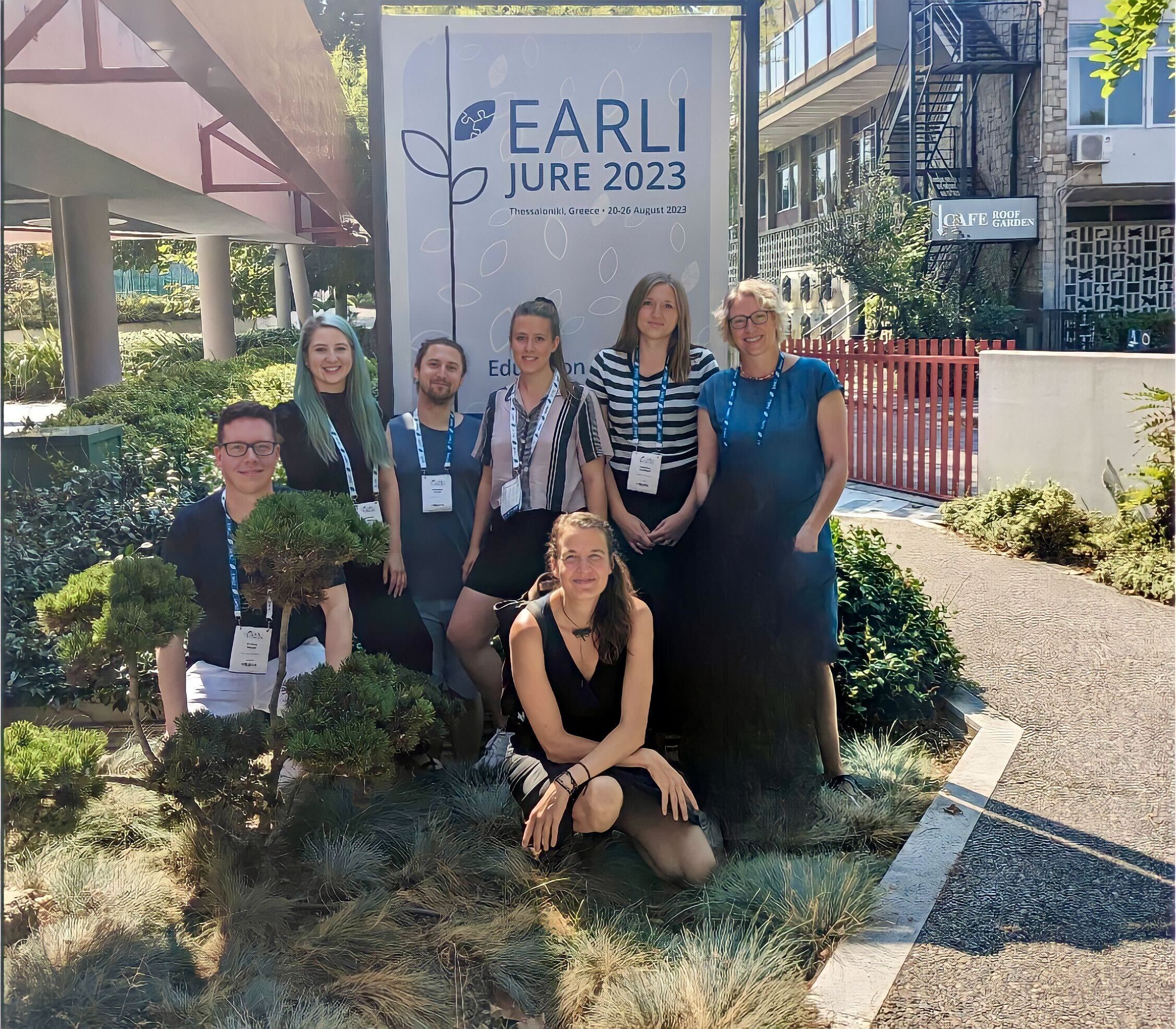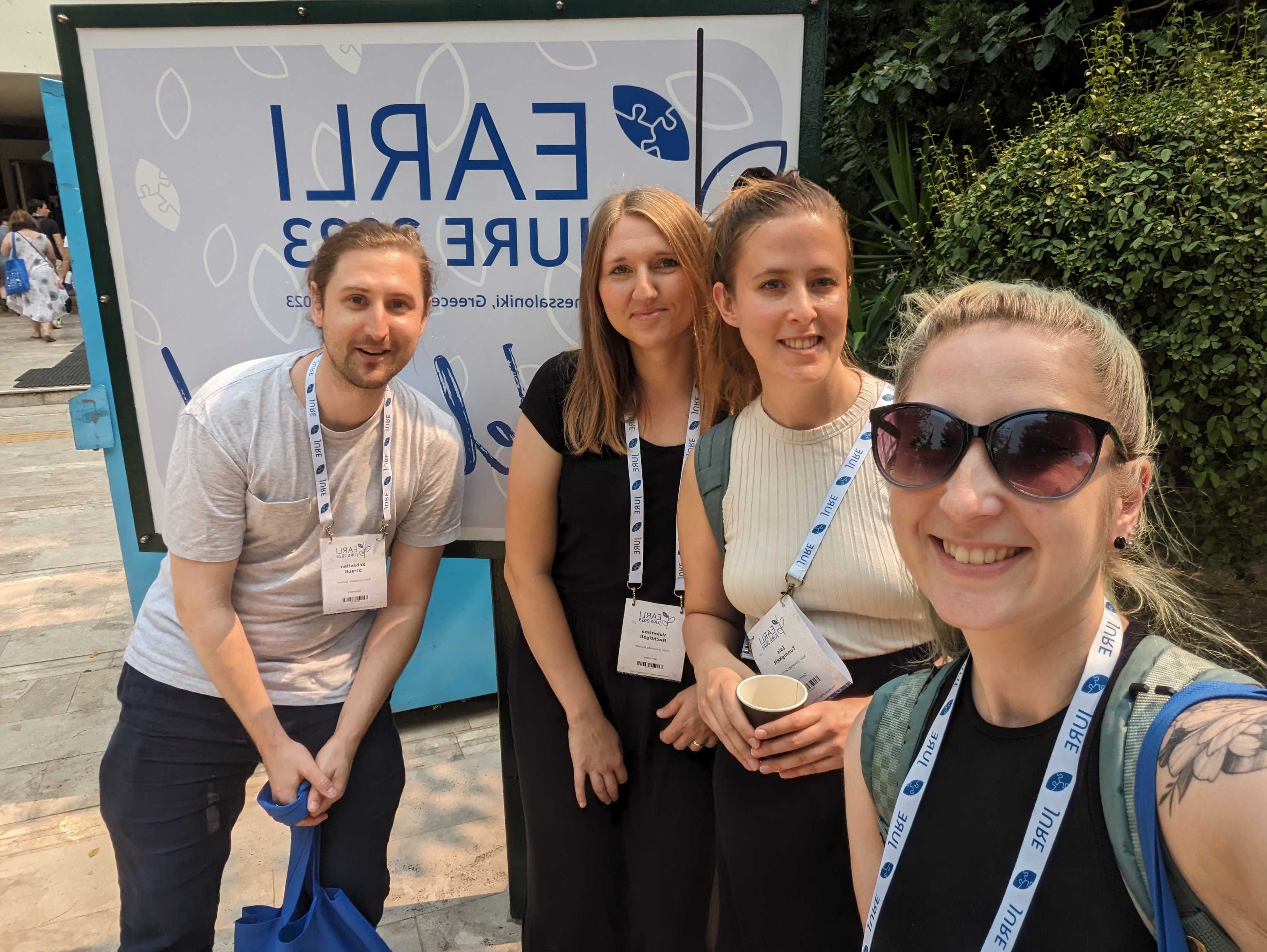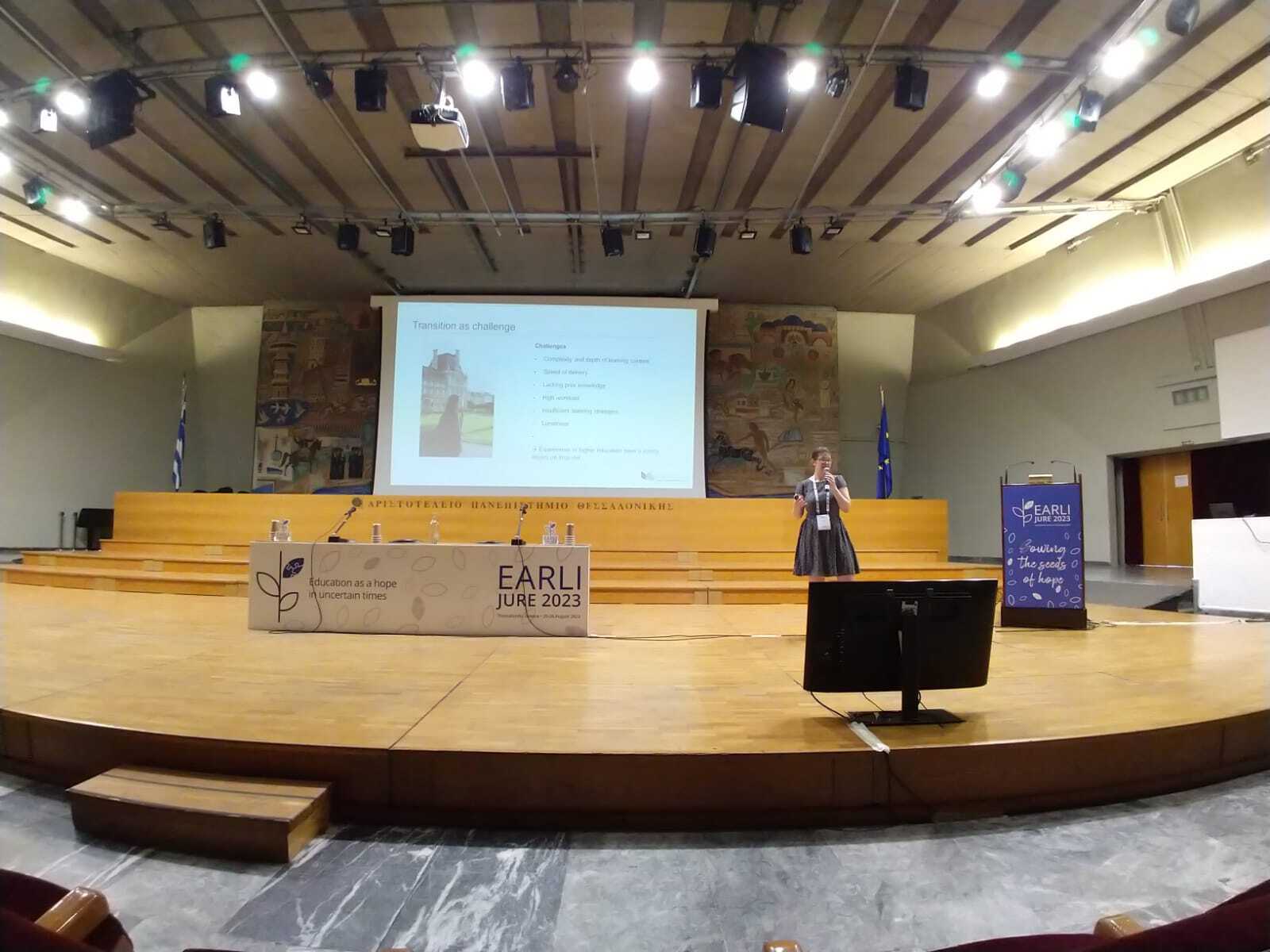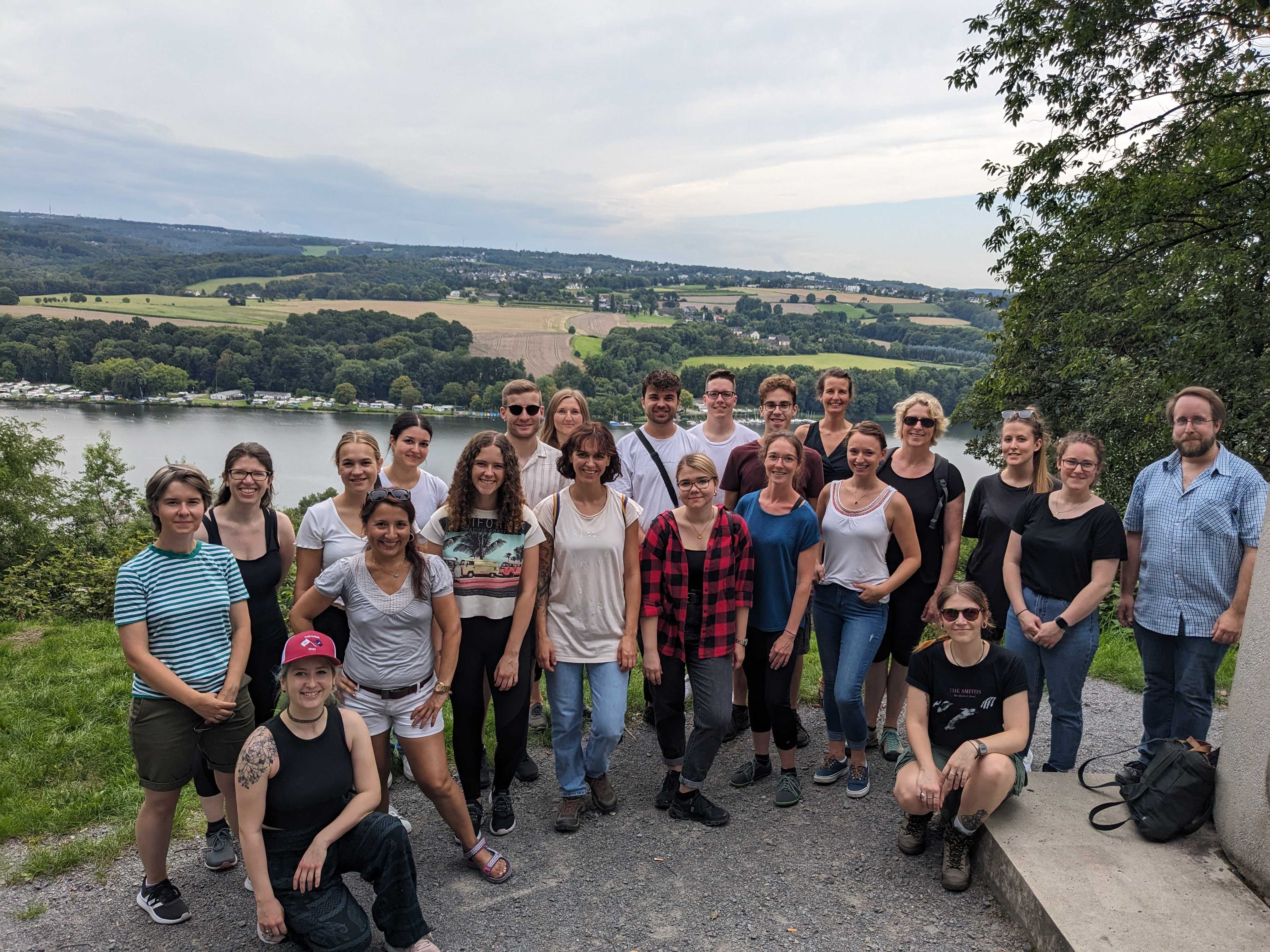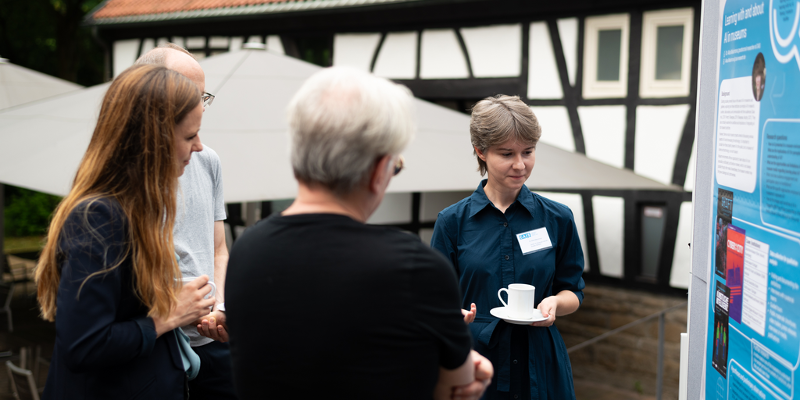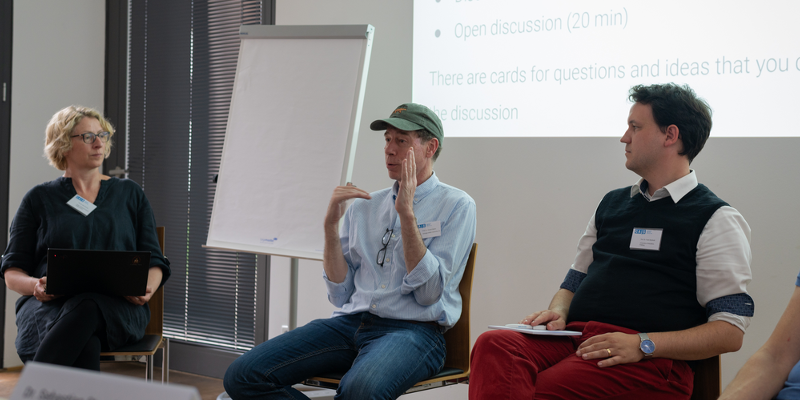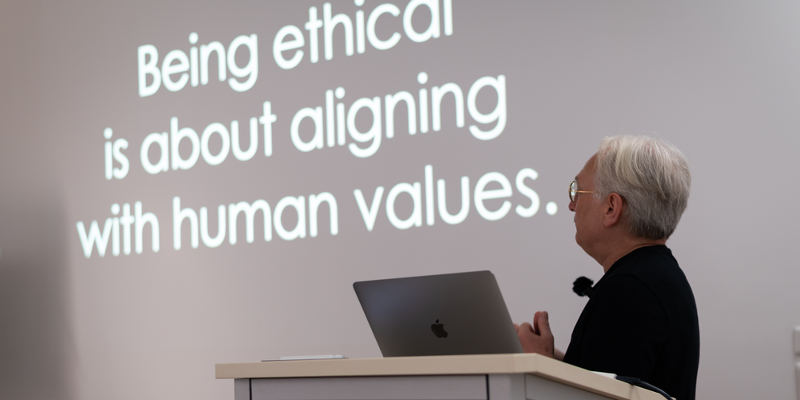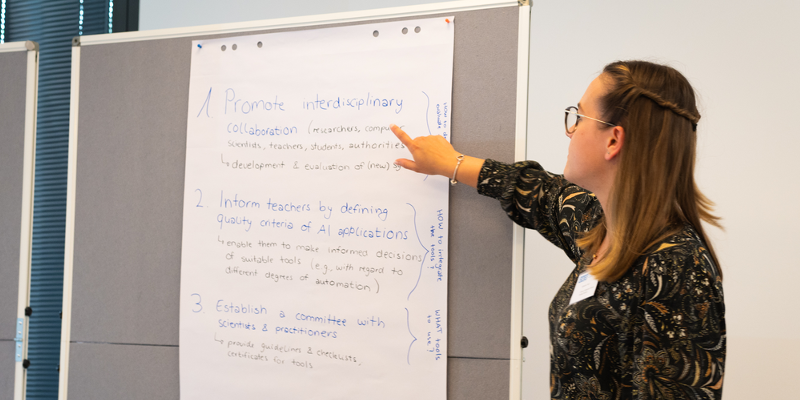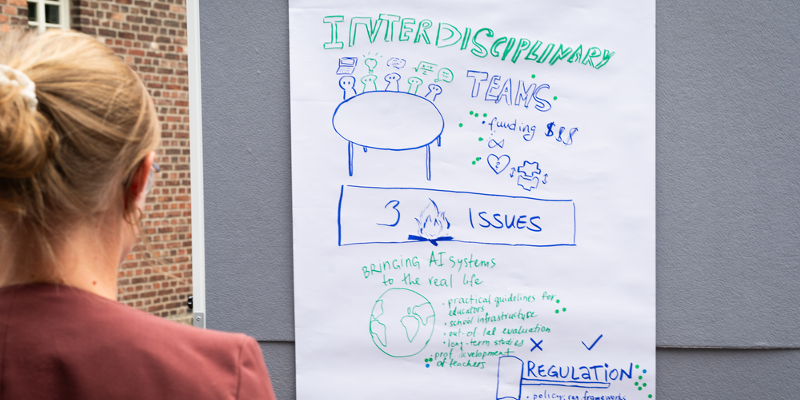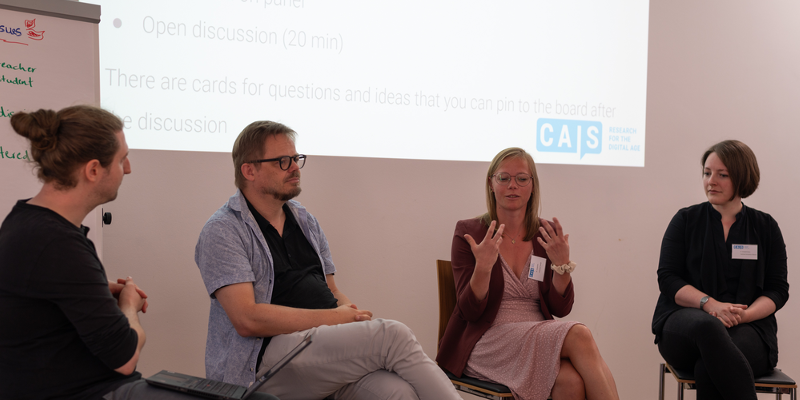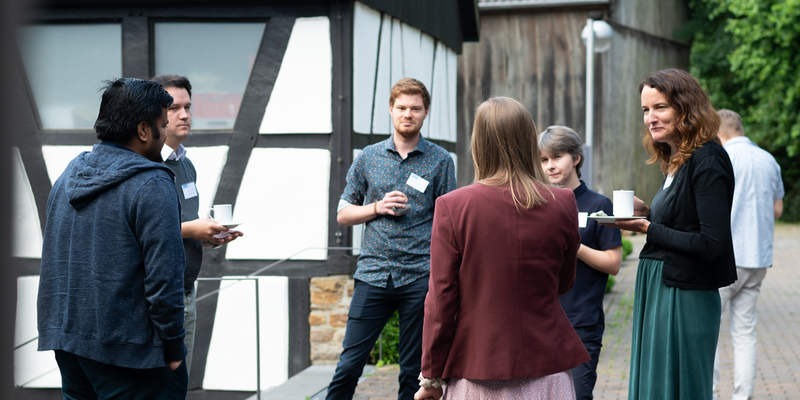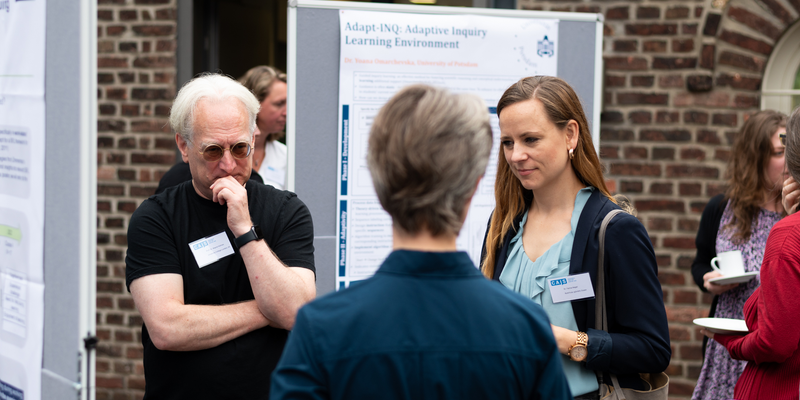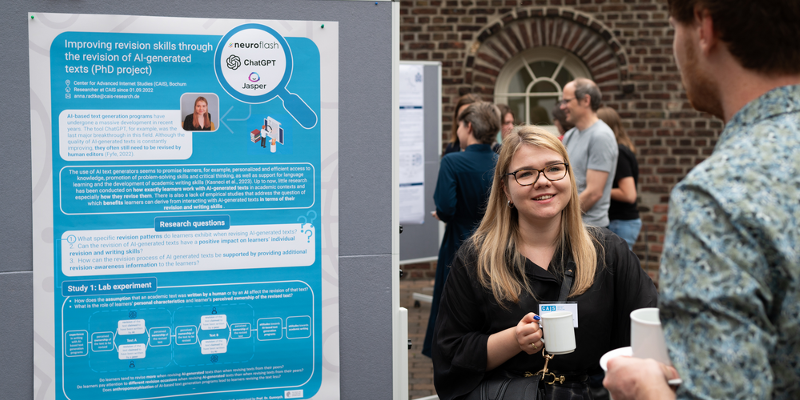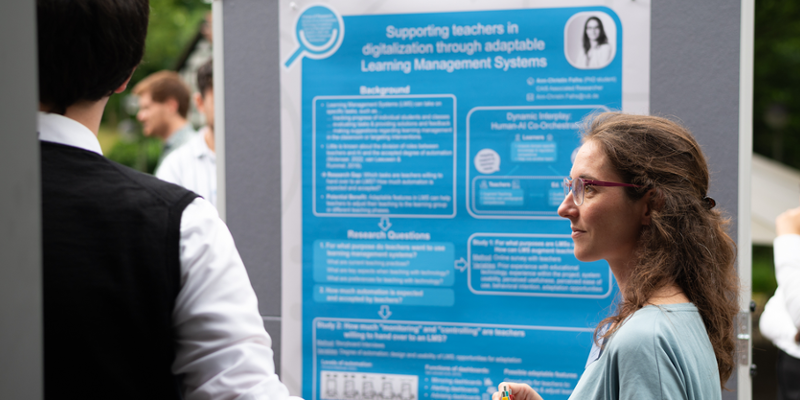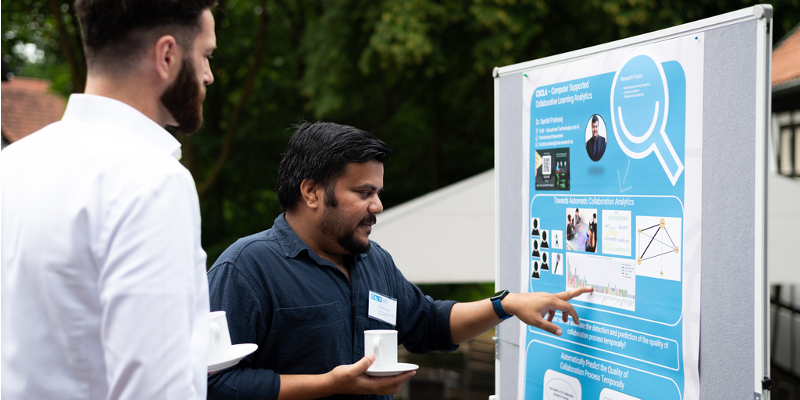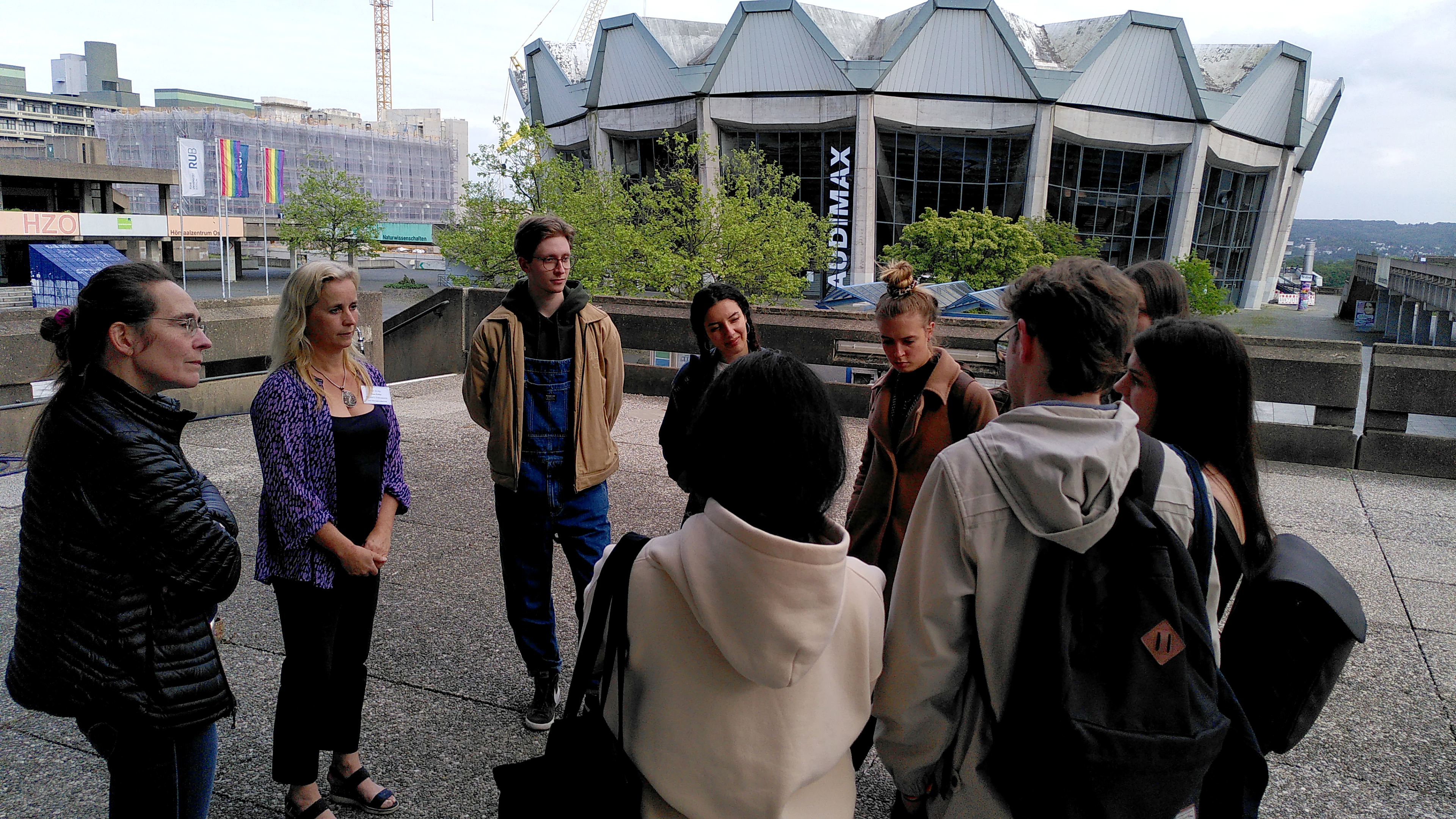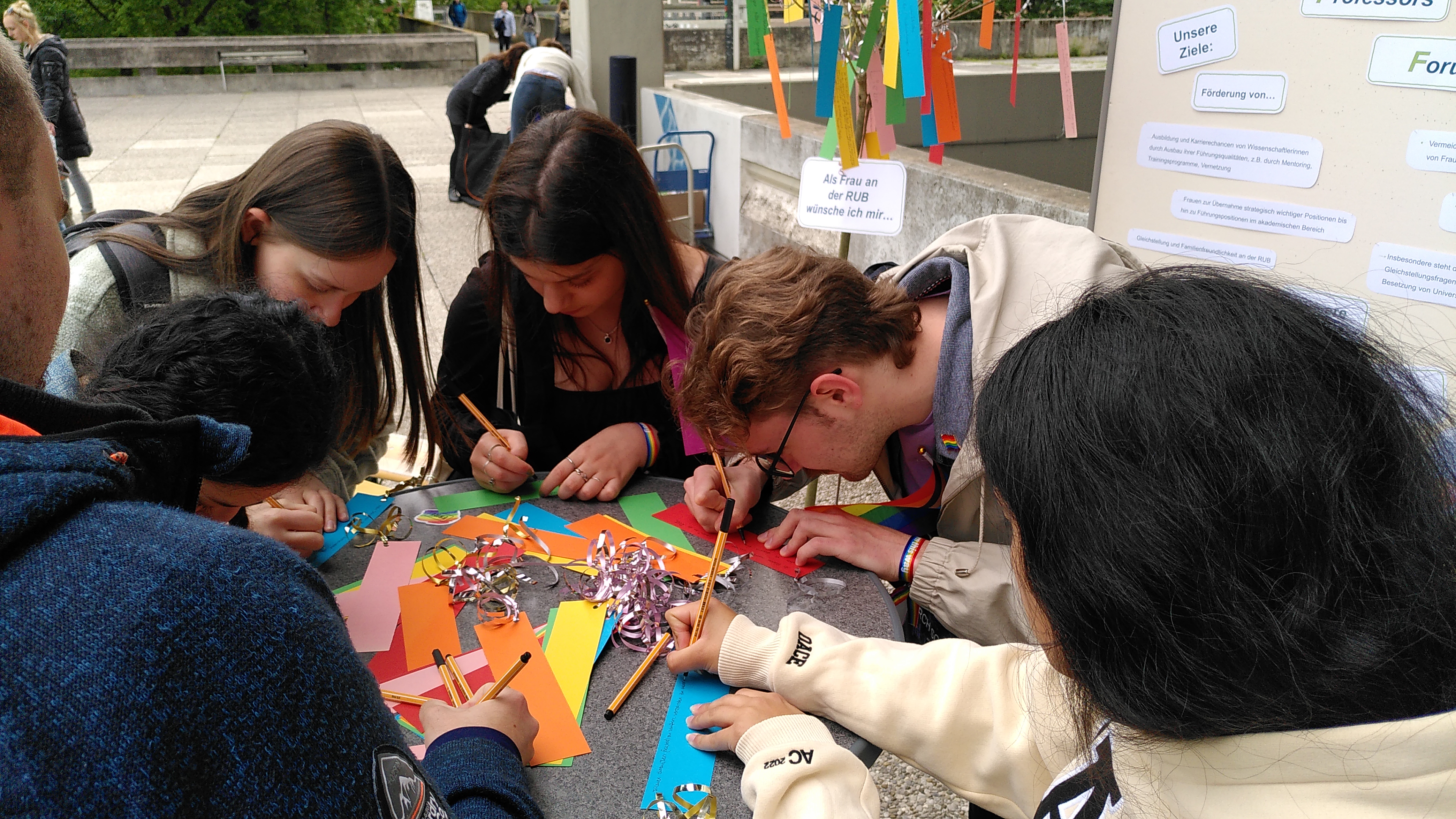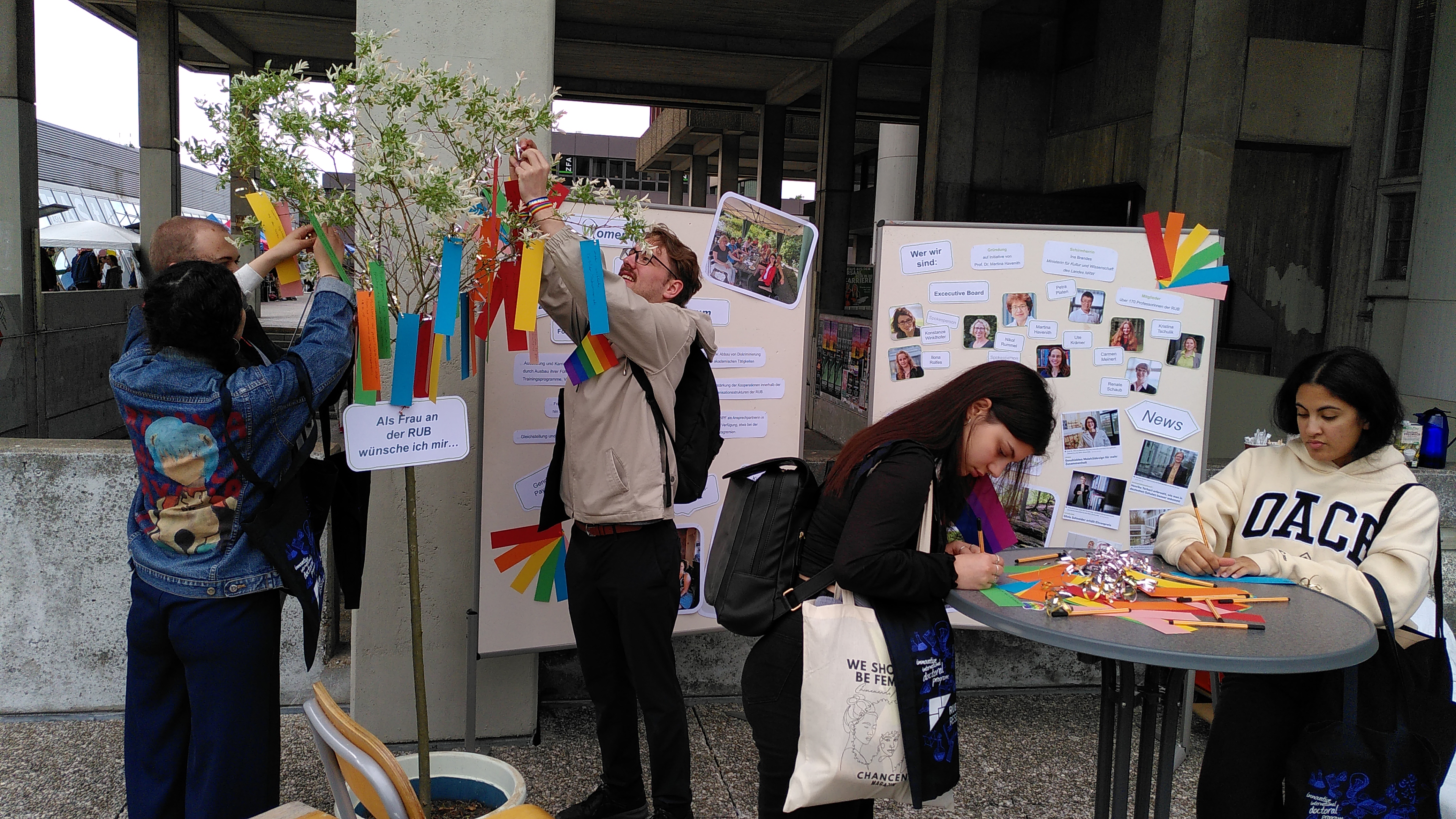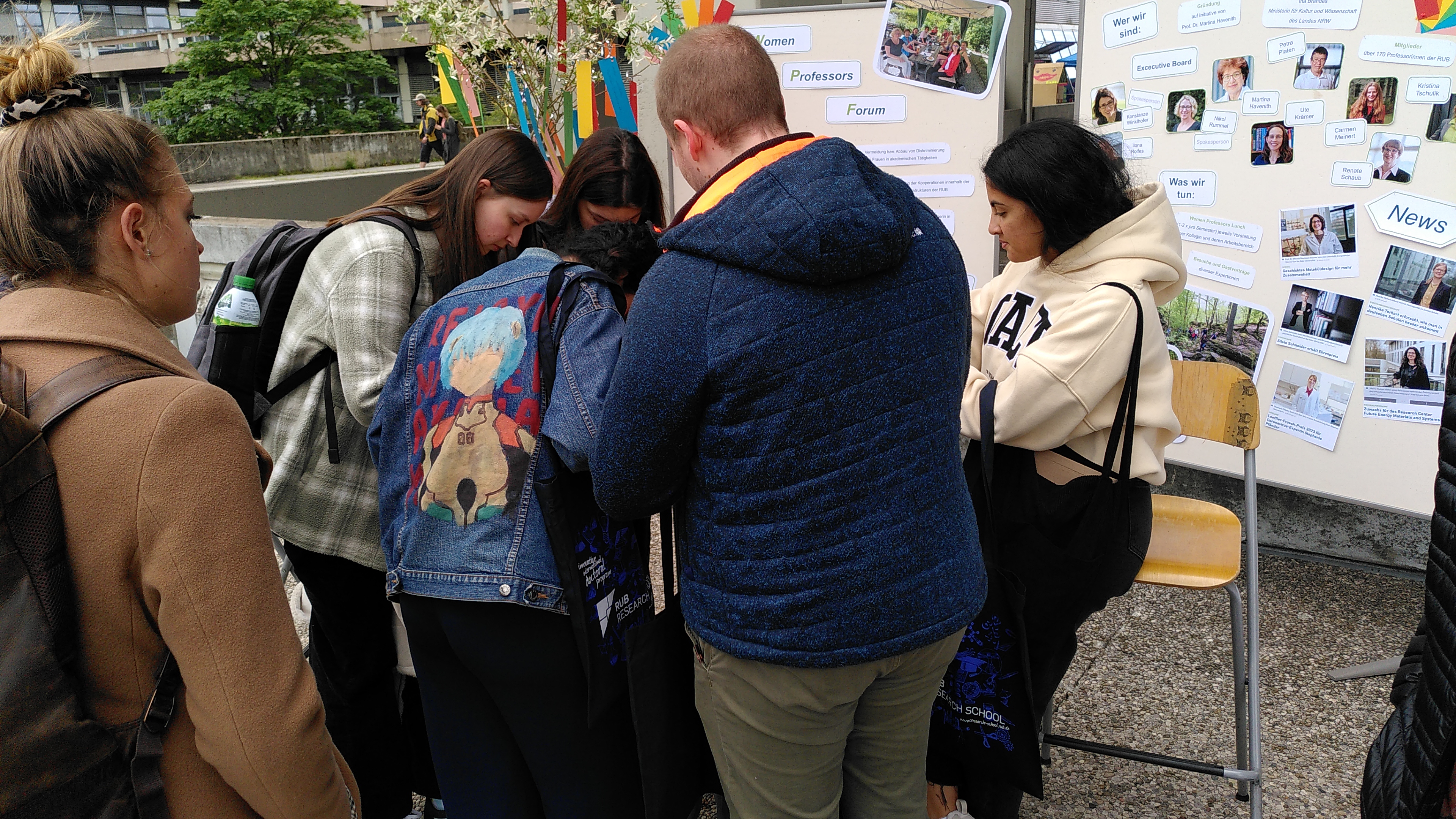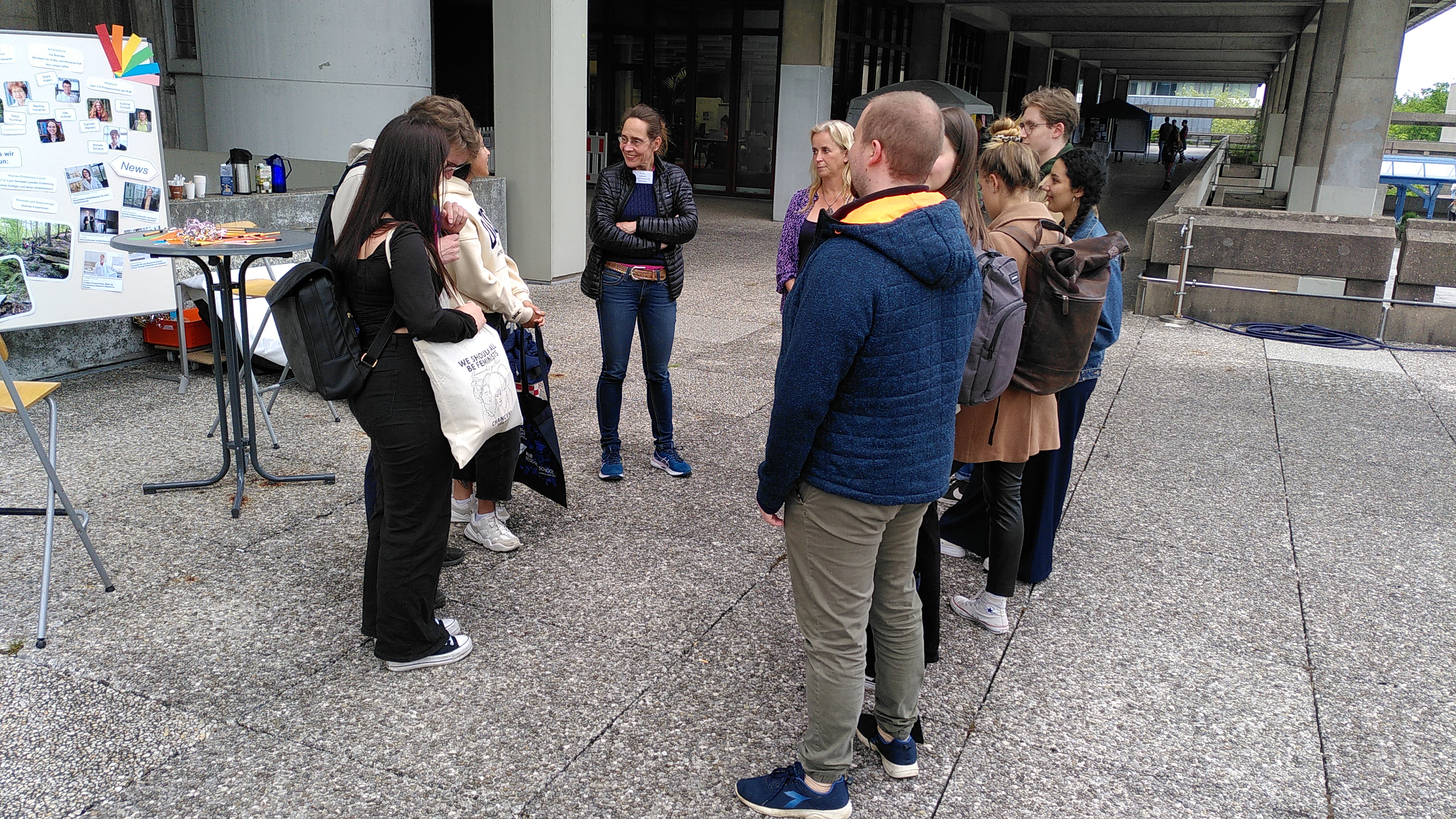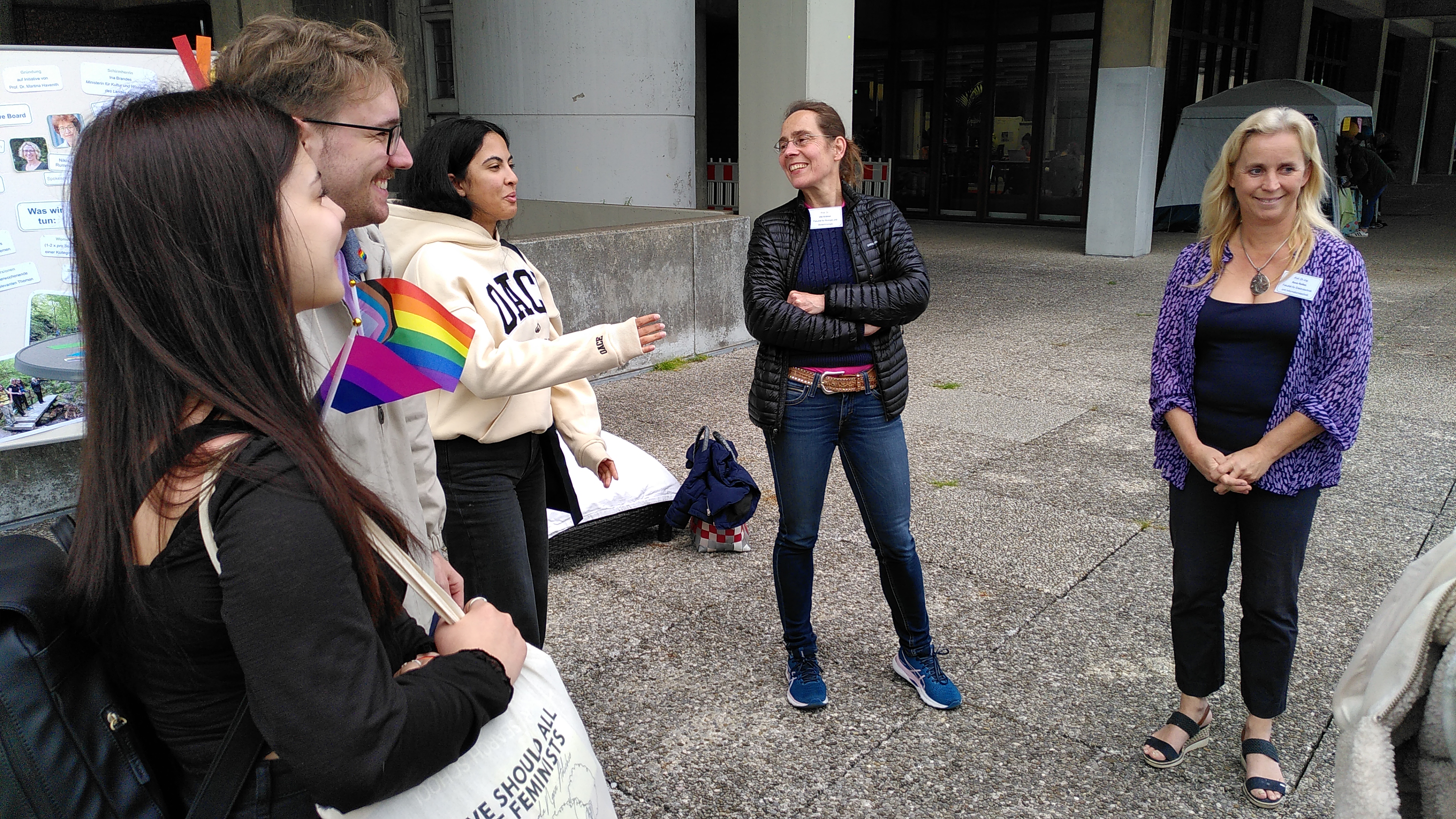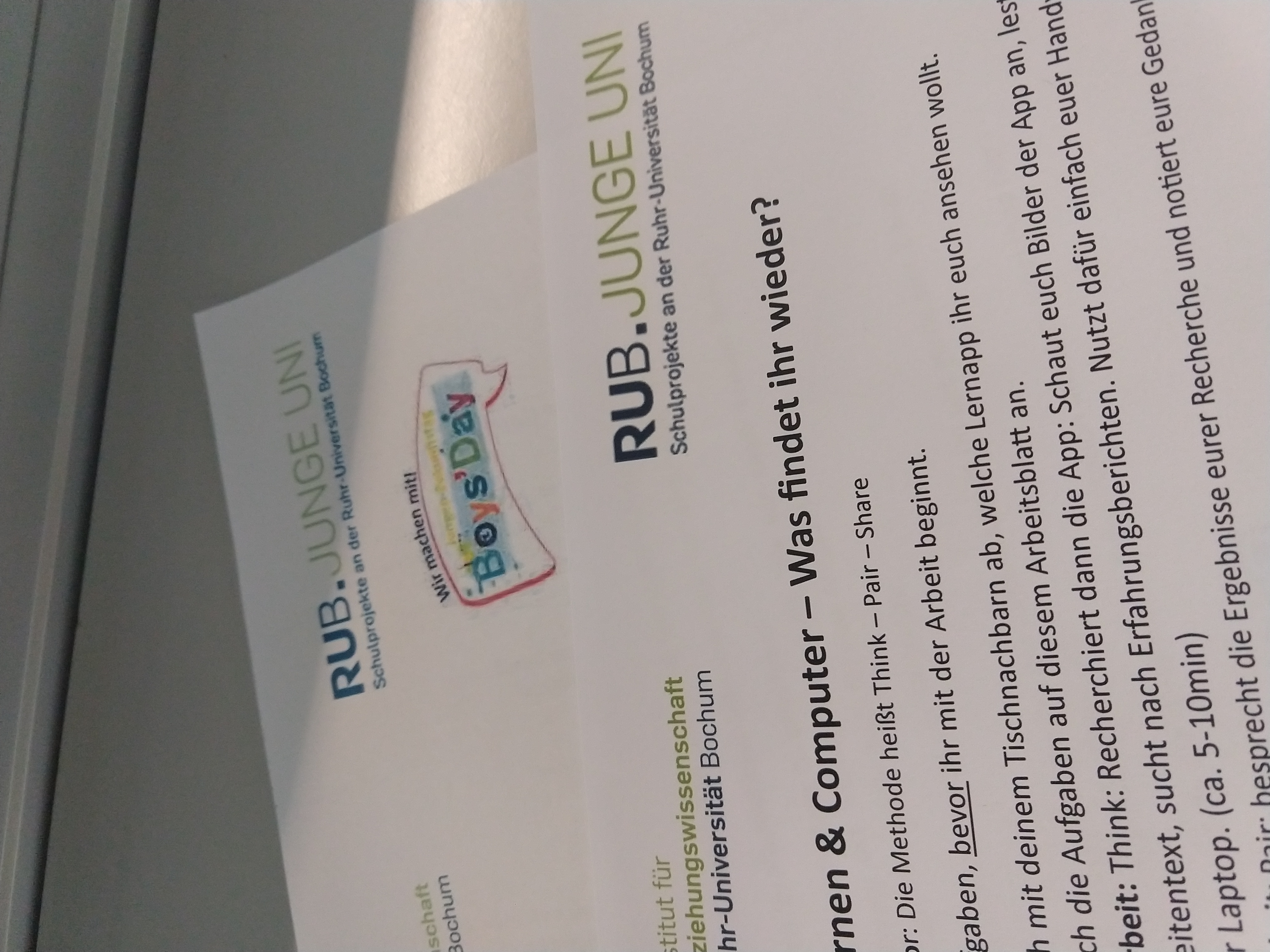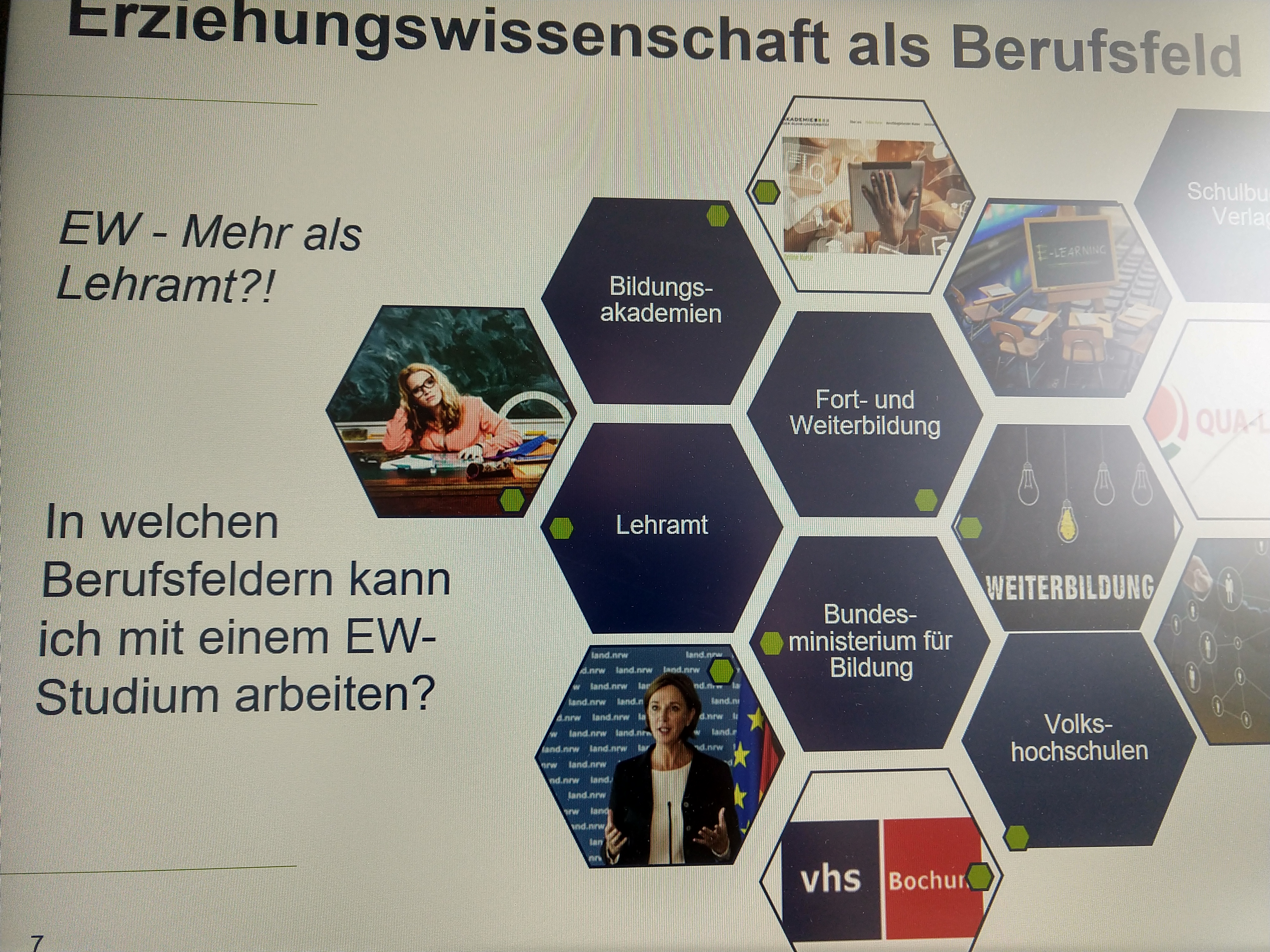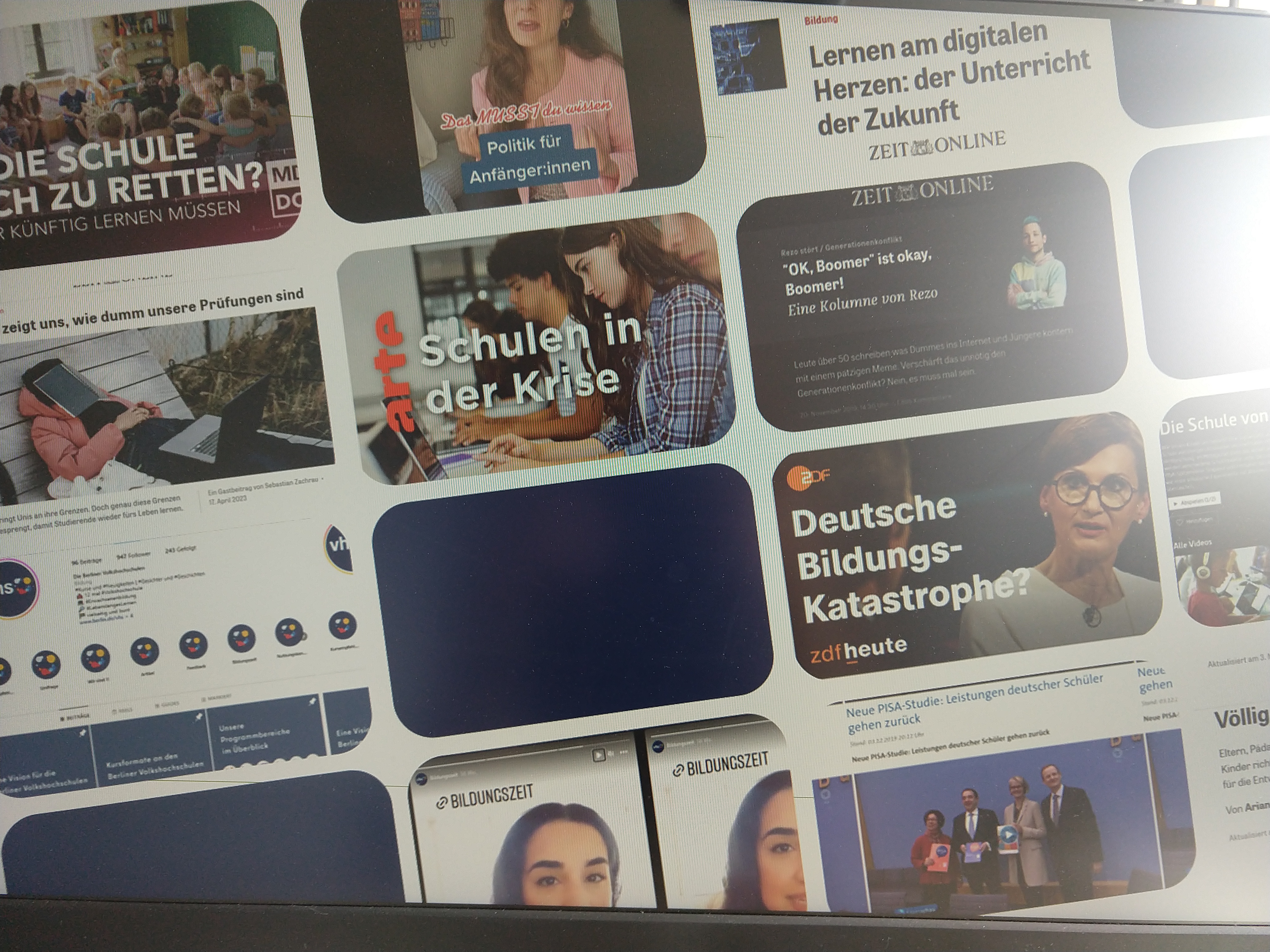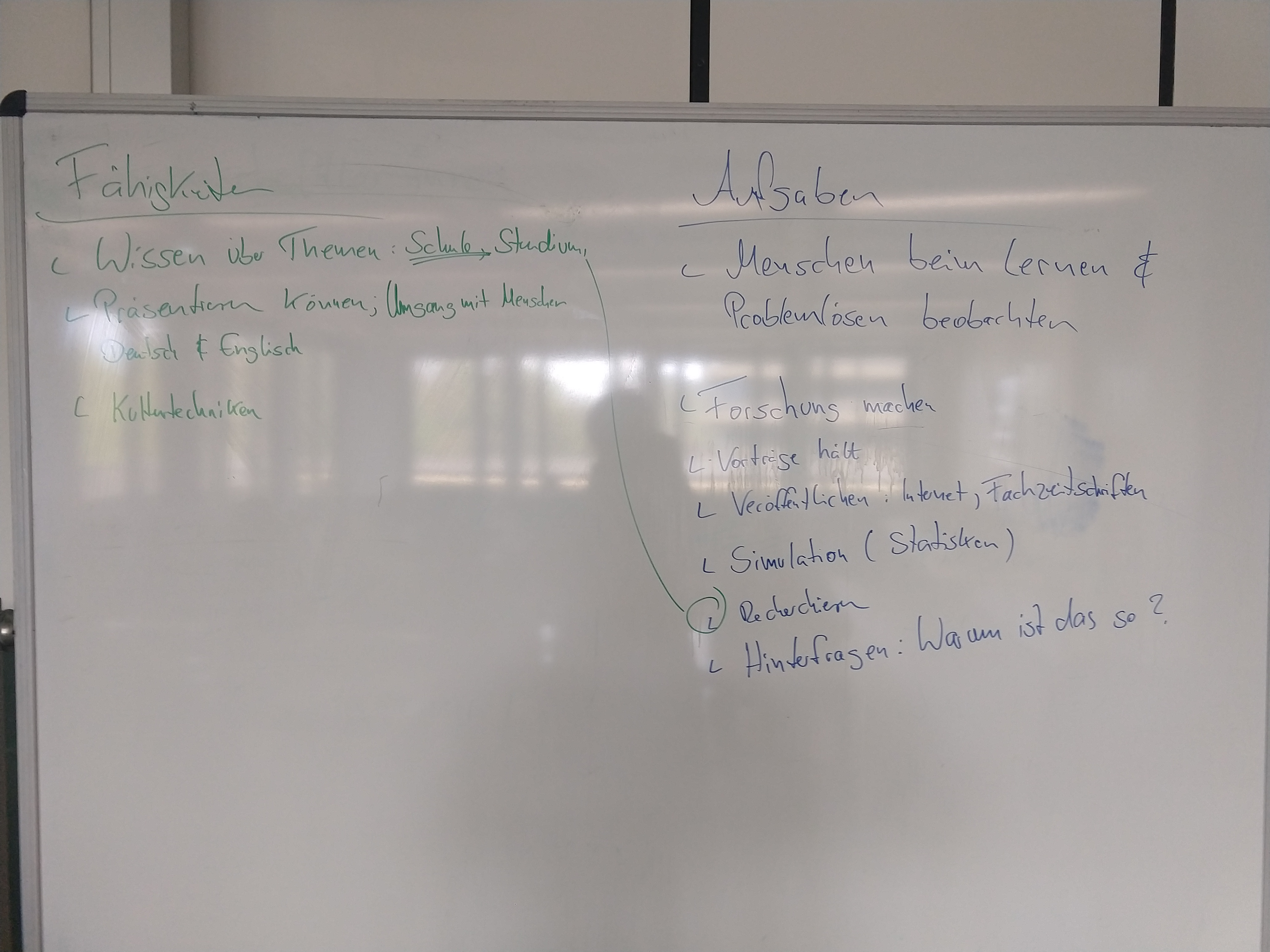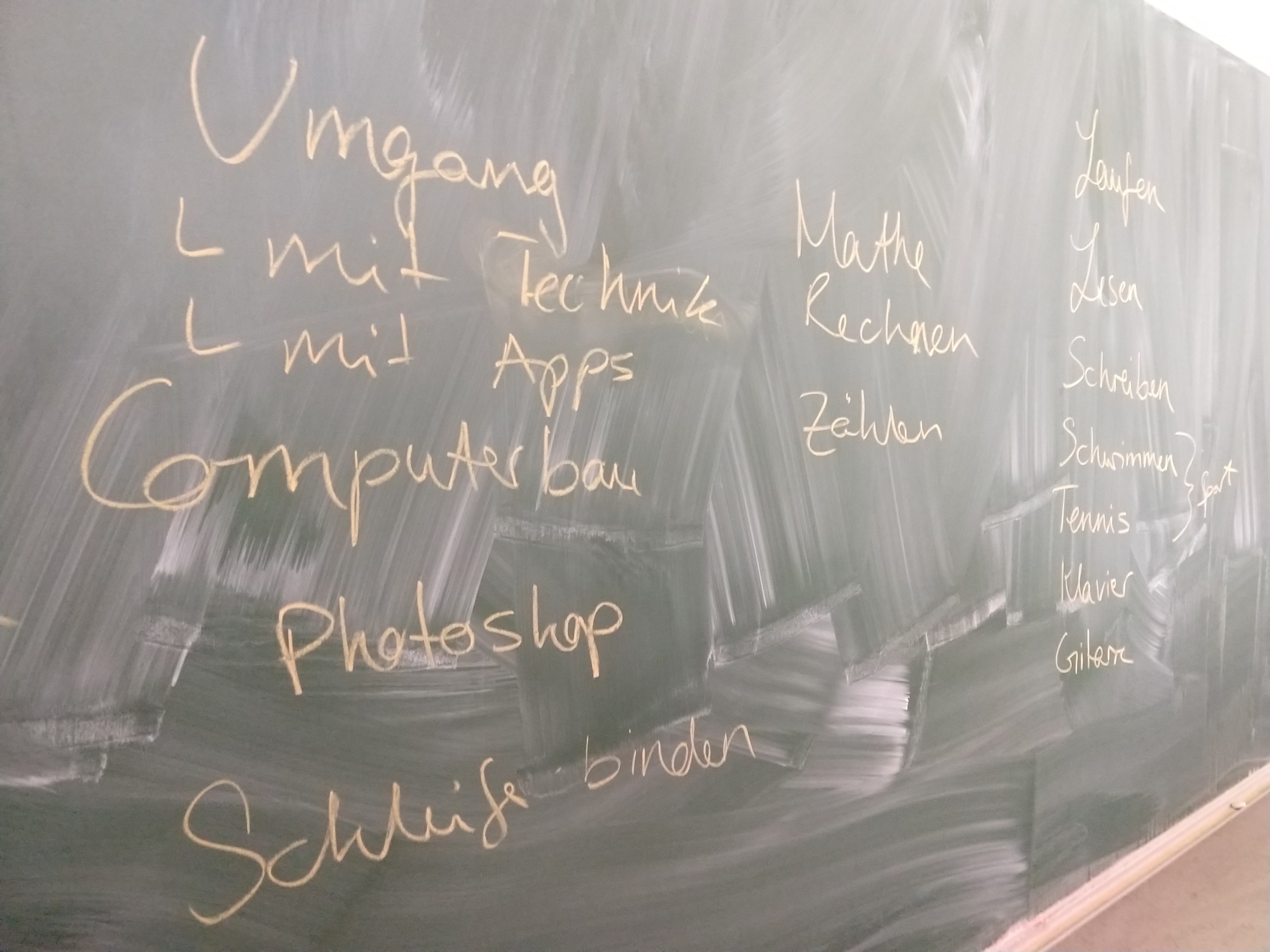
[28.05.24]
Boys' Day 2024 workshop on computer-supported collaborative problem solving
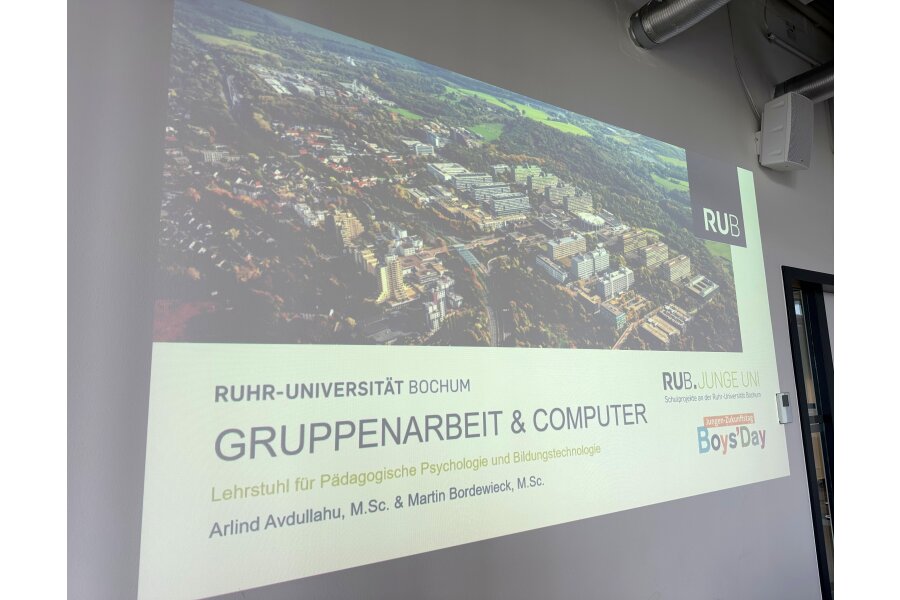
Boys' Day 2024 workshop on computer-supported collaborative problem solving On 25th April 2024, the Educational Psychology and Technology Research Group welcomed 20 boys, 13 to 15 years of age, from various schools of Bochum and the surrounding area to a workshop as part of Boys' Day 2024 (https://www.boys-day.de/). In the "Group work and computers" workshop, research fellows Arlind Avdullahu and Martin Bordewieck gave the pupils an insight into educational science both as a study subject and as a working field, with a focus on the everyday working life of researchers at the university. The students learnt about the quantitative research process from brainstorming to publication and, thus, got a fairly thorough overview of this career path in educational science. In the second part of the workshop, the students were introduced to the research field of computer-supported collaborative problem solving. They first learnt what problem-solving means in the context of psychological/educational science and then got to know the variety of settings in which collaborative problem solving can take place with varying degrees of computer support. Next, an extensive hands-on group activity provided the students with the opportunity to experience collaborative problem solving in a hybrid collaboration setting first hand: They formed groups of four with a unique role assigned to every group member and worked on solving a complex problem through communicating in person while at the same using an online collaboration tool. This group problem-solving episode confronted the students with several typical problems, but also the clear merits of collaborative processes in hybrid collaboration settings. The workshop, hence, concluded with a plenary discussion reflecting on the many things the students had observed about themselves and their respective groups during collaboration. Finally, the students gave overall feedback on the workshop expressing appreciation and gratitude for a both informative and diverting day off school.
[15.05.24]
New publication by Dr. Sebastian Strauß, Dr. Valentina Nachtigall and Prof. Dr. Nikol Rummel about Learning Analytics
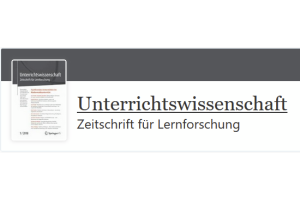
Dr. Sebastian Strauß, Dr. Valentina Nachtigall and Prof. Dr. Nikol Rummel puplished an article with the title "Analyse prozessbezogener Verhaltensdaten mittels Learning Analytics: Aktuelle und zukünftige Bedeutung für die Unterrichtswissenschaft". Abstract: For several years, “learning analytics” have been growing as an international research field that focuses on collecting, analyzing and using complex and often multi-model digital trace-data produced by learners and teachers in digital learning settings; employing computational analyses or machine learning tools, these data are used to generate insights into processes of learning and instruction. The scientific community in the area of learning and instruction is currently exploring these developments. However, as researchers have started to recognize the potential of learning analytics, it seems worthwhile to think further about how adopting learning analytics approaches may benefit the field. In this paper, we provide insights into the flourishing area of learning analytics research and provide concrete examples how such approaches can help to expand existing theories on learning and instruction. We focus on self-regulated and collaborative learning on the one hand, and on the other hand on instructional design and teacher support based on learning analytics. We also consider risks and challenges that come with learning analytics (such as missing links between available data and scientific constructs, as well as ethical issues) but also benefits for research on learning and instruction as well as practitioners (such as ways to account for the complexity and temporality of processes during learning and instruction). Eberle, J., Strauß, S., Nachtigall, V., & Rummel, N. (2024). The potential of learning analytics for research on behavioral learning processes: current and future significance for research on learning and instruction. Unterrichtswissenschaft. https://doi.org/10.1007/s42010-024-00205-5 You can read the article here.
[15.05.24]
New publication by Dr. Valentina Nachtigall and Prof. Dr. Nikol Rummel about authenticity
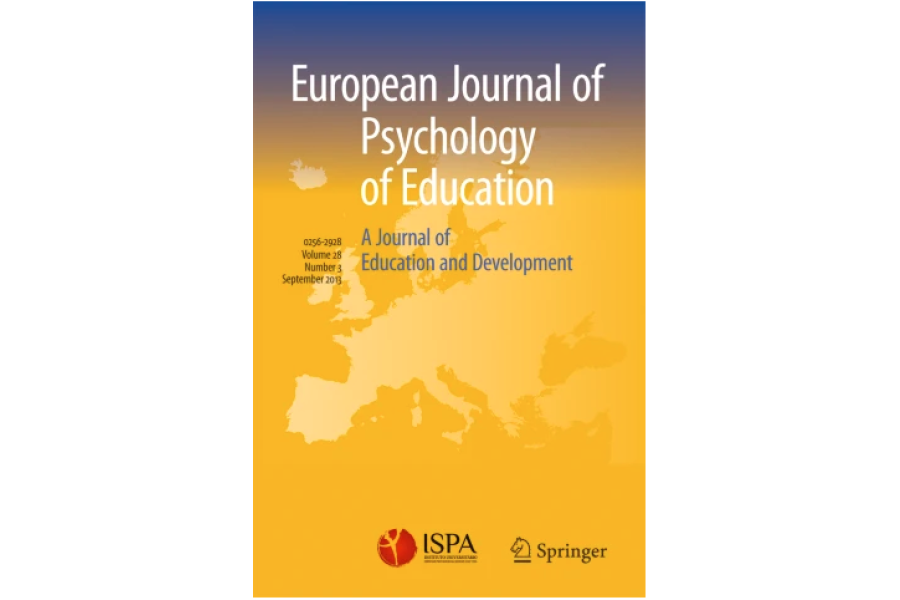
Dr. Valentina Nachtigall and Prof. Dr. Nikol Rummel puplished a journal paper in the European Journal of Psychology of Education with the title "Model authenticity in learning mathematical experimentation: how students perceive and learn from scientist and peer models". This article is part of a special issue edited by Dr. Valentina Nachtigall. Abstract: The implementation of video modeling examples of mathematical hands-on experimentation may provide students with authentic and, at the same time, not too cognitively overwhelming experiences. However, the effectiveness of video modeling examples can be influenced by different characteristics of the observed models. On the one hand, based on the model-observer similarity hypothesis, it is likely that the observation of peers is particularly conducive to learning. On the other hand, from an authentic learning perspective, the presence of experts is considered to constitute a core design element of authentic learning settings which may foster motivational and cognitive learning outcomes. Against the background of these contradictory assumptions, the present study investigates the effects of observing models with different degrees of authenticity on students’ perceived authenticity, their situational interest, and their knowledge acquisition. We conducted an experimental study with 105 10th graders who observed either peer or scientist models performing a mathematical hands-on experiment in a video recording. As expected, the results show that students perceived the scientist models as more authentic than the peer models. Furthermore, we found neither a direct effect of condition nor an indirect effect mediated by students’ perceived authenticity of the observed models on students’ situational interest and knowledge acquisition. With this study, we contribute to the literature on the conditions and effects of authentic learning. Hagenkötter, R., Nachtigall, V., Rolka, K. & Rummel, N. (2024). Model authenticity in learning mathematical experimentation: how students perceive and learn from scientist and peer models. European Journal of Psychology of Education. https://doi.org/10.1007/s10212-024-00843-4 You can read the paper here.
[13.05.24]
New publication by Markus Weber, Dr. Carina Wiesen & Prof. Dr. Nikol Rummel in the area of problem solving
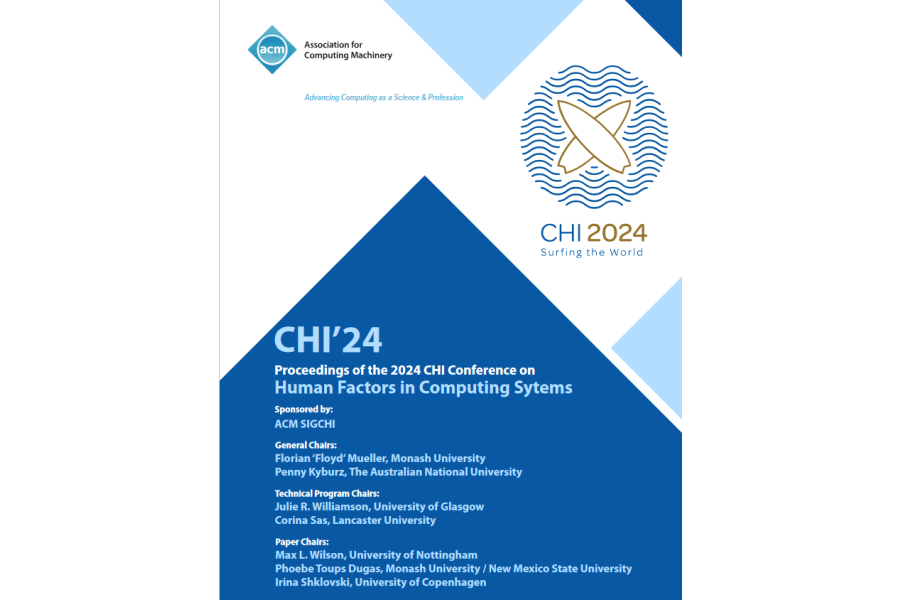
Markus Weber, Dr. Carina Wiesen & Prof. Dr. Nikol Rummel published a paper at the Conference on Human Factors in Computing Systems (CHI 24): I see an IC: A Mixed-Methods Approach to Study Human Problem-Solving Processes in Hardware Reverse Engineering Abstract: Trust in digital systems depends on secure hardware, often assured through HRE. This work develops methods for investigating human problem-solving processes in HRE, an underexplored yet critical aspect. Since reverse engineers rely heavily on visual information, eye tracking holds promise for studying their cognitive processes. To gain further insights, we additionally employ verbal thought protocols during and immediately after HRE tasks: Concurrent and Retrospective Think Aloud. We evaluate the combination of eye tracking and Think Aloud with 41 participants in an HRE simulation. Eye tracking accurately identifies fixations on individual circuit elements and highlights critical components. Based on two use cases, we demonstrate that eye tracking and Think Aloud can complement each other to improve data quality. Our methodological insights can inform future studies in HRE, a specific setting of human-computer interaction, and in other problem-solving settings involving misleading or missing information. Walendy, R., Weber, M., Li, J., Becker, S., Wiesen, C., Elson, M., Kim, Y., Fawaz, K., Rummel, N. & Paar, C. (2024) I see an IC: A Mixed-Methods Approach to Study Human Problem-Solving Processes in Hardware Reverse Engineering. In Proceedings of the CHI Conference on Human Factors in Computing Systems (CHI '24). Association for Computing Machinery, New York, NY, USA. https://doi.org/10.1145/3613904.3642837
[02.05.24]
Nikol Rummel published in Applied Cognitive Psychology, is one of our top 10 most-cited papers published
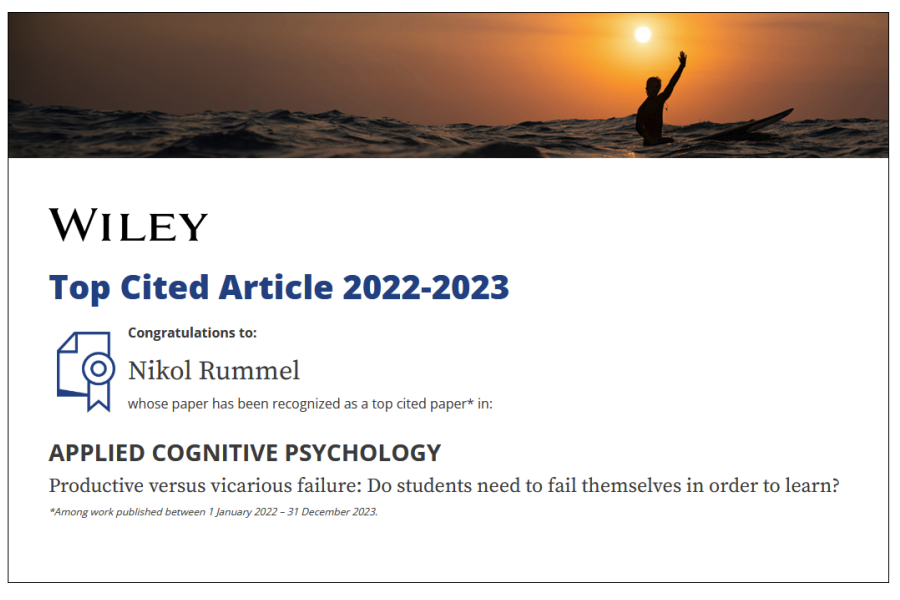
Together with our former Doctoral students Christian Hartmann and with Tamara van Gogh (Utrecht University), Nikol Rummel published in Applied Cognitive Psychology, is one of our top 10 most-cited papers published Read the full article here: https://onlinelibrary.wiley.com/doi/full/10.1002/acp.4004 Hartmann, C., van Gog, T., & Rummel, N. (2022). Productive versus vicarious failure: Do students need to fail themselves in order to learn? Applied Cognitive Psychology, 36(6), 1219–1233. https://doi.org/10.1002/acp.4004
[22.04.24]
Dr. Valentina Nachtigall has taken up the interim professorship
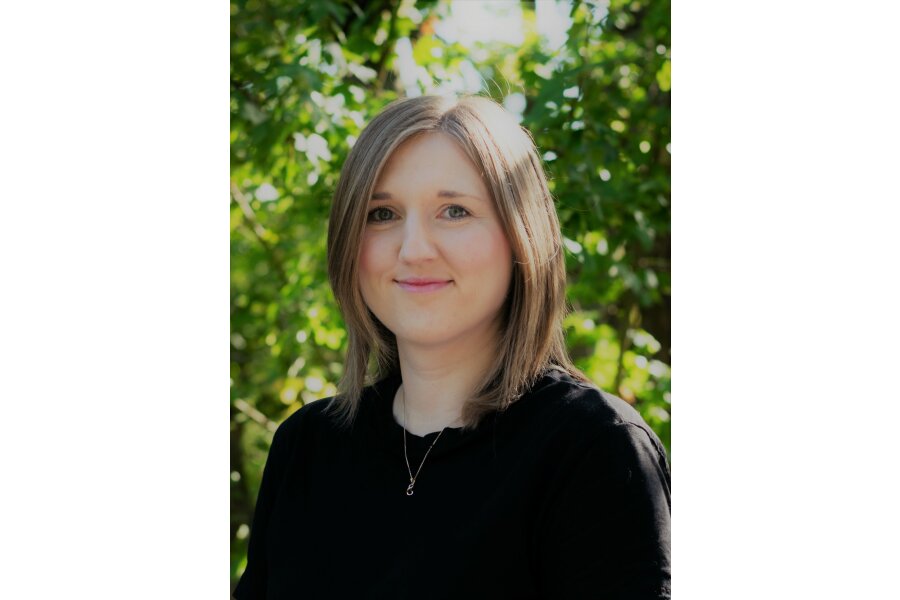
Dr. Valentina Nachtigall has taken up the interim professorship of educational psychology and technology on March 1, 2024. She has been part of our department since November 2015, when she started her dissertation on the effectiveness of productive failure for learning in an out-of-school lab for social sciences. After obtaining her doctorate in July 2019 (summa cum laude), she moved to a postdoctoral position and has since been interested in empirically and conceptually determining the conditions and effects of authentic learning. Her current DFG project focuses on investigating and measuring students' conceptions of scientists as a condition likely to influence how students perceive and engage in authentic learning activities that attempt to emulate scientific ways of thinking and working. Her academic journey is complemented by prestigious fellowships and numerous research stays abroad. With her rich background, we are confident that she will bring valuable insight and leadership to our academic community. We look forward to the positive impact she will have during her tenure.
[22.03.24]
Our team visited GEPF 2024 in Potsdam.
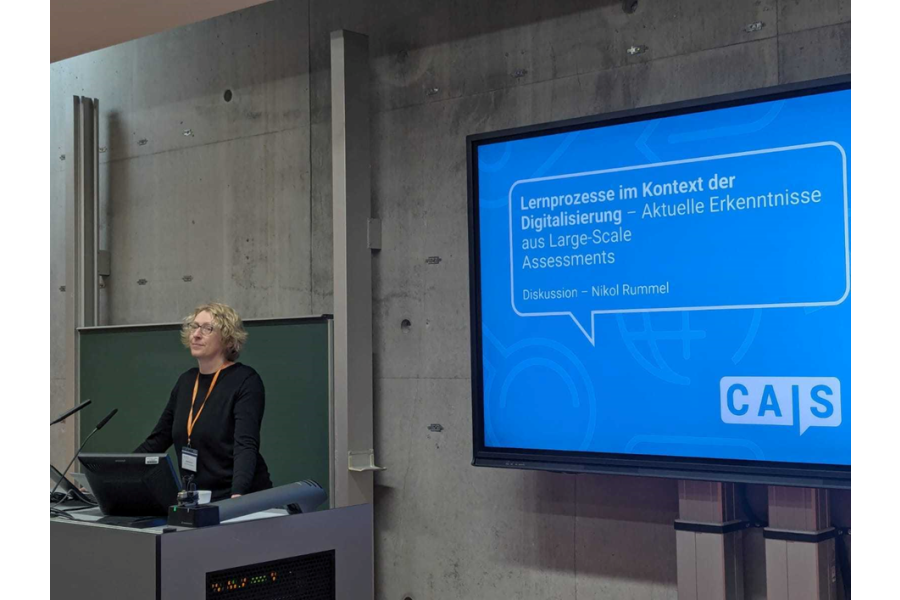
Prof. Nikol Rummel was invited as a discussant in the symposium: Lernprozesse im Kontext der Digitalisierung – Aktuelle Erkenntnisse aus Large-Scale Assessments (Chairs: Leonard Tetzlaff (DIPF, ZIB), Frank Goldhammer (DIPF, ZIB) Our paper contributions are listed below: Nachtigall, V., Yek, S., & Rummel, N. (2024). Auswirkungen von Emotionsregulation und Kollaboration auf die Verarbeitung geschichtsbezogener 360°-Videos. Vortrag auf der 11. Tagung der Gesellschaft für Empirische Bildungsforschung (GEBF), 18.03.-20.03.2024, Potsdam, Germany. Brand, C., Loibl, K., & Rummel, N. (2024). Relevante Vorwissensaktivierung durch fehlerhafte Lösungsbeispiele als Vorbereitung auf das Lernen beim Problemlösen vor Instruktion. Vortrag auf der 11. Tagung der Gesellschaft für Empirische Bildungsforschung (GEBF), 18.03.-20.03.2024, Potsdam, Germany.
[22.03.24]
New Journal Publication
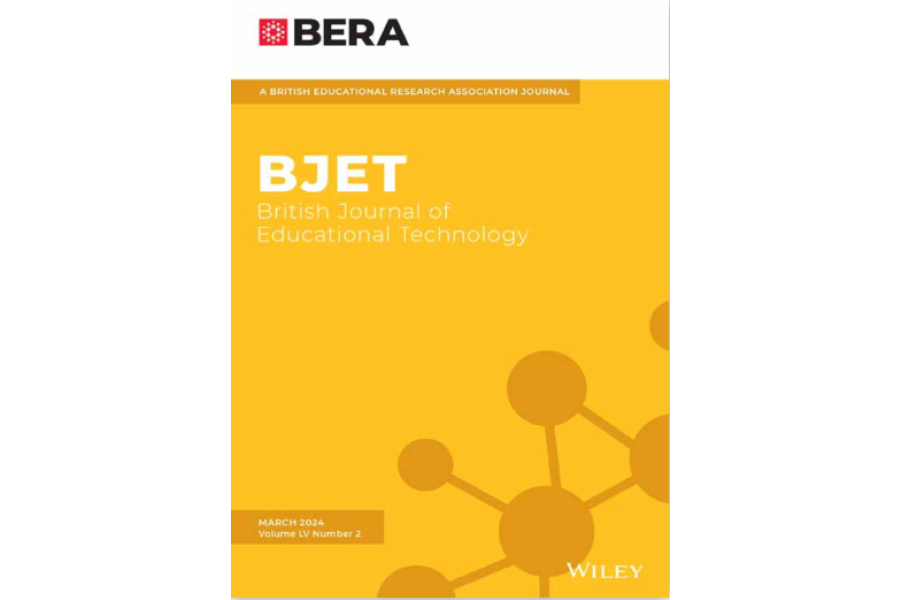
Katharina Teich, Vanessa Loock, and Nikol Rummel have recently published a study addressing the challenges of continuing education online courses titled "Meeting the challenges of continuing education online courses: Can we promote self-regulated learning strategies with adaptive support?" The study explores the difficulties faced by adult learners in managing learning resources such as time, attention, and learning environment in online courses. They developed an adaptive support intervention to address these challenges, finding that it significantly improved environmental structuring but did not affect other self-regulated learning strategies. Teich, K., Loock, V.S., & Rummel, N. (2024). Meeting the challenges of continuing education online courses: Can we promote self‐regulated learning strategies with adaptive support? British Journal of Educational Technology. https://doi.org/10.1111/bjet.13453 Read more about it here.
[16.02.24]
Self-Regulated Learning in Digitalized Schools: Summit Insights
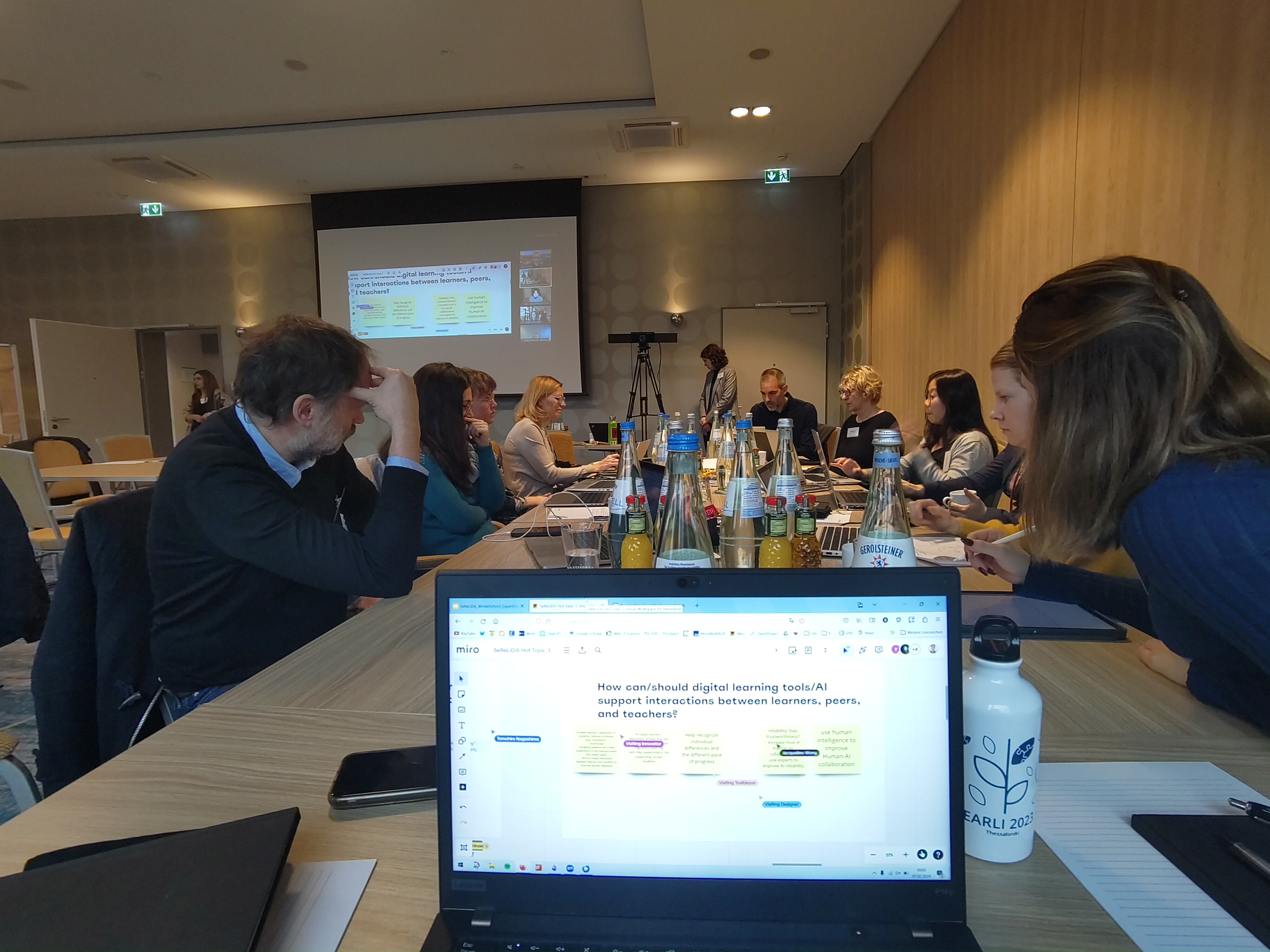
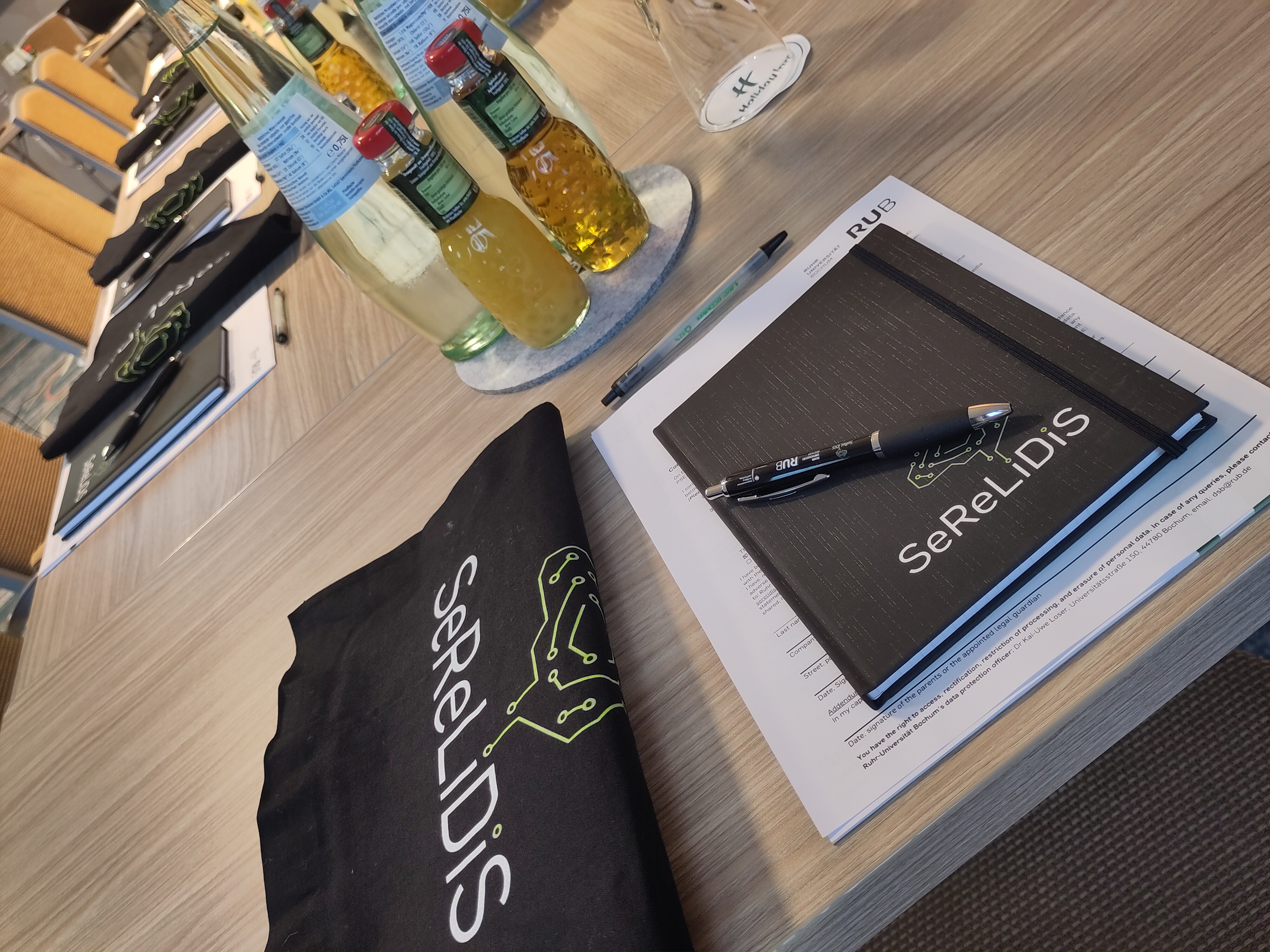
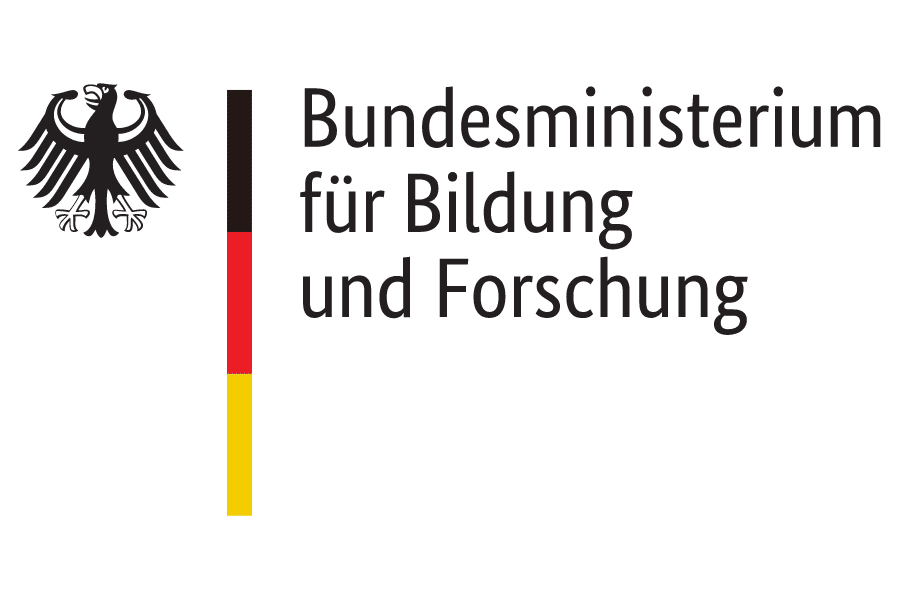
SeReLiDiS Network Members Nikol Rummel and Sebastian Strauß delve into Hot Topics in Self-Regulated Learning in Digitalized Schools at Research Summit
In February 2024, Prof. Dr. Nikol Rummel and associated researcher Dr. Sebastian Strauß (Ruhr-University Bochum) participated in the Research Summit of the international and interdisciplinary network "Self-Regulated Learning in Digitalized Schools" (SeReLiDiS)" (funded by the German Federal Ministry of Education and Science, BMBF).
The summit meeting of the members of the SeReLiDiS network, led by Prof. Joachim Wirth (Chair of Teaching and Learning Research, RUB), aimed to examine current topics for educational contexts in which learners engage in self-directed learning with the help of teachers and digital technologies.
On the first day of the summit, participants engaged in academic discussions, tackling various facets of self-regulated learning (SRL) in technologically enhanced contexts. The second day of the summit was dedicated to identifying and evaluating pathways to continuing and expand the network's impact beyond the current funding cycle.
The heart of the research summit was the goal of exploring "hot topics" with the aim of incorporating them into future grant proposals. Nikol Rummel and Sebastian Strauß, with their expertise in computer-supported collaborative learning, contributed to the hot topic titled "Self-regulated learning orchestrated by peers, teachers, and digital tools." For this hot topic, three burning questions were discussed:
The first burning question concerned the "Modeling the Interplay Between Peers, Teachers, and Digital Tools". Besides questions of decision-making behavior and strategic disengagement, one core question was to identify those parts of the regulation process that are distinctive human in contrast those which can be most effectively achieved by an automated system. Another question worth considering is whether, and to what degree we must modify existing models of teaching SRL with adaptive digital learning tools. This question requires considering the competencies a teacher needs to support SRL in students effectively. Finally, there are questions regarding how we can best support the interaction between teachers, their learners (also in groups) with adaptive tools. For instance, we need to explore circumstances when on-loading (parts of) the regulation of learning will lead to desired outcomes, in contrast to situations when (momentarily) off-loading regulation. This also alludes to the trade-off between adaptivity and desirable difficulties during learning. Further, trust in automation should not be neglected when investigating the effects of computer systems in classrooms
Thanks for the wonderful organization go to: Joachim Wirth, Marie Vanderbeke, Flora Mehrabi, Hannah Wember & Laura Schmidt, Lisa Dautz
You can find out more about the SeReLiDiS network here.
[02.02.24]
OECD webinar on AI in education featuring Nikol Rummel
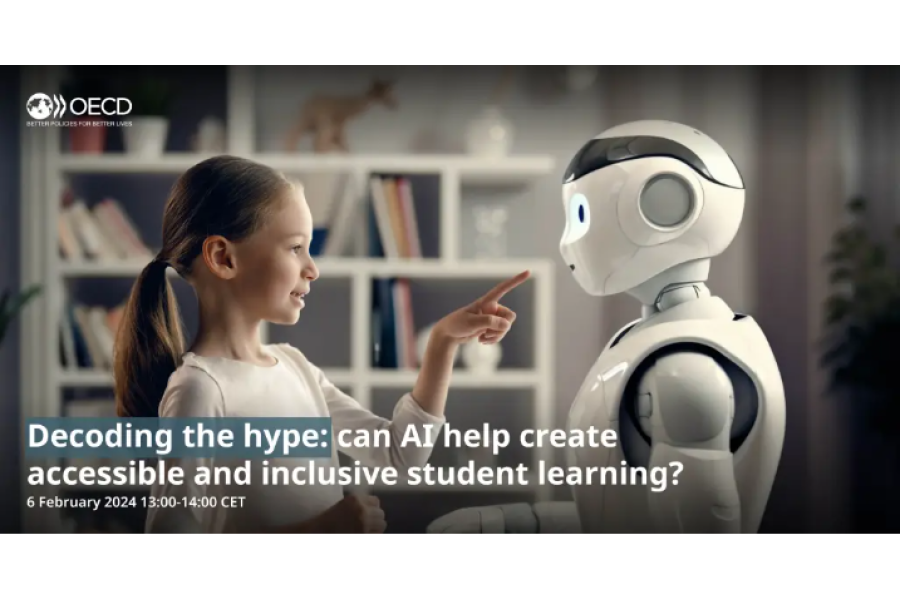
Professor Nikol Rummel was a featured panelist at the OECD webinar titled "Decoding the hype: can AI help create accessible and inclusive student learning?" which took place on February 6th, from 13:00 to 14:00 CET. The webinar, which delved into AI's potential for creating inclusive learning environments, featured speakers including Nikol Rummel, Wayne Holmes from UCL, Emile Kroeger from the United Robotics Group, and Kevin Johnstun from the US Department of Education. The discussion revolved around addressing the benefits, challenges, and future impacts of AI in education. You can watch the webinar here.
[02.02.24]
Invitation to Specialized Talks on Epistemic Education and Self-Regulation
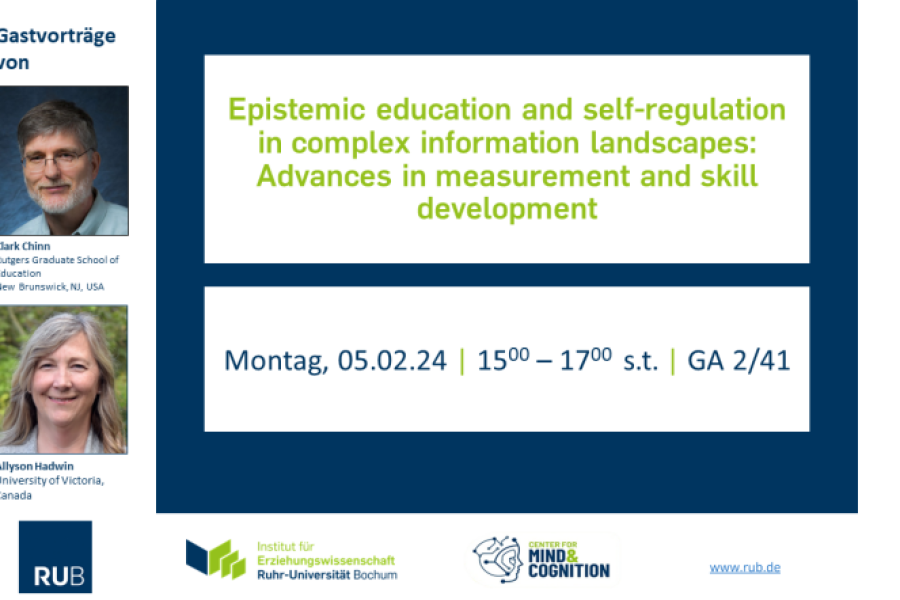
Don't miss an informative event featuring two esteemed researchers: Allyson Hadwin from the University of Victoria, Canada, and Clark Chinn from the Rutgers Graduate School of Education in New Brunswick, NJ, USA. Event Details: - Date: Monday, February 5, 2024 - Time: 3:00 PM – 5:00 PM (s.t.) - Location: GA 2/41 Allyson Hadwin: Advancements in Self-Regulated Learning (SRL) Measurement Hadwin's presentation focuses on advancements in SRL measurement and its impact on academic success. She will introduce developed instruments collecting data on students' tactical decisions, analyzing metacognitive beliefs, and providing timely feedback for both learners and educators. Clark Chinn: Epistemic Education for a Post-Truth World Chinn will address challenges for educators in a "post-truth" society and present effective strategies. His talk emphasizes "apt epistemic performance" as the goal of epistemic education, introducing design principles to enhance thinking abilities in a world characterized by conflicting information and skepticism.
[17.01.24]
New Lore Agnes Equity Project for the Empowerment of Female STEM Teacher Students
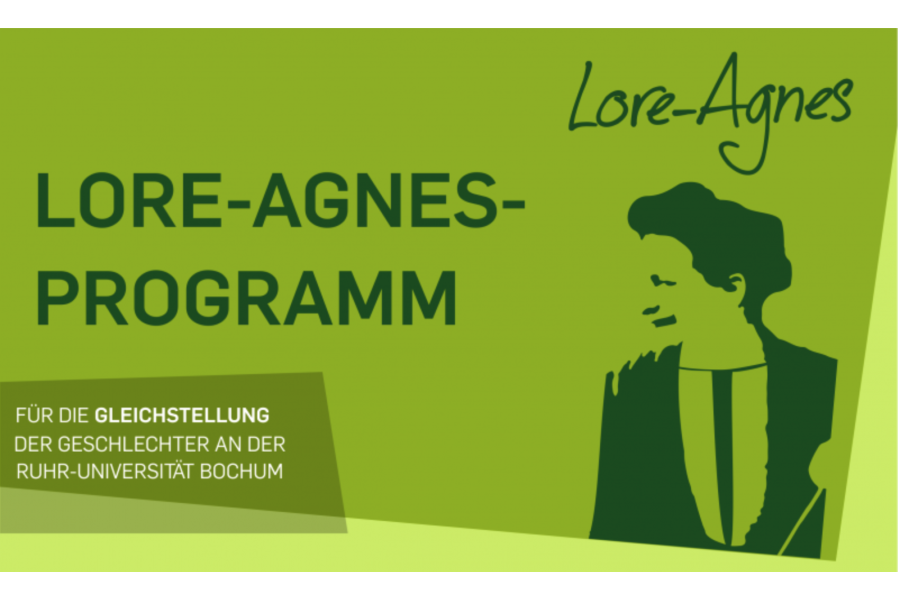
With the beginning of 2024, a new Lore Agnes equity project starts. This project aims at developing a community-focussed empowerment training for female STEM teacher students. The training starts in spring semester 2024. By funding this project, Ruhr University Bochum supports a collaboration between the educational psychology and technology research group (Vertr.-Prof. Dr. Julia Eberle and Prof. Dr. Nikol Rummel) and the Professional School of Education (Dr. Henning Feldmann and Rüya Dönmez). The project tackles the problems of high drop-out rates in female STEM students and teacher shortage in Germany. Both problems are often attributed to a missing fit between female students‘ values and ideas and the reality in higher education, as well as to unfavorable gender stereotypes. In the community-focussed empowerment training, female STEM teacher students receive support in developing social relatedness, self-esteem, and self-efficacy. Systemic coach Rüya Dönmez will work with participating students on challenging and reducing detrimental implicit beliefs and establishing a reliable peer support group to master challenges in higher education.
[20.12.23]
Interview with Nikol Rummel about AI in the Classroom
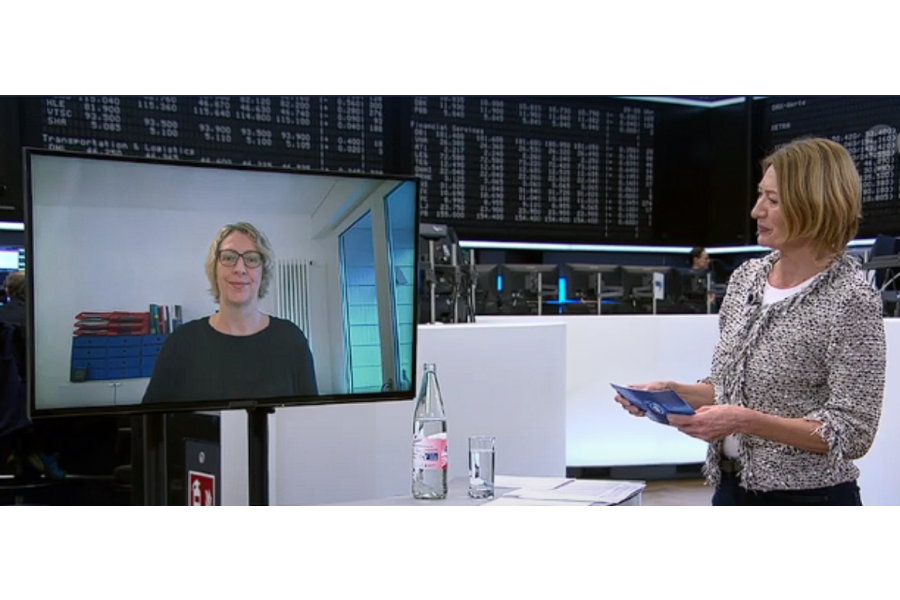
On December 13, 2023, the ARD financial editorial team conducted a live online interview with Nikol Rummel in the program "Update Wirtschaft" on the ARD channel "tagesschau24". The topic was "AI in the Classroom". Nikol Rummel shed light on various aspects, including potential possibilities of AI in the classroom, existing approaches, and how AI technologies could potentially support teachers. The interview is available at the 1:50 minute mark via the following link: Tagesschau24 - "Update Wirtschaft".
[20.12.23]
Heinefunk-Podcast with Sebastian Strauß
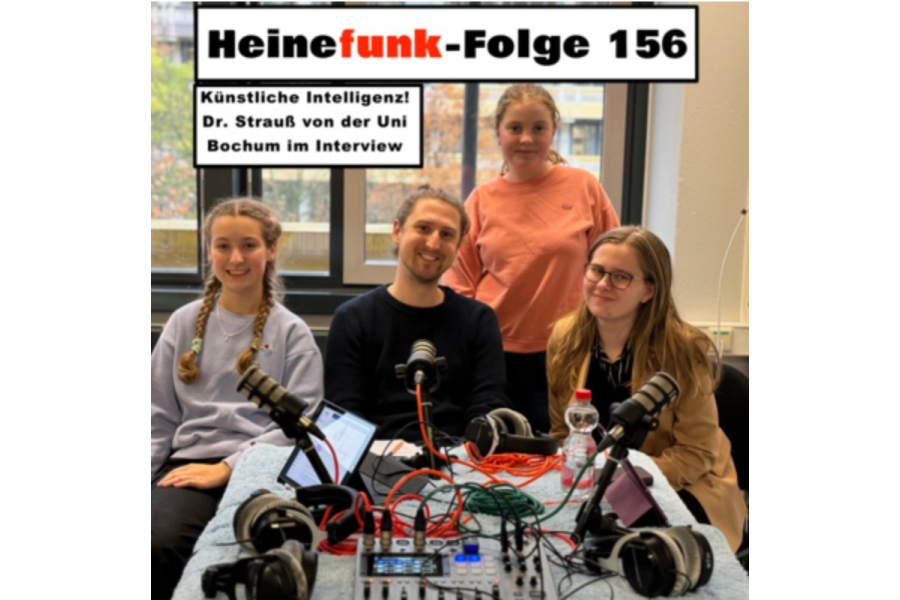
The Heinefunk-Team, known for the podcast of the Heinrich-Heine-Gymnasium in Oberhausen, ventured this time to the Ruhr-Universität Bochum. During the interview with the moderators of the Heinefunk team, Sebastian Strauß delved into topics concerning the future role of AI. In particular, the discussion shed light on what students should consider when using ChatGPT, which job profiles could potentially be influenced by AI (or not), and how the digital transformation of schools could progress. This included an in-depth exploration of the issue of double standards, the ethical dimensions of these developments, the future of artificial intelligence and whether AI will take over the world. The conversation provides valuable insights into the challenges and opportunities presented by the ongoing digitalization of the education sector. You can listen to the Podcast on your browser or on Spotify.
[13.12.23]
New Journal Publication by Valentina Nachtigall

Dr. Valentina Nachtigall has published a new journal entitled "Exploring the impact of authentic learning activities on school students’ epistemic beliefs in the social sciences and humanities". The present two studies examined if students' beliefs about educational sciences and linguistics are influenced by authentic learning activities in an out-of-school lab (OSL). Despite expectations, these activities didn't notably impact students' beliefs. Beliefs about knowledge texture correlated negatively with perceived authenticity and situational interest in both studies, while beliefs about knowledge variability correlated positively with perceived authenticity and knowledge acquisition in Study A only. These results challenge assumptions about OSLs' influence on beliefs, requiring further exploration in relation to prior research on authentic learning in OSLs. Nachtigall, V. & Firstein, A. (2023). Exploring the impact of authentic learning activities on school students’ epistemic beliefs in the social sciences and humanities. European Journal of Psychology of Education. https://doi.org/10.1007/s10212-023-00773-7. Read more about it here.
[13.12.23]
New Journal Publication by Julia Eberle
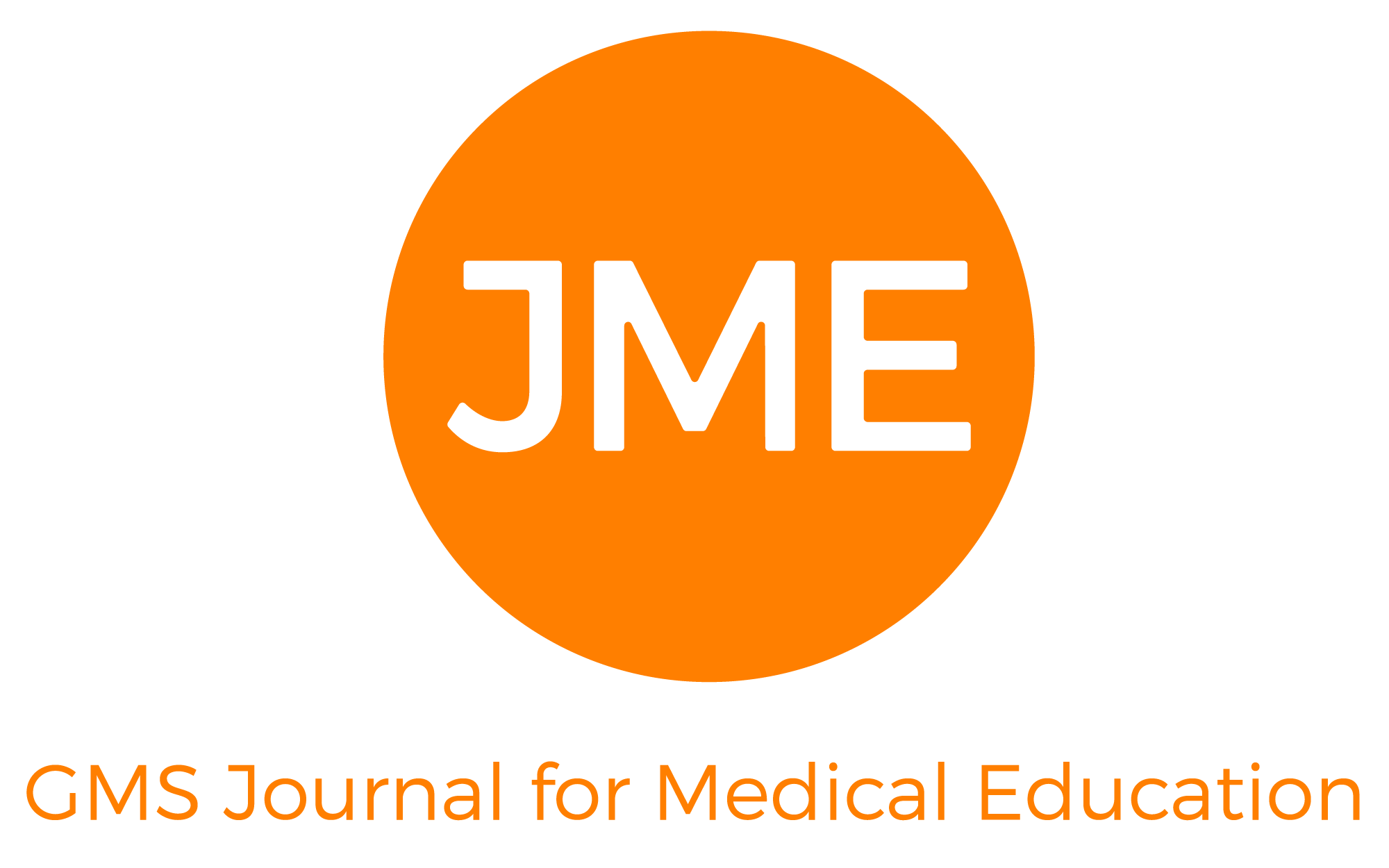
Prof. Dr. Julia Eberle has published a new journal entitled "The Role of Research Competence as an Influencing Factor for the Careers of Young Academics: Findings and Implications from Studies on Doctorates in Medicine and Life Sciences in Germany." Background: When viewed internationally, Germany boasts a high rate of doctoral candidates. Fields such as medicine and life sciences have a notably high proportion of doctoral students, a trend rooted in historical factors. Despite this, comprehensive empirical studies concerning the doctoral phase and early-career researchers, especially in relation to the rise of structured doctoral programmes, have only recently gained traction. Epstein, N., Eberle, J., Meuleners, J., Lachmann, D., Heuser, S., Herzig, S., Neuhaus, B., Prenzel, M., & Fischer, M. R. (2023). The role of research competence as an influencing factor for the careers of young academics. Findings and implications from studies on doctorates in medicine and life sciences in Germany. GMS Journal for Medical Education, 40(6): Doc70. Read more about it here. // Click here for the German Version.
[08.12.23]
Talk by Katharina Teich at the Joachim-Herz-Stiftung
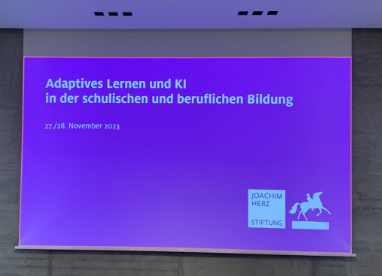
Katharina Teich recently shared her insights at a conference on "Adaptive Learning and Artificial Intelligence in School and Continuing Education Contexts: Opportunities and challenges of technology-supported teaching and learning" at the Joachim-Herz-Stiftung in Hamburg (27th & 28th of November). The presentation focused on the design and evaluation of an adaptive support system developed within the WILLEN project. The WILLEN project aimed to develop an adaptive support system tailored to adult learners in a work-related continuing education programme, applying a user-centred system design approach. The presentation provided details of the iterative development process and evaluation of the adaptive support system. The presentation concluded with a discussion of the initial findings on the impact of the adaptive support on the self-regulated learning of adult learners and concluded with an outlook, outlining plans for further testing and implementation of the system, highlighting its potential to improve adult learners’ self-regulated learning.
[13.11.23]
Interacting with intelligent systems: decisions, affects, and trust
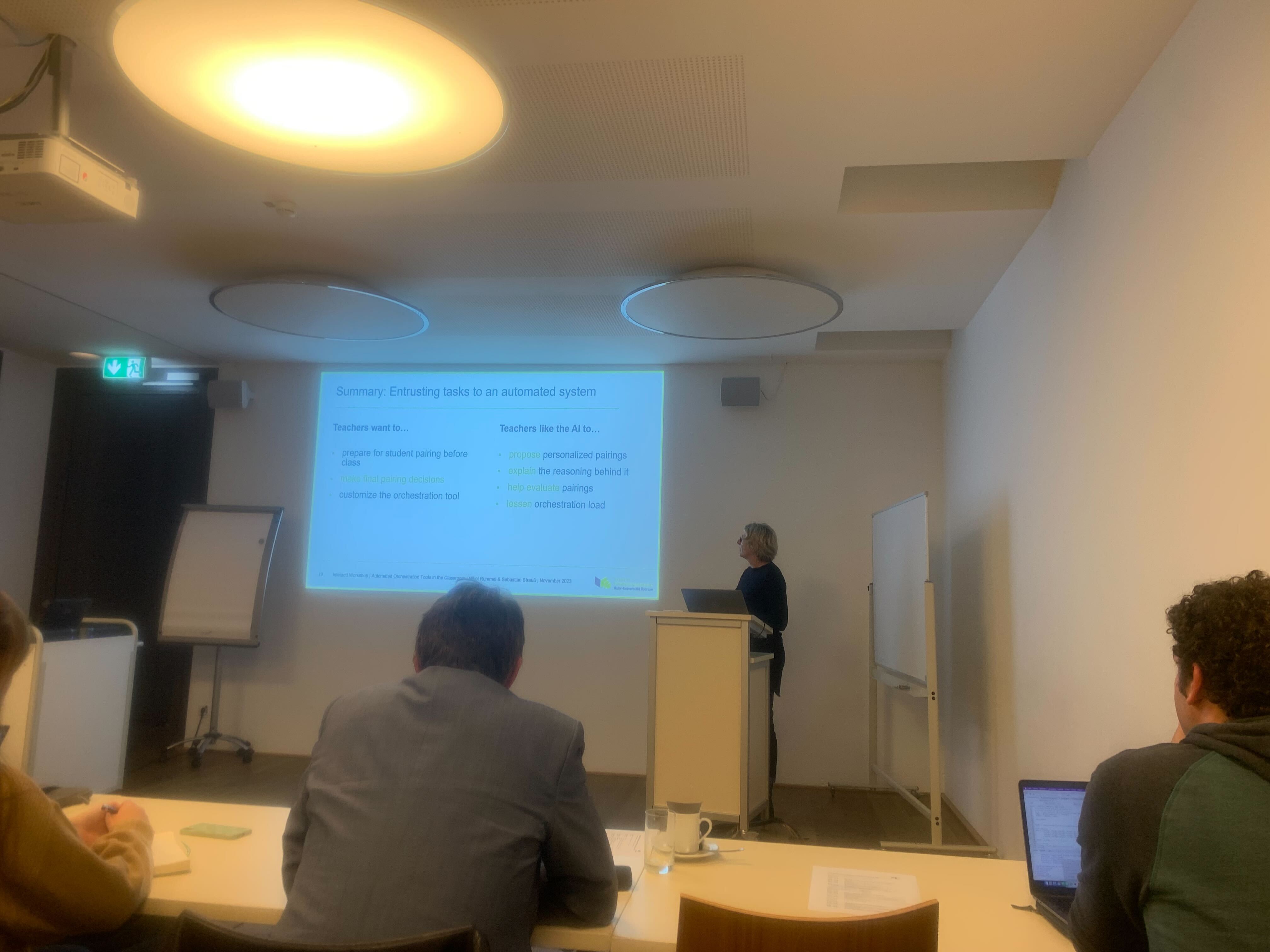
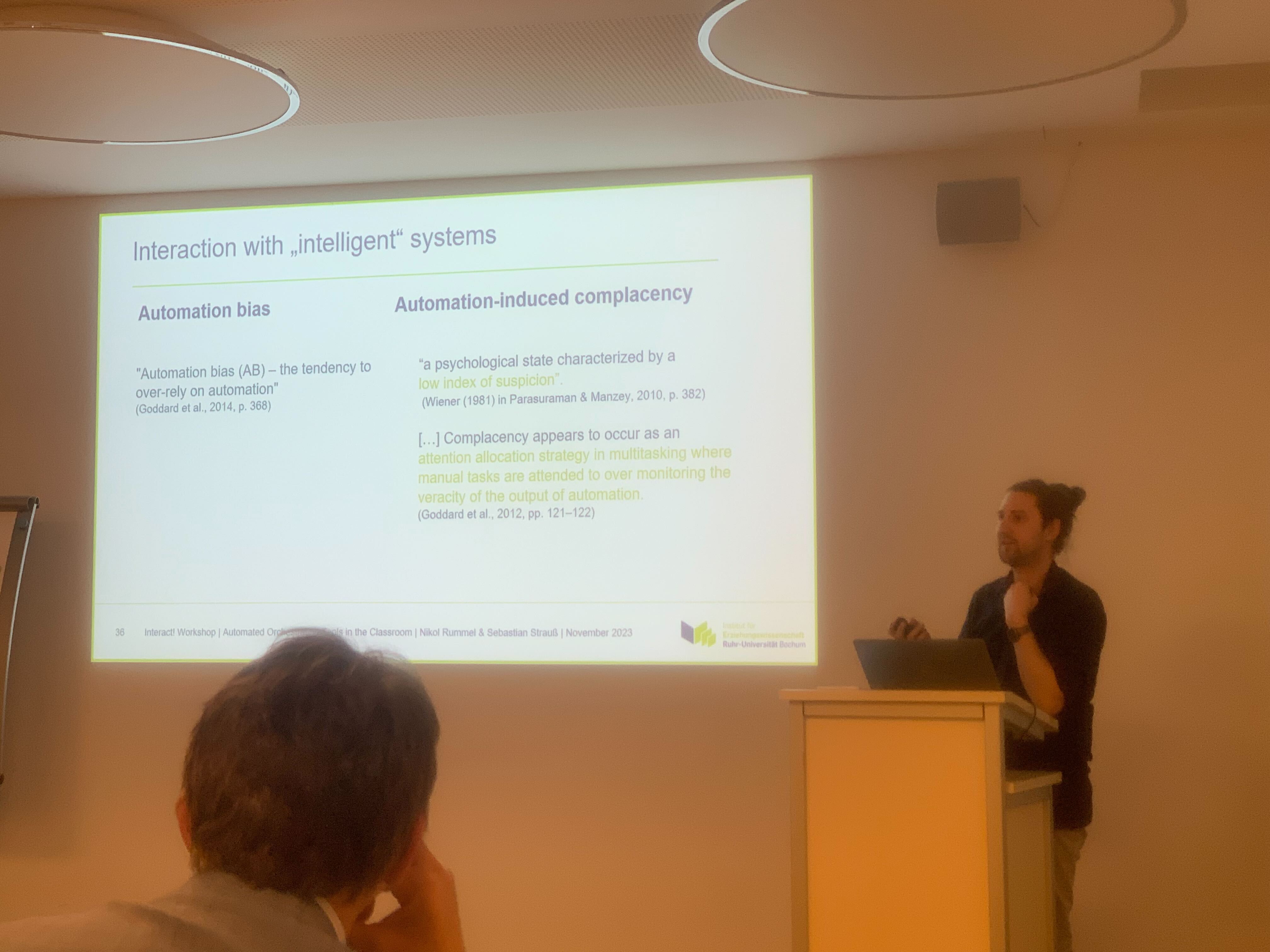
3rd INTERACT! Workshop, Nov 9th & 10th 2023, Ruhr-University Bochum
Prof. Dr. Nikol Rummel and Dr. Sebastian Strauß shared their current research and ideas for future studies at the Interact! annual workshop. This year's workshop was entitled: "Interacting with intelligent systems: decisions, affects, and trust".
Within this intellectually stimulating workshop, they navigated through a diverse mix of presentations, addressing topics ranging from the impact of artificial intelligence on ethical behavior to the nuanced dynamics of trust in AI deepfake detection. With attendees from philosophy, information systems, psychology and media science, the workshop was the perfect opportunity for interdisciplinary discussion.
In their presentation with the title "Teacher-AI Co-Orchestration in the Classroom: Examining Teacher Interaction with Automated Support" Nikol Rummel and Sebastian Strauß discussed the role that adaptive, "intelligent", educational technology can play during classroom teaching. This set the stage for understanding the potential implications of AI within classroom settings.
Based on this, they presented the results of a co-design study to illustrate which tasks teachers might be willing to delegate to intelligent systems and the extent to which teachers seek to retain agency.
The presentation closed with a first draft for an experiment that would focus not on self-reported trust in a system, but on in-situ interaction between a teacher and an "intelligent" educational technology, such as a teacher dashboard that provides the teacher with advice.
[08.11.23]
Interviews about “AI in the classroom” with Prof. Dr. Rummel
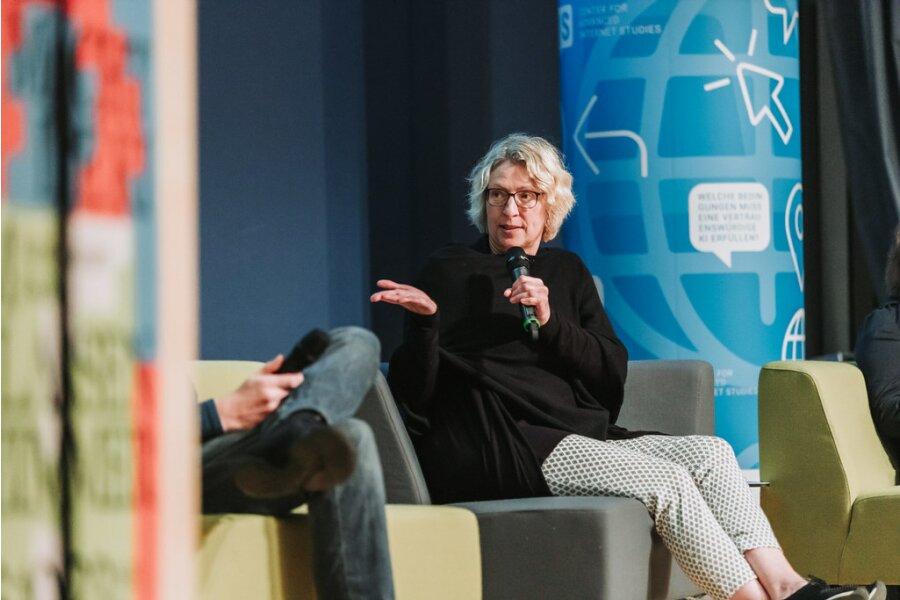
[27.10.23]
Winners of the 32nd Round of the 5x5000 Competition
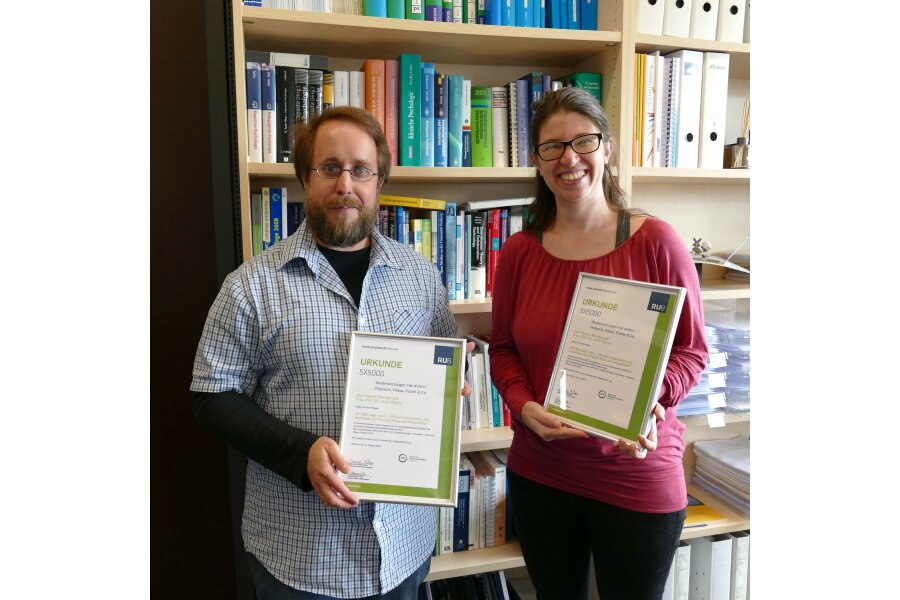
Vertr.-Prof. Dr. Julia Eberle and Martin Bordewieck, M.Sc., are among the winners of the 32nd round of the 5x5000 e-learning competition of the RUB with their project "A picture says more ... - visualizing and conveying knowledge with concept maps and infographics". The project aims to establish digital visualizations, such as concept maps and infographics, as an innovative concept for the design of study achievements in the introductory seminars in the B.A. program in Educational Sciences and to further develop them for sustainable, cross-seminar use. In this process, students first work together in expert groups to develop texts on a specific topic. The content is then prepared digitally in visual form in a concept map and in infographics. This allows the students an intensive and understanding-oriented examination of the basic knowledge as well as a creative approach to the presentation. In the further course of the seminars, the resulting visualizations are presented by the respective experts in small puzzle groups and then serve all students as compact and visually appealing learning material. Read more about the 5x5000 Competition here.
[25.10.23]
Prof. Dr. Nikol Rummel is a member of the Task Force on Artificial Intelligence in Education at the Center for Advanced Internet Studies (CAIS)
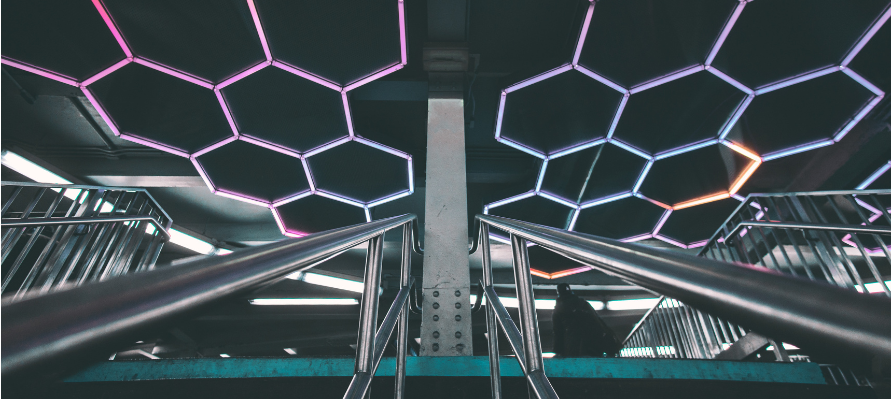
The spread of Artificial Intelligence (AI) in education poses new challenges for teachers and learners. The release of ChatGPT by OpenAI in November 2022 highlighted the growing importance of AI in education. In view of this development, the Task Force "Artificial Intelligence in Education" was established to develop clear guidelines and recommendations. Prof. Dr. Rummel ist part of this initiative and member of the Task Force. The Task Force consists of representatives of educational institutions in North Rhine-Westphalia. Together, they will develop recommendations for the effective use of AI in education. This includes the creation of a political basis for the use of AI in education. In the coming months, the Task Force will develop proposals for the meaningful and profitable use of AI in education.
[23.10.23]
Event: CAIS-FORUM 2023
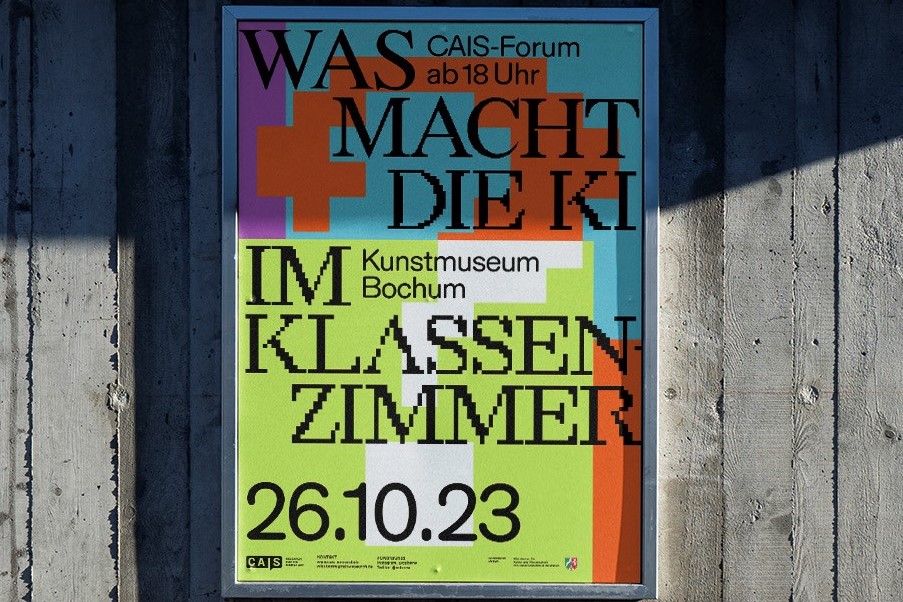
CAIS Forum 2023 will be taking place on 10/26/2023. The title of the event is: "Was macht die KI im Klassenzimmer?" (english: What is AI doing in the classroom?"). Prof. Dr. Rummel will be a speaker of the panel discussion. Furthermore are presenting: Ann-Christin Falhs Feedback im Fokus: Wie Teacher Dashboards digitale Unterrichtseinheiten im Physikunterricht unterstützen. Dr. Alisa Maksimova Sprechende Roboter, Katzenzeichnungen und ethische Dilemmata: Wie Museen zur KI-Kompetenz beitragen. Dr. Sambit Praharaj Am I collaborating well? Was sagt eine automatisierte Analyse über die Qualität der Zusammenarbeit aus? Anna Radke ChatGPT & Co. und akademisches Schreiben: Ghostwriter, Lernpartner oder doch nur “yet another” Tool? Katharina Teich Boost your career! Mit adaptiver Unterstützung durch die Moodle-Welt einer beruflichen Weiterbildung Read more about the CAIS-FORUM here and feel free to register if you would like to attend the event.
[20.10.23]
Fostering Digital Collaboration Skills: A Guide for Educators
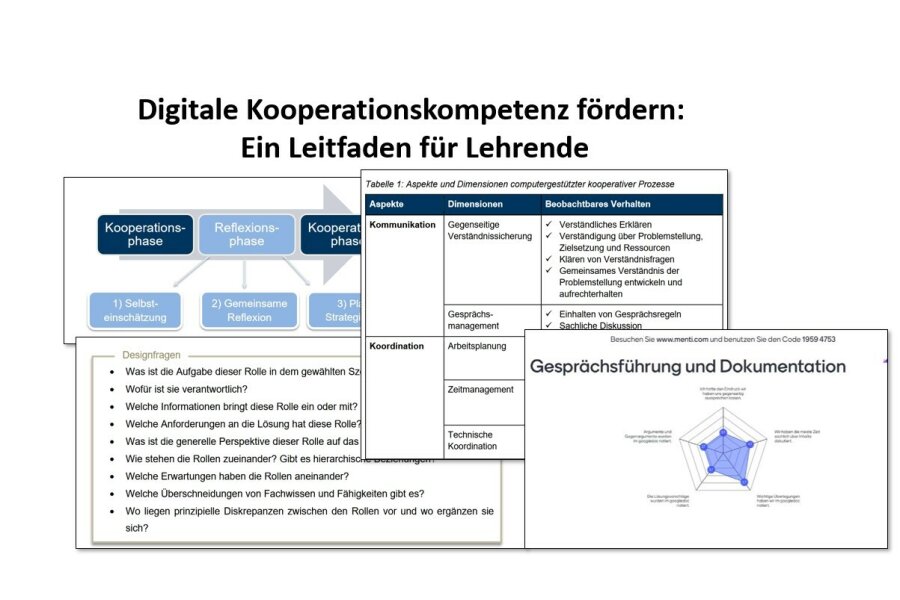
As part of the project, a digital professional concept for teaching collaboration and communication skills for interdisciplinary collaboration was completed. This digital concept has now been written down in the form of a detailed transfer guide. The guide is aimed at teachers, trainers, coaches and didacticians who prepare learners for occupational fields where the promotion of collaboration skills - especially between people with different disciplinary backgrounds - is of particular importance. The aim of this guide is to integrate an intuitive and easy-to-learn method for improving learners' collaborative processes and skills into teaching. This guide, entitled "Fostering Digital Collaboration Skills: A Guide for Educators" is now available on the ORCA.nrw online portal. The transfer guide can be found here.
[18.10.23]
27th JURE 2023 (EARLI23 Pre-Conference)
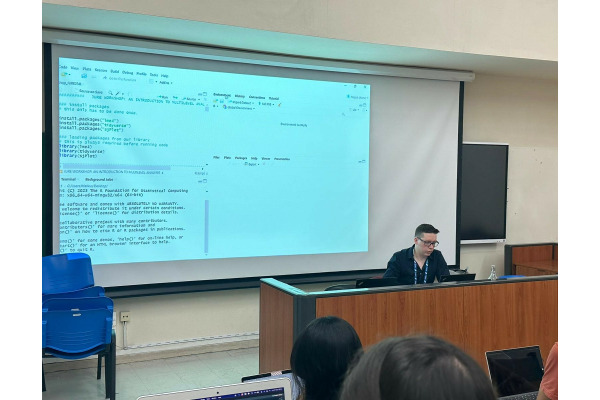
At EARLI’s Pre-Conference for Junior Researchers of EARLI (JURE) Markus Weber led two fully booked workshops on "An Introduction to Multilevel Analysis with R". In the context of learning and instruction, researchers often collect dependent or even hierarchical/nested data. For the latter, data analysis can be very complex and therefore challenging for most (young) researchers. In addition to conceptual understanding of multi-level models, skills in appropriate analysis programs are required for later analysis. In his workshops Markus Weber provided an overview of different multilevel models and enabled participants to code examples in R.
[04.10.23]
Accompanying (digital) learning paths: Intelligent Tutoring Systems
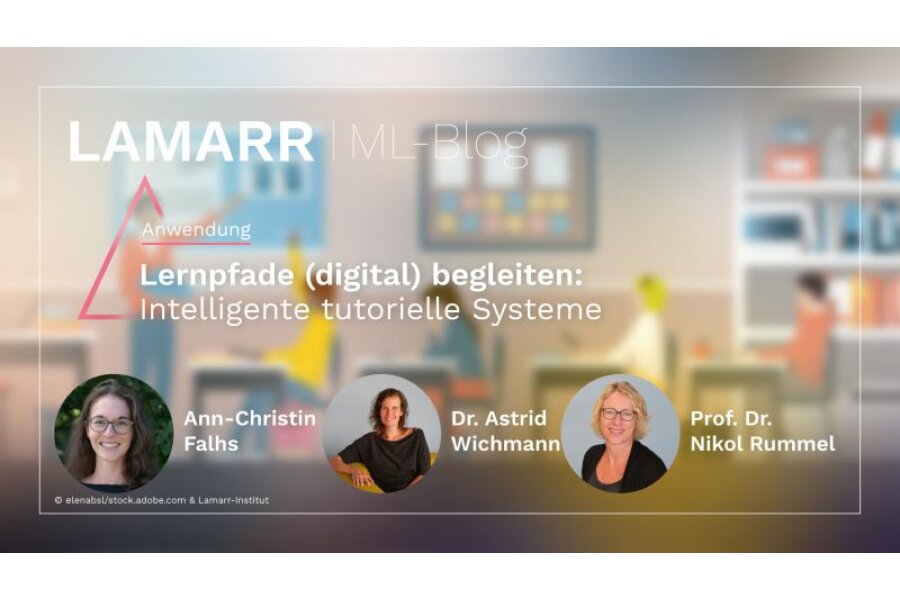
In current debates, the topic of artificial intelligence in the classroom is being lively discussed. Besides worries about ethical aspects or data protection, another concern is about the transparency of the systems. To tackle these issues, it helps to understand what those learning systems are about. In a new blog post from the Lamarr Institute, Ann-Christin Fahls, Dr. Astrid Wichmann and Prof. Dr. Nikol Rummel explain what lies behind Intelligent Tutoring Systems. Furthermore they elaborate how intelligent tutoring systems can support teachers and learners alike.
Click here to read the article "Accompanying (digital) learning paths: Intelligent Tutoring Systems".
[15.09.23]
Nikol Rummel and Laurenz Wiskott talk with QUA-LiS NRW about Learning Technologies and AI
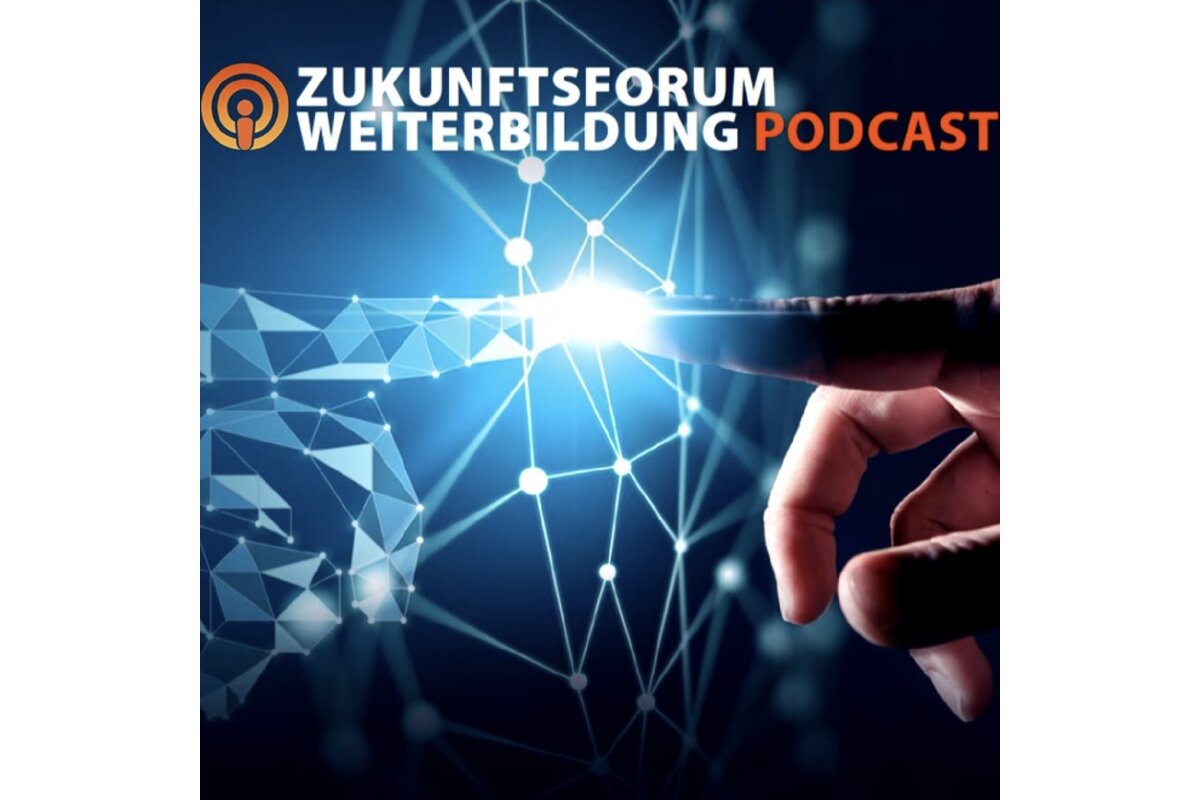
In a podcast series focusing on "Learning Technologies and Artificial Intelligence", Prof. Dr. Rummel and Prof. Dr. Wiskott talk about classical AI systems and artificial neural networks. The presented theoretical aspects are illustrated by the example of well-known text- and image-generating AI systems. In addition to the theoretical classification, the impact of AI on the field of further education is also discussed.
Listen to the podcast here.
[15.09.23]
Sebastian Strauß visiting the Learning and Educational Technology (LET) research unit at the University of Oulu, Finland
In September 2023, Dr. Sebastian Strauß visits the Learning and Learning Processes working group of Prof. Dr. Sanna Järvelä at the Learning & Educational Technology Research Lab (LET) at the University of Oulu, Finland.
Together with Prof. Järvelä and PhD student Ahsen Çini, Sebastian Strauß explored video data of learners engaging in cooperative reflection phases during problem solving in teams. The analysis is intended to provide information on how reliably groups can monitor the quality of their collaboration in order to adjust their approach if necessary so that the joint task can be successfully completed.
In a short presentation entitled "Fostering collaboration competence with a script or collaborative reflection? Results from a lab-experiment. And: how do groups turn reflection into action?", Sebastian presented current research results.
The exchange is made possible by the international and interdisciplinary network "Self-Regulated Learning in Digitalized Schools (SeReLiDiS)", which is funded by the German Federal Ministry of Education and Research (BMBF) and led by Prof. Dr. Joachim Wirth (Research Group on Learning and Instruction, Ruhr-University Bochum).
[30.08.23]
Earli 2023
Last week the group visit the Earli 2023 - read more about our publications below:
Tunnigkeit, I., Strauß, S., Eberle, J., Avdullahu, A., Rummel, N. (2023, August). Fostering computer-supported collaboration knowledge and interaction through scripting and awareness. Paper presented at the 20th Biennial Conference (EARLI 2023), Thessaloniki, Greece.
Hagenkötter, R., Nachtigall, V., Rolka, K., Rummel, N. (2023, August). Mathematical Modelling With Hands-on Experimentation as a Possibility for Inquiry Learning. Paper presented at the 20th Biennial Conference (EARLI 2023), Thessaloniki, Greece.
Nachtigall, V., Yek, S., Rummel, N. (2023, August). Promoting cognitive processing of 360° videos through emotion regulation and collaboration. Paper presented at the 20th Biennial Conference (EARLI 2023), Thessaloniki, Greece.
Strauß, S., Rummel, N. (2023, August). Boundary conditions for leveraging group-level feedback for regulation of collaborative learning. Paper presented at the 20th Biennial Conference (EARLI 2023), Thessaloniki, Greece.
Rummel, N., Van Leeuwen, A. (2023, August). The Role of Data Analytics Tools for Teachers Learning to Implement Student Collaboration. Paper presented at the 20th Biennial Conference (EARLI 2023), Thessaloniki, Greece.
Brand, C., Loibl, K., Rummel, N. (2023, August). The role of students’ breadth of prior knowledge activation in preparation for learning. Paper presented at the 20th Biennial Conference (EARLI 2023), Thessaloniki, Greece.
Schnaubert, L., Radtke, A. (2023, August). Uncertainty Markers as Cues to Form Group Uncertainty Awareness in Online Discussions. Paper presented at the 20th Biennial Conference (EARLI 2023), Thessaloniki, Greece.
Eberle, J., Brouwer, J. (2023, August). The development of peer support networks, self-efficacy, and drop-out intentions. Paper presented at the 20th Biennial Conference (EARLI 2023), Thessaloniki, Greece.
[30.08.23] Excursion of the Research Group
On August 15th the Educational Psychology and Technology Research Group undertook the hike "Around Heisingen" along Lake Baldeney and the Ruhr River in Essen as part of our annual excursion. The hike not only offered beautiful scenery, but also a relaxing break from daily business. Great weather provided perfect circumstances for the team to enjoy a harmonious day outdoors. Midway through the hike, the team stopped at a lookout point where we enjoyed an impressive view of Lake Baldeney and the surrounding landscape. As the hike concluded, the team met at See-Bar restaurant. There we enjoy delicious food and have great conversations. We thank everyone who participated in this day and look forward to upcoming activities and events of our team!
[16.08.23]
New publication on structured doctoral training programs
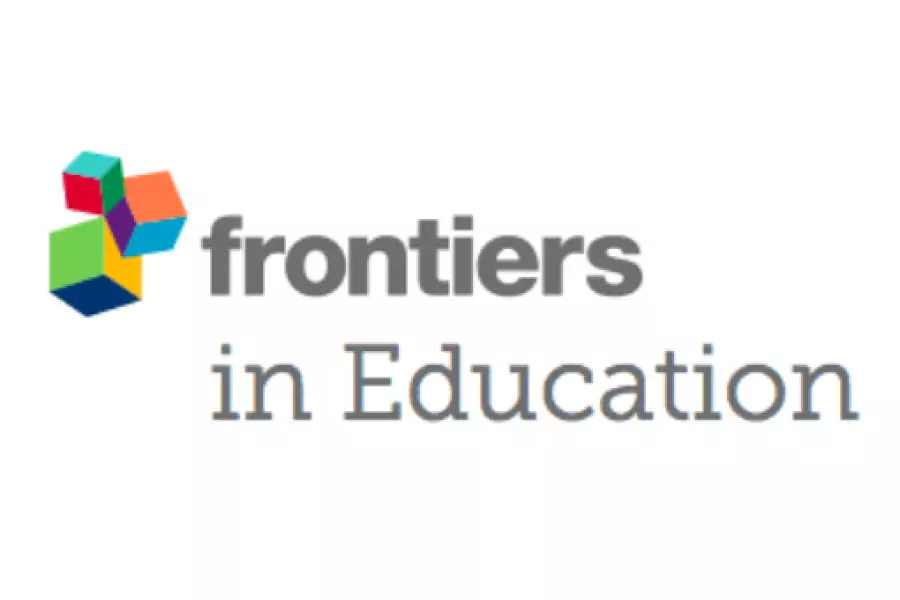
Evaluation of structured doctoral training programs in German life sciences: how much do such programs address hurdles faced by doctoral candidates? Introduction: Ways to improve the quality of doctoral education are debated internationally. In Europe, the United States, and other countries, there have been policy initiatives to address these. One approach has been the implementation of so-called structured doctoral training programs (doctoral programs) including formal structures such as courses, supervision agreements, external examiners for grading the thesis. However, there is little known about how doctoral programs implement the debated structures. As a result, the question arises whether existing programs already address the challenges of doctoral education and implement policy demands. Meuleners J.S., Boone W.J., Fischer M.R., Neuhaus B.J. & Eberle J. (2023). Evaluation of structured doctoral training programs in German life sciences: how much do such programs address hurdles faced by doctoral candidates? Frontiers in Education 8:930283. doi: 10.3389/feduc.2023.930283 Read the full article here.
[19.07.23]
Keynote by Vertr.-Prof. Dr. Julia Eberle on Collaboration in Academia at IPN Kiel
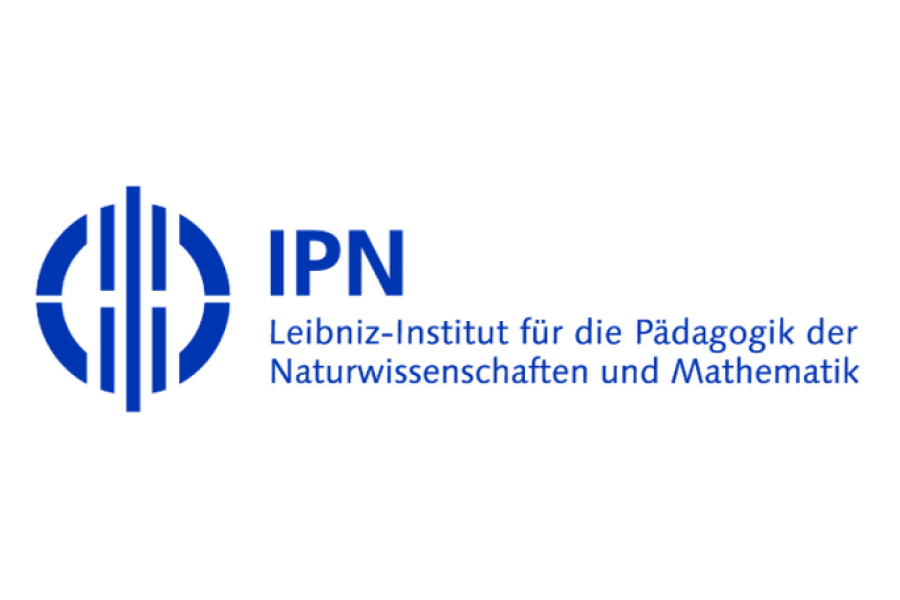
In her talk, Vertr.-Prof. Dr. Julia Eberle offered valuable insights about „Kooperation in der Wissenschaft – Relevanz und Unterstützungsmöglichkeiten für den wissenschaftlichen Nachwuchs" (Collaboration in Academia - Relevance and Support for Early Career Researchers). The keynote speech was part of the Sommertagung of the IPN - Leibniz-Institut für die Pädagogik der Naturwissenschaften und Mathematik in Kiel.
[19.07.23]
Prof. Dr Nikol Rummel and Dr Sebastian Strauß as guests on the "CAISzeit" podcast
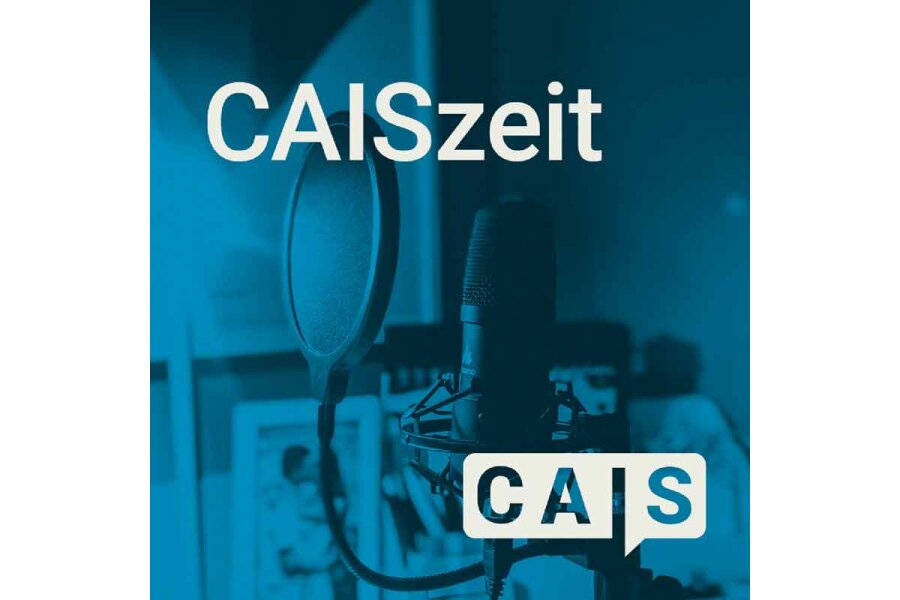
"What is AI doing in the classroom? From research on educational technologies – Guest: Prof. Dr Nikol Rummel and Dr Sebastian Strauß ChatGPT is on everyone's lips. Even at schools and universities, there is hardly a topic that is being discussed more controversially. Generative artificial intelligence is sometimes viewed very pessimistically or - on the other hand - praised as a technology that will bring salvation. Often both are done without reference to research results, undifferentiated and very one-sided." The language of the podcast is German. To learn more about the podcast or listen to it, please visit the CAIS website here.
[10.07.23]
Arlind Avdullahu will be presenting his work at HCII 2023
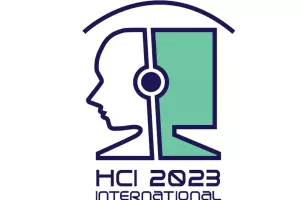
In July 2023, Arlind Avdullahu will present his requirements analysis to support equal participation in hybrid collaboration settings in higher education at the Human-Computer-Interaction International (HCII) in Copenhagen:
Avdullahu, A., Herrmann, T. & Rummel, N. (2023). Requirements Analysis to Support Equal Participation in Hybrid Collaboration Settings in Higher Education. In: Zaphiris, P., Ioannou, A. (eds) Learning and Collaboration Technologies. HCII 2023. Lecture Notes in Computer Science, vol 14041. Springer, Cham. https://doi.org/10.1007/978-3-031-34550-0_30 Read more about The HCII: https://2023.hci.international/
[10.07.23]
CAIS Symposium – AI in Education in Germany - a review
On June 29-30 CAIS research program "Educational Technologies and Artificial Intelligence" held a symposium "AI in Education in Germany: Current State and Future Developments". The symposium took place at Beckmanns Hof (Ruhr-Universität Bochum) and brought together experts working on research and implementation of educational technology. The symposium started with welcoming remarks by Nikol Rummel, head of the research program. It continued with a tour of the poster gallery, where participants had the opportunity to get to know each other and discuss their research foci and interests in a friendly and productive atmosphere. Three keynotes provided inspiration and food for thought. In her talk "Towards hybrid human-AI learning technologies" Inge Molenaar (Radboud University, NL) discussed levels of automation and the potential roles of AI, learners, and teachers. Vincent Aleven (Carnegie Mellon University, US) in the talk "Harnessing human-AI synergy in the smart classroom: What works, new opportunities" has shared his vision of the ways AI can enrich and facilitate learning. Finally, Wayne Holmes (UCL, UK) provided critical insight and drew the audience’s attention to the ethical issues of using AI in educational contexts ("The Ethics of Artificial Intelligence and Education. A critical studies approach"). An interactive format was chosen for the other sessions in the symposium. There were three panel discussions, where speakers made short opening statements which they prepared in advance and then delved into a lively discussion, facilitated by a moderator. Steffen Albrecht (Office of Technology Assessment at the German Bundestag), Wayne Holmes, Inge Molenaar, and Farina Nagel (RuhrFutur) discussed their perspectives on the challenges of using AI in education. In the second session, Vincent Aleven, Frank Reinhold (Freiburg University of Education), and Torsten Zesch (FernUniversität in Hagen) shared their experience with design and evaluation of AI systems for education. The third panel discussion involved Iris Backfisch (Eberhard Karls Universität Tübingen), Elisabeth Bauer (Technische Universität München), and Timo Leuders (Freiburg University of Education), who exchanged ideas on empowering educators to harness the power of “intelligent” tools: professional training of teachers, their needs and competences, and readiness of the educational system for AI-based tools. Both days of the symposium ended with working in small groups to deliberate over some valuable points from the previous sessions, discuss controversies and challenges, and determine the most urgent and burning questions when it comes to developing AI in education in Germany.
You can find further information here.
[28.06.23]
CAIS Symposium – AI in Education in Germany: Current State and Future Developments
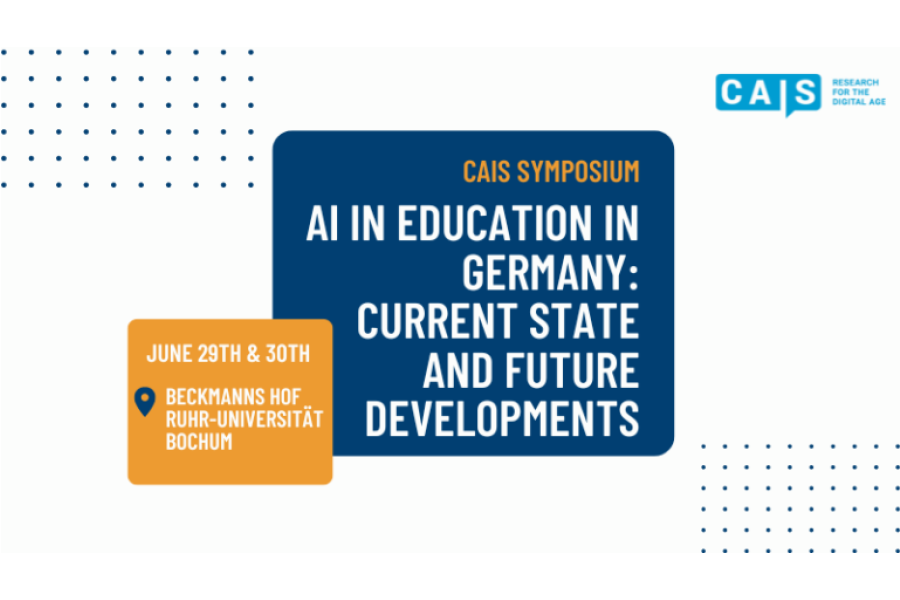
The symposium aims to facilitate discussions on the current state of AI in education research and implementation in Germany, while also highlighting key issues, challenges, and directions for future developments. It is organized by the CAIS-Research Program Educational Technologies and Artificial Intelligence lead by Prof. Nikol Rummel.
Keynotes by: Inge Molenaar (Radboud University, NL): Towards hybrid human-AI learning technologies Vincent Aleven (Carnegie Mellon University, US): Harnessing human-AI synergy in the smart classroom: What works, new opportunities Wayne Holmes (University College London, UK): The Ethics of Artificial Intelligence and Education. A critical studies approach. You can find further information here.
[27.06.23]
New Chapter in "The Power of Peer Learning" by Dr. Sebastian Strauß and Prof. Dr. Nikol Rummel
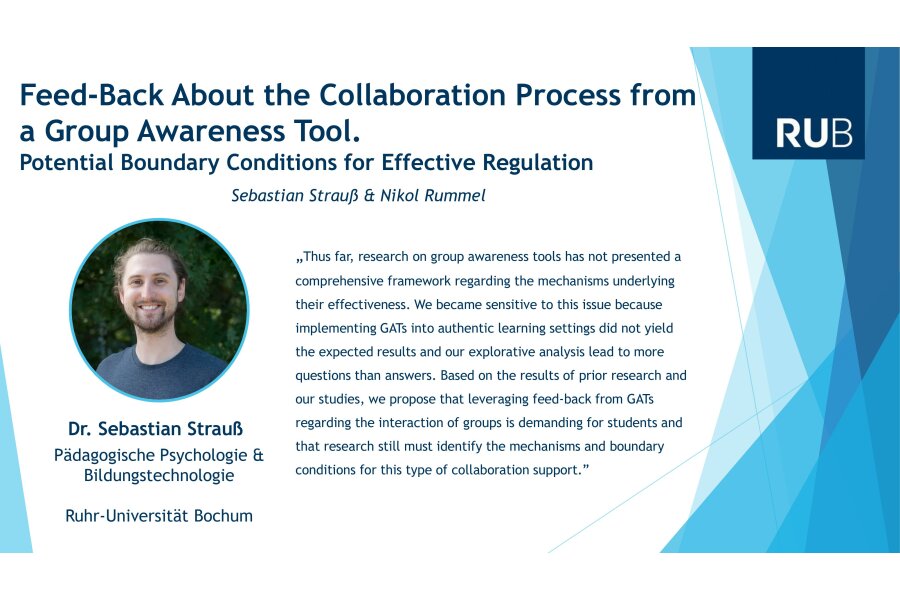
„Thus far, research on group awareness tools has not presented a comprehensive framework regarding the mechanisms underlying their effectiveness. We became sensitive to this issue because implementing GATs into authentic learning settings did not yield the expected results and our explorative analysis lead to more questions than answers. Based on the results of prior research and our studies, we propose that leveraging feed-back from GATs regarding the interaction of groups is demanding for students and that research still must identify the mechanisms and boundary conditions for this type of collaboration support.”
Abstract: During collaborative learning the learners of a group need to monitor and regulate their interaction processes which requires collecting feed-back about past interaction and using it to adapt the collaboration. In this chapter, we argue that group awareness tools achieve this by visualizing information about the group’s interaction. However, the boundary conditions under which groups benefit from these tools still lack a systemic investigation. Based on prior research on group awareness tools and two small-scale field experiments we propose potential boundary conditions that affect whether groups take up the information from a group awareness tool, process this information, and eventually translate it into actions that adapt the current ways of interaction in the group. The resulting overview points out potential starting points for future research on the design of group awareness tools, on processes that are necessary to leverage group-level feedback, and on effective regulation of collaboration. Strauß, S. & Rummel, N. (2023). Feed-Back About the Collaboration Process from a Group Awareness Tool. Potential Boundary Conditions for Effective Regulation. In: Noroozi, O. & De Wever, B. (Hrsg.) The Power of Peer Learning. Social Interaction in Learning and Development (S. 183-213). Springer, Cham. https://doi.org/10.1007/978-3-031-29411-2_9 Read the full chapter here: https://link.springer.com/chapter/10.1007/978-3-031-29411-2_9
[13.06.23]
New Chapter in "Handbook of Artificial Intelligence in Education"
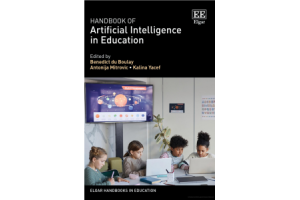
"This chapter reviews AIED implementations of six well-known instructional approaches, namely learning from problem-solving practice, learning from examples, exploratory learning, collaborative learning, game-based learning and learning-by-teaching. We explore the advantages of using AI in implementing these approaches. In our analysis, we take guidance from two complementary conceptual frameworks: first, the “S/vL framework” (Soller et al., 2005; VanLehn, 2016), which focuses on the level of assistance given to learners, and second, the “Adaptivity Grid” (Aleven et al., 2017), which distinguishes the ways this assistance can adapt to learners. Our review finds many variations of adaptive coaching within AIED systems. As well, many systems support multiple instructional goals. By providing assistance and adaptivity, AIED technologies help make feasible the use of the instructional approaches reviewed in this chapter in many educational settings. The great variability in adaptive coaching within AIED systems indicates a need for more conceptual work and a fine-grained taxonomy of coaching."
Aleven, V., Mavrikis, M., McLaren, B. M., Nguyen, H. A., Olsen, J. K., & Rummel, N. (2023). Chapter 9: Six instructional approaches supported in AIED systems. In du Boulay, B., Mitrovic, A., & Yacef, K. (Hrsg.), Handbook of Artificial Intelligence in Education (S.184–228). Edward Elgar Publishing. https://doi.org/10.4337/9781800375413.00019
[07.06.23]
Prof. Dr. Julia Eberle und Dr. Sebastian Strauß zu Gast bei dem Podcast "potenziaLLL"
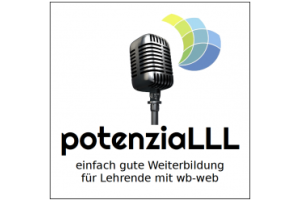
"Im 26. Podcast potenziaLLL spricht wb-web mit Vertr.-Prof. Dr. Julia Eberle und Dr. Sebastian Strauß von der Ruhr Universität Bochum über kooperatives und kollaboratives Lernen. Frau Eberle und Herr Strauß haben im Projekt KoLiBRI mit Studierenden an kooperativen und interdisziplinären Lernprozessen geforscht, den Mehrwert von gemeinsamem Lernen untersucht und Gelingensbedingungen identifiziert, wie und wann kooperatives Lernen sinnvoll und erfolgreich ist."
Hören Sie den Podcast: Im Web, auf Spotify oder sonstigen Streamingdiensten
[07.06.23]
Our Research Scientist will be presenting their research at ISLS 2023.
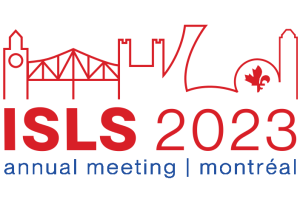
Prof. Dr. Nikol Rummel will be one of the keynote speakers at ISLS 2023 (June 10–15, 2023). In addition, our Research Scientist will be presenting their research: Posters:
- A Reality Check on Collaboration Skills: How Experiences during Interdisciplinary Collaboration Shape Collaboration Self-Efficacy Authors: Julia Eberle; Joyce Hobrecht; Sebastian Strauß; Isis Tunnigkeit; Leonie Fey Vom Bovert
- Integrating perspectives to promote knowledge integration: How knowledge integration, learning progressions and instructional science can complement each other Authors: Marcus Kubsch; Sebastian Strauß; Sascha Bernholt
- Self-Regulated Learning in Online Continuing Education: Managing Learning Time is a Key Challenge Authors: Katharina Teich; Vanessa Loock; Linda Froese; Nikol Rummel
- Teacher Attention Allocation and Student Learning in Human-AI-Partnered Classrooms: A Multimodal Analysis Authors: Shamya Karumbaiah; Conrad Borchers; Ann-Christin Falhs; Kenneth Holstein; Nikol Rummel; Vincent Aleven
- The Impact of Collaboration on Students’ Processing of History-Related 360°-Videos Authors: Valentina Nachtigall; Selina Yek; Nikol Rummel
- Differential effects of a script and a group awareness tool on the acquisition of collaboration skills Authors: Sebastian Strauß; Isis Tunnigkeit; Julia Eberle; Leonie Fey Vom Bovert; Arlind Avdullahu; Marcel Schmittchen; Nikol Rummel
- Adults as users and facilitators in family interaction with multimedia exhibits Author: Alisa Maksimova
[07.06.23]
Diversity Day - Woman Professors Forum
On May 24th, the RUB celebrated its Diversity Day, which included the participation of the Women Professors Forum (WPF, Spokeswomen: Prof. Nikol Rummel and Prof. Konstanze Winklhofer). As part of the Walk of Diversity, the WPF set up a booth where visitors had the opportunity to learn about the forum's work, meet female professors, and engage in meaningful discussions. One of the highlights at the WPF booth was a wishing tree, where individuals could openly express their needs and wishes as women at RUB. This interactive activity sparked conversations and provided a platform for sharing ideas and perspectives. We are grateful for your active participation and the numerous wishes expressed on that day. The WPF will carefully consider and utilize the wishes collected during the event to explore relevant topics that are important to women at RUB. Your input will contribute to shaping the forum's initiatives and activities in a way that best supports the needs of women at RUB. Thank you once again for your enthusiastic engagement, and we look forward to continuing the dialogue and fostering an inclusive environment at RUB. Read more about the WPF: https://www.ruhr-uni-bochum.de/women-prof-forum/index.html.en
[31.05.23]
New article about the KoLiBRI project
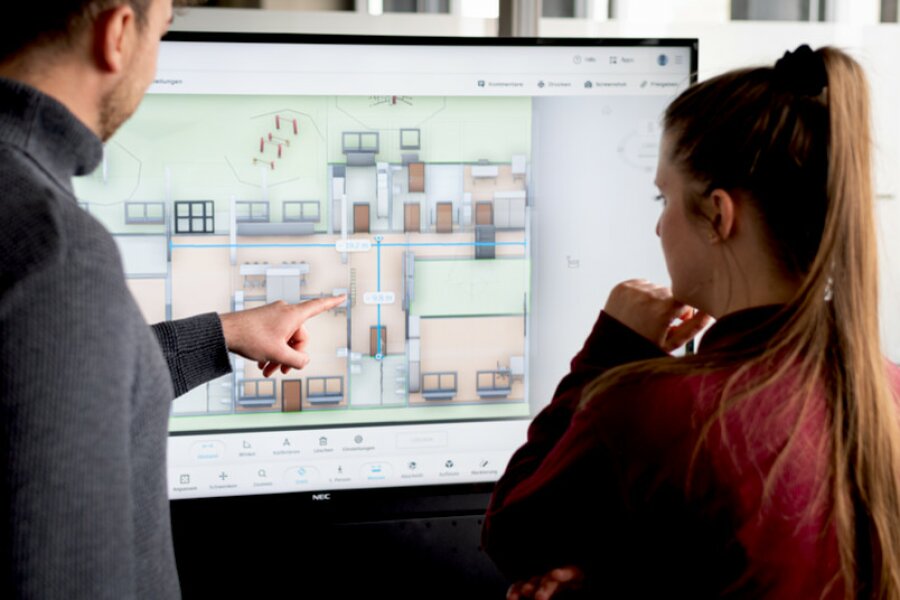
A newly published news article on the RUB website reports on the Bmbf-funded project KoLiBRI: Read the full article here: https://news.rub.de/presseinformationen/wissenschaft/2023-05-26-forschungsprojekt-strategien-fuer-eine-bessere-zusammenarbeit-bei-der-bauplanung Read more about the project here: https://www.pe.ruhr-uni-bochum.de/erziehungswissenschaft/pp/projects/kolibri.html.de
[31.05.23]
New article: Participatory design of teacher dashboards: navigating the tension between teacher input and theories on teacher professional vision

Abstract: In the field of AI in education, there is a movement toward human-centered design in which the primary stakeholders are collaborators in establishing the design and functionality of the AI system (participatory design). Several authors have noted that there is a potential tension in participatory design between involving stakeholders and, thus, increasing uptake of the system on the one hand, and the use of educational theory on the other hand. The goal of the present perspective article is to unpack this tension in more detail, focusing on the example of teacher dashboards. Our contribution to theory is to show that insights from the research field of teacher professional vision can help explain why stakeholder involvement may lead to tension. In particular, we discuss that the sources of information that teachers use in their professional vision, and which data sources could be included on dashboards, might differ with respect to whether they actually relate to student learning or not. Using this difference as a starting point for participatory design could help navigate the aforementioned tension. Subsequently, we describe several implications for practice and research that could help move the field of human centered design further. Van Leeuwen, A., Strauß, S., & Rummel, N. (2023). Participatory design of teacher dashboards: navigating the tension between teacher input and theories on teacher professional vision. Frontiers in Artificial Intelligence, 6. https://doi.org/10.3389/frai.2023.1039739
[31.05.23]
New article: The role of scholarly identity and basic needs support during doctoral studies on career aspirations of early career scientists
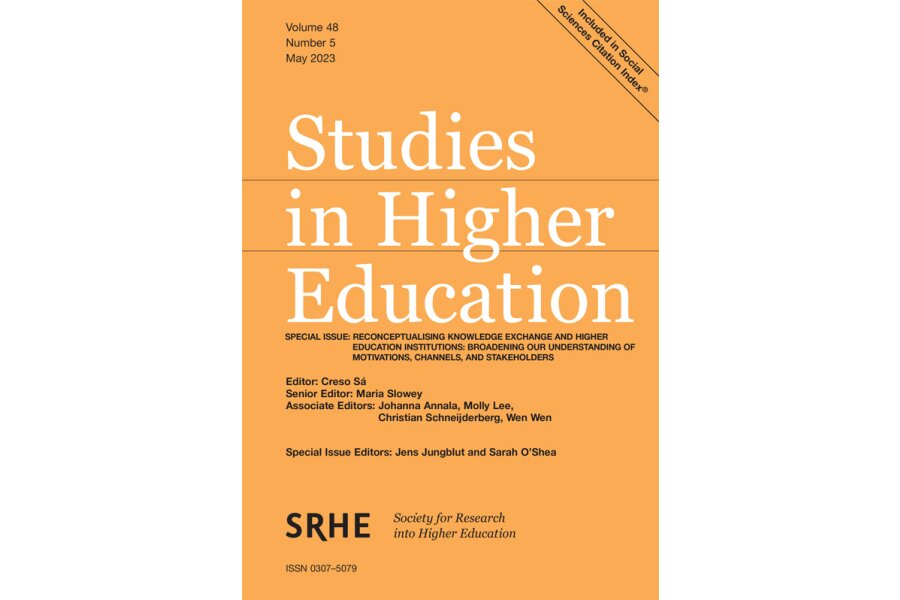
Abstract: The lack of support in academia, especially during doctoral studies, is a widely debated issue. Such experiences can be expected to be highly relevant to young researchers for their developing identity as scholars and their career aspirations. According to self-determination theory, support for the three basic psychological needs for competence, autonomy, and social relatedness in the doctoral context should foster the development of scholarly identity, which in turn is linked to career aspirations. In this longitudinal study, we investigated how doctoral graduates (N = 180) perceived such support during their doctoral studies and how these perceptions were related to their scholarly identity and career aspirations one year after finishing their doctorate. Our findings showed that only social relatedness to the scientific community during the doctorate was positively related to graduates’ aspiration to stay in academia later on. Scholarly identity mediates this effect. We found no effects of competence and autonomy support. We discuss theoretical implications and the need for further research on the relations between the three basic needs. We discuss the applicability of these findings beyond the national context. Meuleners, J. S., Neuhaus, B. J. & Eberle, J. (2023). The role of scholarly identity and basic needs support during doctoral studies on career aspirations of early career scientists. Studies in Higher Education, 1–14. https://doi.org/10.1080/03075079.2023.2217726 Read more: https://doi.org/10.1080/03075079.2023.2217726
[24.05.23]
Prof. Dr. Nikol Rummel is one of the keynote speakers at ISLS 2023 (June 10–15, 2023)

Prof. Dr. Nikol Rummel is one of the keynote speakers at ISLS 2023. She will explore the topic: „CSCL and Learning Analytics: The perfect marriage!…?”. Read more about it: https://2023.isls.org/keynote-speakers/#nrummel
[15.05.23]
Prof. Dr. Nikol Rummel represents CAIS at the Jacobs Foundation Conference
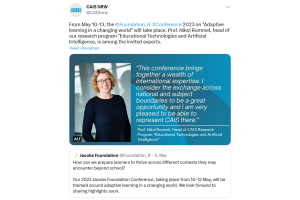
From May 10-13, the Jacobs Foundation Conference took place. The conference topic was Adaptive Learning in a Changing World: Preparing learners with the skills to thrive across contexts and time. How to measure and foster such skills. Read more about the Jacobs Foundation: https://jacobsfoundation.org/ To the Twitternews
[10.05.23]
Boys Day 2023 Workshop zum Thema Lernen und Computer
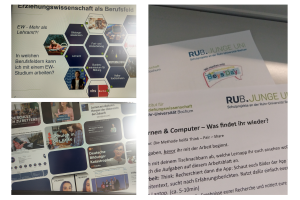
Am 27. April 2023 besuchten 19 Acht- und Neuntklässler aus verschiedenen Gymnasien und Gesamtschulen das Institut für Erziehungswissenschaft zu einem Workshop im Rahmen des Boys‘ Day 2023 (https://www.boys-day.de/). Im Workshop „Lernen und Computer“ gewährten Dr. Sebastian Strauß und Lena-Elisabeth Hempert (B.A.) den Schülern einerseits Einblicke in das Studienfach Erziehungswissenschaft und die Berufsfelder für Erziehungswissenschaftler:innen, andererseits in den Arbeitsalltag von Wissenschaftler:innen. Dabei lernten die Schüler den quantitativen Forschungsprozess von der Ideenfindung bis zur Publikation kennen. Gemeinsam erarbeiteten die Schüler zwei psychologische Lerntheorien, operante Konditionierung und Lernen durch Wiederholung, sowie Gamification, da diese Mechanismen in aktuellen Lernprogrammen und Apps sehr präsent sind. Mit diesem Wissen analysierten die Schüler verschiedene Apps, um diese Mechanismen in der Praxis zu erkennen. Der Workshop schloss mit einem Blick in die Zukunft, in dem Fragen gestellt wurden, wie künstliche Intelligenz in den Unterricht integriert werden könnte, welche Informationen und welche „Expertise“ eine „intelligente“ Computeranwendung benötigt, um das Lernen im Unterricht oder bei den Hausaufgaben zu unterstützen, und ob die Schüler eine solche Technologie im Klassenzimmer überhaupt wünschen würden. Diskutiert wurden Chancen wie die Möglichkeit der Binnendifferenzierung im Unterricht oder die Entlastung der Lehrkraft, aber auch Überwachung, Datenschutz, die Folgen unsauberer automatisierter Diagnosen sowie prinzipielle Herausforderungen bei der validen Modellierung von Lehr- und Lernprozessen auf der Basis digitaler Verhaltensspuren. Wie in den vergangenen Jahren war das Feedback der Schüler zum Workshop positiv. Ziele waren
- a. welche Fertigkeiten muss man mitbringen?
- b. Was sind die Aufgaben, wenn man als Wissenschaftler:in tätig ist?
- c. Wie sieht der Forschungsprozess aus von der Ideenfindung bis zur Publikation aus?
- a. Wir haben diskutiert, was man eigentlich unter Lernen verstehen kann, was man alles erlernen kann und welche Rolle ein Computer, Tablets und Smartphones dabei spielen können
- b. Es wurden zwei grundlegende psychologische Lerntheorien und eine Motivationstheorie erarbeitet, die in aktuellen Lernprogrammen und -apps zum Einsatz kommen: operante Konditionierung, Lernen durch Wiederholung, und Gamification
- c. Zusammen haben die Schüler verschiedene Apps unter die Lupe genommen und versucht zu identifizieren, welche dieser Mechanismen sich dort wiederfinden lassen
- a. Wie könnte eine „künstliche Intelligenz“ für das Lernen in der Schule aussehen?
- b. Welche Informationen benötigt eine solche Anwendung, um Lernen im Unterricht oder bei den Hausaufgaben zu unterstützen?
- i. Hier haben wir zum Beispiel über Möglichkeiten bei der Binnendifferenzierung im Unterricht, die Entlastung der Lehrkraft gesprochen
c. Und ganz wichtig: Wollen wir solch eine „KI“ im Klassenzimmer haben? Wo ist Schluss?
i. Hier haben wir über Überwachung, Datenschutz, die Folgen unsauberer automatisierter Diagnosen sowie prinzipielle Herausforderungen bei der validen Modellierung von Lehr- und Lernprozessen aufgrund von digitalen Verhaltensdaten gesprochen
[18.04.23]
Final event of the project ViRaGe
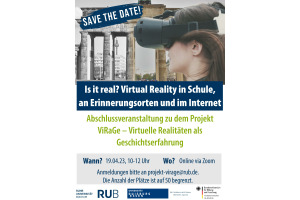
Virtual Reality technologies are increasingly used in history education. However, immersive access to the applications makes it difficult for users to maintain a distance between themselves and the media representation of the past. In order to enable the process of historical thinking and learning following an encounter with virtual representations of history, students should be taught appropriate reflection skills in classroom scenarios. The project addresses the question of how the support of metacognitive and cognitive skills can contribute to the formation of competencies for critical and reflective participation in historical culture. The aim is to investigate the impact of a hybrid learning strategy training on students' experience after using a VR application, depending on how this training is instructionally designed. Therefore, different types of training (e.g., direct, indirect, combined), different types of reflection prompts (e.g., metacognitive, cognitive prompts), and different social forms within the training (e.g., individual, small group cooperation, plenary discussion) will be varied in empirical studies in an out-of-school lab to test the effect of the respective variation on the history reflection of the participating students. In addition, empirical findings will be obtained on whether reflected historical awareness can be reliably and validly measured.
[22.03.23]
Was macht das "CS" in "CSCL" eigentlich?
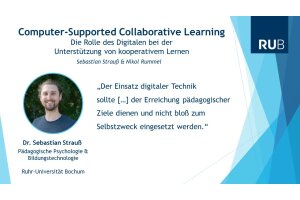
"Der Einsatz digitaler Technik sollte [...] der Erreichung pädagogischer Ziele dienen und nicht bloß zum Selbstzweck eingesetzt werden." In diesem Beitrag beleuchten wir die Rolle, die "das Digitale" beim Lernen und Arbeiten in Kleingruppen spielen kann. Computertechnologie bietet viele verschiedene Möglichkeiten, Kooperation zu ermöglichen und zu beeinflussen. Computer können nicht bloß Kommunikation ermöglichen oder Aufgaben multimedial darstellen. "Smarte" Gegenstände oder Smartphones können Kooperation erleichtern, und Computeranwendungen können Gruppen Unterstützung bereitstellen, die genau auf diese Bedürfnisse zugeschnitten ist oder ihnen dabei helfen, die eigenen Zusammenarbeit zu beobachten und selbstgesteuert zu verändern. Neben den verschiedenen Rollen, die Computertechnik beim Kooperativen Lernen einnehmen kann, beschreiben und diskutieren wir einige Herausforderungen und Stärken digitaler Technik. Im Fokus stehen hier Fragen nach dem Zugang zu digitaler Unterstützung, ihrer Skalierbarkeit, ihrer Konfiguration, sowie der Frage nach einer Handlungsautonomie für die Lernenden.
Der Beitrag erschien im von Prof.'in Dr. Sandra Aßmann und Prof. Dr. Norbert Ricken herausgegebenen Sammelband "Bildung und Digitalität: Analysen–Diskurse–Perspektiven" und ist hier in digitaler Form zu finden: Strauß, S., Rummel, N. (2023). Computer-Supported Collaborative Learning: Die Rolle des Digitalen bei der Unterstützung von kooperativem Lernen. In: S. Aßmann & N. Ricken (Hrsg.): Bildung und Digitalität. Springer VS, Wiesbaden (S.127-164). https://doi.org/10.1007/978-3-658-30766-0_6[20.03.23]
The members of our research group will be presenting at EARLI
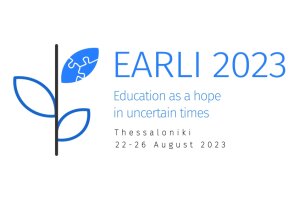
“The European Association for Research on Learning and Instruction (EARLI) is an international scientific association for junior and senior researchers in education.”
Our research group will be represented at EARLI 2023 with the following contributions: Paper contributions:- Eberle, J. & Brouwer, J.: The development of peer support networks, self-efficacy, and drop-out intentions. (ALSTER project)
- Nachtigall, V., Yek, S. & Rummel, N.: Promoting cognitive processing of history-related VR media through emotion regulation strategies and collaboration. (ViRaGe project)
- Tunnigkeit, I., Strauß, S., Eberle, J., Avdullahu, A. & Rummel, N.: Fostering computer-supported collaboration knowledge and interaction through scripting and awareness. (KoLiBRI project)
- Brand, C., Loibl, K. & Rummel, N.: The role of students’ breadth of prior knowledge activation in preparation for learning. (PKA project)
- Eberle, J.: The Social Nature of Education: A Closer Look at Peer Networks of Students and Teachers.
- Hartmann, C. & Nachtigall, V.: A look behind immersive scenes: Experiments on effective learning in virtual reality environments.
- Rummel, N. & Strauß, S.: SeReLiDiS: regulation in individual & groups. (SeReLiDiS network)
- Weber, M.: JURE Workshop "An Introduction to Multilevel Analysis with R" (Workshops)
[20.03.23]
Our research group will be represented at ISLS Annual Meeting 2023 with the following contributions:

- Eberle, J., Hobrecht, J., Strauß, S., Tunnigkeit, I., Vom Bovert, L., Avdullahu, A., Schmittchen, M. & Rummel, N.: A reality check on collaboration skills: how experiences during interdisciplinary collaboration shape collaboration self-efficacy. (KoLiBRI project)
- Strauß, S., Kubsch, M., Bernhold, S.: ALICE conceptual framework. (ALICE project)
- Teich, K., Froese, L., Loock, V. & Rummel, N.: Self-Regulated Learning in Online Continuing Education: Managing learning time is a key challenge. (WILLEN project)
- Karumbaiah, S., Borchers, C., Falhs, A-C., Holstein, K., Rummel, N. & Aleven, V.: Investigating teacher attention allocation and student learning in human-ai-partnered classrooms: A multimodal analysis. (RETTL project)
- Nachtigall, V., Yek, S. & Rummel, N.: The impact of collaboration on students' processing of history-related 360°-videos. (ViRaGe project)
- Strauß, S., Tunnigkeit, I., Eberle, J., Vom Bovert, L., Avdullahu, A., Schmittchen, M. & Rummel, N.: Differential effects of a script and a group awareness tool on the acquisition of collaboration skills. (KoLiBRI project)
- Brand, C., Loibl, K. & Rummel, N.: Prior Knowledge Activation in Problem Solving Prior to Instruction: How does the breadth of activation affect learning? (PKA project)
- Fischer, F. et al.: Doing quantitative research in LS and CSCL.
- Chan, C., Chinn, C. & Eberle, J.: Early Career Workshop. (Workshop)
[06.03.23]
Research Day
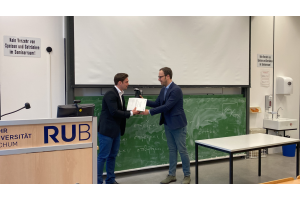
On February 15, the Research Day took place at the Institute of Educational Science at RUB. Among other things, current research results were presented and the panel discussion was "Career path to professorship" war organized. Our former employee Dr Christian Hartmann was awarded a prize for his dissertation. We congratulate Dr. Christian Harmann once again and thank all participants for this nice exchange on the Research Day!
[06.03.23]
New publication in the Journal of Instructional Science
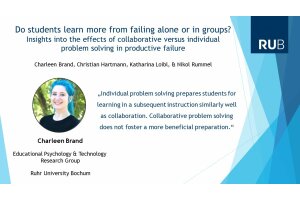
Let's fail together... or not? "Individual problem solving prepares students for learning in a subsequent instruction similarly well as collaboration. Collaborative problem solving does not forster a more beneficial preparation." Learn more about our comparison of collaborative and individual problem solving as preparation for learning in Productive Failure in our new publication: Brand, C., Hartmann, C., Loibl, K. & Rummel, N. Do students learn more from failing alone or in groups? Insights into the effects of collaborative versus individual problem solving in productive failure. Instructional Science (2023). https://doi.org/10.1007/s11251-023-09619-7 Read the full publication here: https://link.springer.com/article/10.1007/s11251-023-09619-7
[06.03.23]
Live online lectures of the project WILLEN
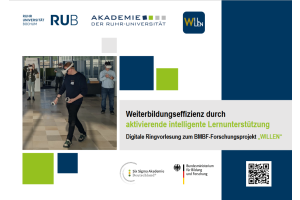
Six different course lectures of the collaborative project WILLEN (Weiterbildung mit intelligenter Lernunterstützung ist effizient und nachhaltig) will take place in March. The lecture by our Department Pädagogische Psychologie und Bildungstechnologie will be held on 23.03.23 at 4:15 to 4:45 p.m. via Zoom. The topic of the lecture is "Entwicklung eines adaptiven Lernunterstützungssystems". The lecture will be held in German. Read more about the online lectures: https://www.akademie.rub.de/forschungsprojekte-weiterbildung/willen/willen-ringvorlesung-03-2023-weiterbildungseffizienz-durch-aktivierende-intelligente-lernunterstuetzende-massnahmen/
[06.03.23]
Our research scientists were at the GEBF conference
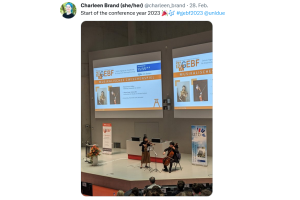
From 27.02 - 02.03.23 the GEBF (Gesellschaft für Empirische Bildungsforschung) conference took place at the University of Duisburg-Essen under the theme "Education between uncertainty and evidence".
Two papers by the members of our research group were presented as part of the GEBF:- Hobrecht, J., Eberle, J., Tunnigkeit, I., Vom Bovert, L., Strauß, S., Schmittchen, M., Avdullahu, A. & Rummel, N.: Die Rolle eines Kooperationsskripts für die Veränderung kooperationsbezogener Selbstwirksamkeitserwartung in einer computerbasierten Lernumgebung.
- Eberle, J., Strauß, S., Tunnigkeit, I., Vom Bovert, L., Schmittchen, M. Avdullahu, A. & Rummel, N.: Training von interprofessionellen Kooperationsfertigkeiten - Ein Vergleich der Effekte von externalen Kooperationsskripts und Gruppenreflektion.
[06.03.23]
Dr. Astrid Wichmann will speak at the “Alternative Careers Panel” at JURE 2023 Career Day
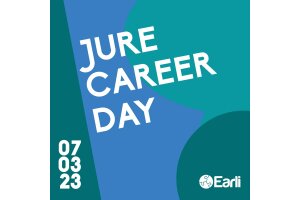
Dr. Astrid Wichmann will speak at the “Alternative Careers Panel” at JURE 2023 Career Day. The Career Day will be on 07.03.23 from 9 am – 4pm and Dr. Wichmann will be speaking in the session from 1:30 pm till 3 pm. “The JURE Career Day offers junior researchers the opportunity to engage with questions about and advice on career building and opportunities beyond your PhD.” "JURE is the network of Junior Researchers of EARLI and dedicated to the interests of all junior reserchers in the field of learning and instruction." Read more about the Career Day: https://www.earli.org/events/jure-career-day
[25.01.23]
Research scientist Charleen Brand collected data at Harvard University
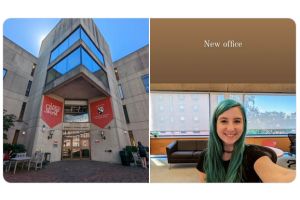
Research scientist Charleen Brand collected data at Harvard University during a 3-month research stay, from September to November 2022, as part of a research project funded by the Research School (PR.INT). The project is in collaboration with Professor Bertrand Schneider of the Learning, Innovation and Technology Lab at Harvard Graduate School of Education (https://lit.gse.harvard.edu/) that started in January 2022. Together they research how students compare and analyze knowledge components within erroneous solution attempts prior to instruction using eye-tracking technology. The collaboration continues in 2023.
[13.01.23]
We are looking for a scientist who supports us in our new project DigiFit!
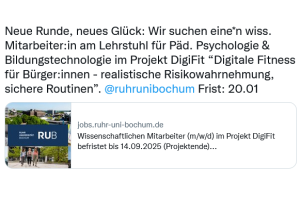
Der Arbeitsbereich sucht für das durch das Bundesministerium für Bildung und Forschung (BMBF) geförderte Projekt “Digitale Fitness für Bürgerinnen und Bürger - realistische Risikowahrnehmung, sichere Routinen” (DigiFit) zum nächstmöglichen Zeitpunkt eine/n wiss. Mitarbeiter:in (m/w/d) in Vollzeit (Tarif: 100% TV-L E13, 39,83 Std./Woche, Vertragslaufzeit: bis 14.09.2025).
[10.01.23]
Sebastian Strauß kicks off the CAIS Colloquium
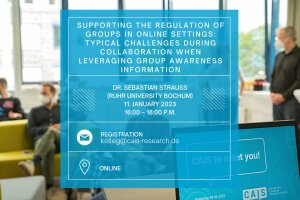
Sebastian Strauß kicks off the CAIS Colloquium this year with his talk: “Supporting the regulation of groups in online settings.” More info on Twitter: https://twitter.com/CAISnrw/status/1612426111371051008
[07.12.22]
New Article: Apprenticeship learning
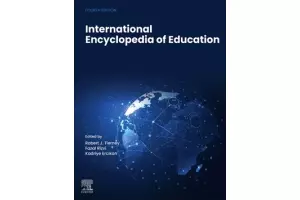
Apprenticeship learning is a central macro-approach to how learning and teaching can take place, standing in contrast to schooling. In the apprenticeship learning approach, learning takes place in the real-life context in which the content to be learned is of immediate relevance. Learning is understood as developing expertise in practices relevant in the learner's current life, takes place in a fully contextualized way, and is situated in a meaningful social context of practitioners Apprenticeship learning is mostly applied to observable practices but can also be applied to cognitive skills. Bringing apprenticeship learning and schooling together to benefit from their unique strengths is a current trend in educational research and practice.
Eberle, J. (2023). Apprenticeship learning. International Encyclopedia of Education (Fourth Edition) 2023, 568-574. https://doi.org/10.1016/B978-0-12-818630-5.14068-0
Read the full article here:
https://www.sciencedirect.com/science/article/pii/B9780128186305140680
[06.12.22]
New Journal Article: Fostering cognitive strategies for learning with 360° videos in history education contexts

Learning settings in and out of school are increasingly relying on the use of virtual reality applications, such as 360° videos, to make learning an exciting and vivid experience for students. This applies especially to history-learning contexts. Learning with immersive representations of history-related contents requires a critical examination and reflective processing of the learning content. Cognitive strategies, such as organizing and elaborating information correspond with competencies which are assumed to be important for students’ critical examination and reflective processing of history-related content. Research on self-regulated learning (SRL) suggests that the use of cognitive strategies can be promoted through respective SRL trainings. Thus, in the present quasi-experimental study (N = 164), we investigated the effectiveness of a SRL training, which adds to regular instruction on processing history-related learning materials, for students’ use of cognitive strategies when examining immersive history-related 360° videos. Our results show that students who practiced analyzing 360° videos within an explicit SRL training used more cognitive strategies than students who received an implicit SRL training on how to analyze these videos. Further findings suggest that the use of these cognitive strategies probably helped students of the training condition (explicit SRL training) to make less imprecise or trivial analyses and to draw more reflective conclusions than students of the control condition (implicit SRL training). By combining research on SRL and history education, our study may provide a new impulse for empirical research on competence-oriented learning with history-related virtual reality media. Nachtigall, V., Yek, S., Lewers, E. et al. Fostering cognitive strategies for learning with 360° videos in history education contexts. Unterrichtswiss 50, 615–638 (2022). https://doi.org/10.1007/s42010-022-00154-x Read the full article here:
https://link.springer.com/article/10.1007/s42010-022-00154-x
[23.11.22]
New Journal Article: Productive versus vicarious failure: Do students need to fail themselves in order to learn?
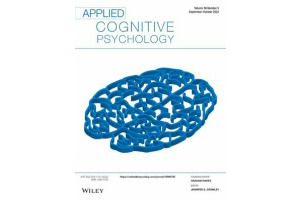
Productive Failure is an instructional approach in which students engage in problem-solving attempts prior to instruction. The Productive Failure approach has been found to be more supportive for conceptual knowledge acquisition during subsequent instruction compared to a direct-instruction condition in which students receive instruction first followed by problem solving. Failing at problem-solving attempts prior to instruction is considered to prepare students to better understand the concepts underlying the problem. However, it is an open question whether students need to fail themselves to be effectively prepared for subsequent instruction. We therefore compared the effectiveness of two alternative preparatory activities: Students either engaged in problem-solving attempts themselves or were shown problem-solving attempts of another student. This experimental variation allows to show the necessity of own failure for the effectiveness of the PF approach. The results indicated that the two conditions were equally effective at preparing students for subsequent instruction. Hartmann, C., van Gog, T., & Rummel, N. (2022). Productive versus vicarious failure: Do students need to fail themselves in order to learn? Applied Cognitive Psychology, 1– 15. https://doi.org/10.1002/acp.4004 Read the full article here:
https://onlinelibrary.wiley.com/doi/10.1002/acp.4004
[08.11.22]
New Journal Article: Combining exploratory learning with structured practice educational technologies to foster both conceptual and procedural fractions knowledge
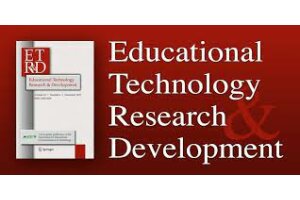
Wie kann eine intelligente Lernsoftware Kindern dabei helfen, Brüche leichter zu verstehen? Nikol Rummel und Kollegen haben in zwei quasi-experimentellen Studien untersucht, ob die Verknüpfung explorativen Lernens mit strukturiertem Üben im Rahmen einer intelligenten Lernsoftware sich positiv auf prozedurales Wissen und konzeptuelles Verständniswissen auswirkt. Ergebnisse deuten darauf hin, dass die Verknüpfung prozedurales und konzeptuelles Wissen fördert. Es lässt sich vermuten, dass beide Wissensarten abhängig voneinander sind und deshalb in Kombination gefördert werden sollten. Die Studien wurden im Rahmen des von der EU geförderten Projekts „iTalk2Learn“ gemeinsam mit Projektpartnern aus ganz Europa (siehe italk2learn.eu) durchgeführt. Mavrikis, M., Rummel, N., Wiedmann, M. et al. Combining exploratory learning with structured practice educational technologies to foster both conceptual and procedural fractions knowledge. Education Tech Research Dev 70, 691–712 (2022). https://doi.org/10.1007/s11423-022-10104-0 Der vollständige Artikel kann als Open Access Artikel unter der folgenden Adresse abgerufen werden:
https://link.springer.com/article/10.1007/s11423-022-10104-0
[25.10.22]
Neue Veröffentlichung von Leeuwen & Rummel zum Thema Teacher Dashboards
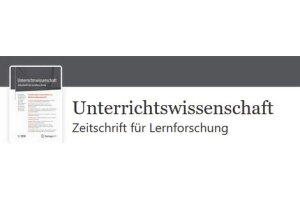
Neue Veröffentlichung von Leeuwen & Rummel zum Thema Teacher Dashboards und (1) wie sie von LehrerInnen wahrgenommen werden und (2) wie die Teacher Dashboards von Lehrerinnen unter Zeitdruck eingesetzt werden. Van Leeuwen, A., & Rummel, N. (2022). The function of teacher dashboards depends on the amount of time pressure in the classroom situation: results from teacher interviews and an experimental study. Unterrichtswissenschaft. https://doi.org/10.1007/s42010-022-00156-9 Sie können die Veröffentlichung hier einsehen:
https://link.springer.com/article/10.1007/s42010-022-00156-9
[08.09.22]
Neuer Artikel von Prof. Nikol Rummel ist in Journal of Learning Analytics erschienen
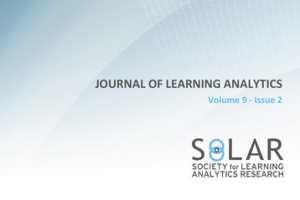
"Using HeuristicsMiner to Analyze Problem-Solving Processes: Exemplary Use Case of a Productive-Failure Study" ist in Journal of Learning Analytics erschienen. Die Studie untersuchte Problemlöse- und Lernprozesse im Mathematikunterricht. Ziel war es, diese Prozesse mithilfe von Learning Analytics Methoden besser abzubilden, als dies mit traditionellen Auswertungsstrategien von Prozessdaten möglich gewesen wäre. Während der Studie sollten Lernende eigene Lösungsansätze für ein mathematisches Problem finden, welches sie bis dahin nicht im Unterricht behandelt haben. Nach dieser vorbereitenden Problemlösephase wurden sie über die richtige Lösung unterrichtet. Während des Problemlösens sollten die Lernenden „laut denken“, d.h. sämtliche Gedanken wie etwa Lösungsideen, Hypothesen oder Begründungen äußern. Diese Sprachdaten wurden transkribiert und mithilfe des HeuristicsMiner ausgewertet. Der HeuristicsMiner ist ein Algorithmus, der aufeinanderfolgende Prozesse analysiert und so bestimmte Muster erkennen kann. Die Problemlöseprozesse, die durch das laute Denken der Lernenden beobachtbar wurden, konnten so mittels des Algorithmus prozesshaft sortiert werden. So zeigte der Algorithmus beispielsweise, inwiefern Lernende ihre eigenen Lösungen hinsichtlich der Eignung zur Problemlösung evaluierten oder direkt, d.h. ohne Evaluationsprozesse zu einer neuen Lösungsidee wechselten. Die Ergebnisse der Analyse zeigten unter anderem, dass erfolgreiche Lernende deutlich effizientere Problemlösestrategien anwendeten, als weniger erfolgreiche Lernende. Interessanterweise unterschieden sich die Lernenden nicht in der Häufigkeit gezeigter Aktivitäten (z.B. Evaluation von Ideen), sondern ausschließlich in der Reihenfolge gezeigter, d.h. aufeinanderfolgender Aktivitäten. Unsere Studie soll künftigen Studien mit vergleichbaren Daten dabei helfen, Prozessdaten mittels feinkörnigerer Methoden zielgerichteter analysieren zu können Hartmann, C., Rummel, N., & Bannert, M. (2022). Using Heuristics Miner to Analyze Problem-Solving Processes: Exemplary Use Case of a Productive-Failure Study. Journal of Learning Analytics, 1-21. https://doi.org/10.18608/jla.2022.7363 Sie können den Artikel unter folgendem Link einsehen:
https://www.learning-analytics.info/index.php/JLA/article/view/7363
[01.09.22]
Neues Verbundprojekt „Digitale Fitness für Bürgerinnen und Bürger - realistische Risikowahrnehmung, sichere Routinen“ (DigiFit)

Das Projekt hat zum Ziel, Methoden und Werkzeuge zur Steigerung der digitalen Fitness von Bürgern und Bürgerinnen im Bereich IT-Sicherheit und Privatsphäre zu entwickeln und zu evaluieren. Im Rahmen der ausgeschriebenen Stelle soll ein Lernkonzept zur Steigerung der digitalen Fitness entwickelt und evaluiert werden. Hierfür soll im ersten Schritt eine experimentelle Erhebung von aktuellen mentalen Modellen über IT-Sicherheitsrisiken und -bedrohungen durchgeführt und ausgewertet werden. Basierend darauf soll ein Lernkonzept zur Transformation lückenhafter und / oder inkorrekter mentaler Modelle entwickelt und dieses im Rahmen von experimentellen Studien evaluiert und optimiert werden. Zum Projekt:
https://www.pe.ruhr-uni-bochum.de/erziehungswissenschaft/pp/projects/DigiFit.html.de
[30.06.22]
Post-Doc von Prof. Rummel erhält den Best Design Paper Award auf der CSCL 2022 Konferenz
"Der Beitrag mit dem Titel "Co-designing AI-based orchestration tools to support dynamic transitions: Design narratives through conjecture mapping" by Lu Lawrence and colleagues erhielt den Best Design Paper Award im Rahmen der 15. International Conference on Computer-Supported Collaborative Learning (CSCL 2022). Erstauthorin Lu Lawrence war Post-Doc in einem NSF finanzierten Projekt unter Leitung von Prof. Nikol Rummel sowie Prof. Vincent Aleven (Carnegie Mellon University). Das Paper nutzt Design-Elemente und Conjecture Mapping für die Gestaltung eines neuartigen Organisations-Tools für Lehrkräfte. Das Tool unterstützt Lehrkräfte innerhalb von Klassenräumen in denen Lernende dynamisch zwischen individuellen und kollaborativen/kooperativen* Lernaktivitäten wechseln, gestützt durch eine AI-Tutoring-Software, um einen angemessenen Lernmodus anzubieten, angepasst an die Bedürfnisse der Lernenden. Full citation: Lawrence, L., Guo, B., Echeverria, V., Kang, Z., Bathala, V., Li, C., Huang, W., Aleven, V., & Rummel, N. (2022). Co-designing AI-based orchestration tools to support dynamic transitions: Design narratives through conjecture mapping. In A. Weinberger, W. Chen, D. Hernández-Leo, & B. Chen, (Eds.), Proceedings of the 15th International Conference on Computer-Supported Collaborative Learning – CSCL 2022 (pp. 139–146). Hiroshima, Japan: International Society of the Learning Sciences. Conference Best Design Paper Award
[05.05.22]
Neuer Artikel von Valentina Nachtigall et al. „Stirring a Secret Sauce: A Literature Review on the Conditions and Effects of Authentic Learning“ in Educational Psychology Review erschienen
Zusammen mit David Williamson Shaffer von der University Wisconsin-Madison (USA) haben Nikol Rummel und Valentina Nachtigall vom Lehrstuhl für Pädagogische Psychologie und Bildungstechnologie 50 empirische Studien zur Effektivität authentisch kontextualisierter Lernsettings analysiert. Dabei untersuchten sie unter anderem, wie sich Studien, die eine eher hohe Effektivität authentisch gestalteter Lernumgebungen für kognitive und motivationale Lernergebnisse zeigen, von Studien, die kleine bis keine Effekte demonstrieren, mit Blick auf die Designelemente der Lernsettings und die zugrundeliegenden Intentionen von Authentizität unterscheiden. Die Ergebnisse wurden kürzlich in einem Open Access Artikel in der Zeitschrift „Educational Psychology Review“ veröffentlicht: https://link.springer.com/article/10.1007/s10648-022-09676-3
[05.05.22]
Neuer Artikel von Valentina Nachtigall et al. „Stirring a Secret Sauce: A Literature Review on the Conditions and Effects of Authentic Learning“ in Educational Psychology Review erschienen
Zusammen mit David Williamson Shaffer von der University Wisconsin-Madison (USA) haben Nikol Rummel und Valentina Nachtigall vom Lehrstuhl für Pädagogische Psychologie und Bildungstechnologie 50 empirische Studien zur Effektivität authentisch kontextualisierter Lernsettings analysiert. Dabei untersuchten sie unter anderem, wie sich Studien, die eine eher hohe Effektivität authentisch gestalteter Lernumgebungen für kognitive und motivationale Lernergebnisse zeigen, von Studien, die kleine bis keine Effekte demonstrieren, mit Blick auf die Designelemente der Lernsettings und die zugrundeliegenden Intentionen von Authentizität unterscheiden. Die Ergebnisse wurden kürzlich in einem Open Access Artikel in der Zeitschrift „Educational Psychology Review“ veröffentlicht: https://link.springer.com/article/10.1007/s10648-022-09676-3
[01.04.22]
Neue Veröffentlichung von Claudia Mazziotti und Nikol Rummel im npj Science of Learning Journal der Nature Reihe
Dr. Claudia Mazziotti und Prof. Dr. Nikol Rummel haben gemeinsam mit Dr. Anne Deiglmayr von der ETH Zürich und Dr. Katharina Loibl von der PH Freiburg ihren Artikel „Probing boundary conditions of Productive Failure and analyzing the role of young students‘ collaboration“ im npj Science of Learning Journal veröffentlicht. Der Artikel adressiert zwei zentrale Fragen im Productive Failure Forschungsparadigma. Zum einen wird der Frage nachgegangen, inwiefern sich der lernförderliche und oft replizierte Effekt von Productive Failure auch auf Lernende, die wesentlich jünger als die Teilnehmer vorheriger Productive Failure Studien sind, übertragen lässt. Zum anderen wird systematisch untersucht, welche Rolle das kooperative Lernen im Vergleich zum individuellen Lernen während des anfänglichen Aufgabenbearbeitens vor Instruktion für den Productive Failure Effekt hat. Die Antworten auf beide Fragen stellen wichtige und neue Beiträge für die Productive Failure Forschung dar und regen zur Diskussion über mögliche Grenzen des Productive Failure Ansatzes an. Lesen und runterladen können Sie den vollständigen Artikel unter: https://www.nature.com/articles/s41539-019-0041-5.
[31.03.22]
Valentina Nachtigall ist neue JURE Koordinatorin der EARLI SIG 20
Valentina Nachtigall, Postdoktorandin am Lehrstuhl für Pädagogische Psychologie, ist seit Anfang des Jahres neue JURE (Junior Researcher) Koordinatorin der Special Interest Group (SIG) 20 „Inquiry Learning“ der European Association for Research on Learning and Instruction (EARLI). Sie folgt damit auf Anna Keune (Technische Universität München), deren Amtszeit als JURE Coordinator aufgrund ihrer Berufung auf eine Juniorprofessur vorzeitig endete. In der SIG 20 arbeitet Valentina Nachtigall mit Koen Veermans (University of Turku) und Tasos Hovardas (University of Cyprus) zusammen und unterstützt Aktivitäten wie die Organisation der nächsten EARLI SIG 20 Konferenz, die zusammen mit der SIG 26 (Argumentation, Dialogue and Reasoning) vom 14. bis zum 16. September 2022 in den Niederlanden an der Universität Utrecht stattfinden wird.
[16.03.22]
Neues DFG Projekt „Untersuchung und Messung von Schüler*innenvorstellungen über Geistes- und Gesellschaftswissenschaftler*innen“
Am Lehrstuhl für Pädagogische Psychologie und Bildungstechnologie beginnt ein neues Forschungsprojekt zum Thema „Untersuchung und Messung von Schüler*innenvorstellungen über Geistes- und Gesellschaftswissenschaftler*innen“. Das Projekt wird durch die Deutsche Forschungsgemeinschaft (DFG) gefördert. Antragstellerin ist Dr. Valentina Nachtigall und Kooperationspartnerin ist Prof. Dr. Nikol Rummel. Basierend auf bisherigen Forschungsergebnissen, die auf einen Zusammenhang zwischen den (oftmals inadäquaten) Vorstellungen von Schüler*innen über Naturwissenschaftler*innen und ihrem (eher geringen) Interesse an naturwissenschaftlichen Studiengängen hindeuten, soll in dem Projekt schwerpunktmäßig untersucht werden, welche Vorstellungen Schüler*innen über Geistes- und Gesellschaftswissenschaftler*innen besitzen und inwiefern diese mit ihrem Interesse an entsprechenden Studiengängen zusammenhängen.
[03.12.21]
Selina Yek erhält Studierendenpreis der Fakultät
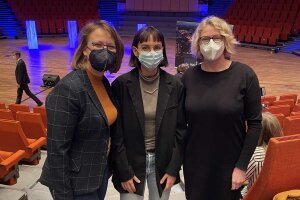
Am 24.November 2021 erhielt Selina Yek im Rahmen der akademischen Jahresfeier den Studierendenpreis der Fakultät für Philosophie und Erziehungswissenschaft. Mit diesem Preis wurde Frau Yek für ihre herausragende Masterarbeit „Potentiale zur Verbesserung der Lehrqualität in der Hochschule durch digitale Maßnahmen: Evaluation einer digitalisierten Informatik-Vorlesung“ ausgezeichnet. Betreut wurde die Arbeit von Dr. Katja Serova (Arbeitsbereich Quantitative Forschungsmethoden) und Prof. Dr. Nikol Rummel (Lehrstuhl Pädagogische Psychologie). In ihrer Arbeit evaluierte Frau Yek die Wirksamkeit digitaler Lehre anhand einer Fallstudie. Die Evaluation orientierte sich an drei Schwerpunkten: dem Vorwissen, dem Lernverhalten und der Prüfungsleistung von Teilnehmer*innen einer Informatik-Vorlesung. Diese Vorlesung wurde im Wintersemester 19/20 mit Hilfe von digitalen Maßnahmen umstrukturiert, um den Lernerfolg der Studierenden zu erhöhen. Die Ergebnisse der Evaluation zeigen unter anderem, dass eine hohe Partizipation an digitalisierten Übungsaufgaben hilfreich ist, um Vorwissensunterschiede zu kompensieren und gute Prüfungsleistungen zu erzielen. Seit November 2020 ist Frau Yek als wissenschaftliche Mitarbeiterin am Lehrstuhl für Pädagogische Psychologie tätig und arbeitet schwerpunktmäßig im Projekt „ViRaGe - Virtuelle Realitäten als Geschichtserfahrung“.
[18.11.21]
Metakognitives Monitoring in authentischen Lehr-Lernkontexten im Schülerlabor
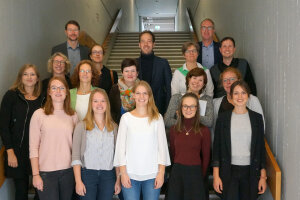
Das interdisziplinäre Promotionskolleg Metakognitives Monitoring in authentischen Lehr-Lernkontexten im Schülerlabor (MeMo-akS) baut auf dem Promotionskolleg Wissenschaftsvermittlung im Schülerlabor auf und erweitert dieses. Im Promotionskolleg Wissenschaftsvermittlung im Schülerlabor wurden von 2013 bis 2018 Effekte einer authentischen Wissenschaftsvermittlung im Alfried Krupp-Schülerlabor untersucht. Das Promotionskolleg MeMo-akS verknüpft diese Forschung zum Thema Authentizität in der Wissenschaftsvermittlung mit dem Forschungsbereich Metacomprehension. Die Forschung zu Metacomprehension beschäftigt sich mit metakognitiven Urteilen von Lernenden und zielt insbesondere darauf ab:
- Gründe für ungenaue (oftmals: überoptimistische) metakognitive Urteile von Lernenden zu identifizieren
- die Folgen dieser Urteile zu erforschen und
- Maßnahmen zur Erhöhung der Urteilsgenauigkeit zu entwickeln.
- Warum hat Authentizität in der Wissenschaftsvermittlung bisher heterogene Effekte gezeigt und sich insbesondere hinsichtlich des Lernerfolgs als kaum förderlich erwiesen?
- Wie kann die metakognitive Urteilsgenauigkeit in unterrichtsnahen Lehr-Lern-Settings gefördert werden?
[04.10.21]
Neuer Artikel in Instructional Science von Valentina Nachtigall und Nikol Rummel: “Investigating students’ perceived authenticity of learning activities in an out-of-school lab for social sciences: a replication study”
Schülerlabore zielen insbesondere darauf ab, Schüler*innen authentische Einblicke in wissenschaftliche Denk- und Arbeitsweisen zu ermöglichen. Diese Authentizität soll durch unterschiedliche Merkmale der im Schülerlabor implementierten Lernkontexte erreicht werden. Neben dem wissenschaftsauthentischen Ort (z.B. Universität), Vermittler (z.B. Wissenschaftler*in), Material und den wissenschaftlichen Inhalten, wird in Schülerlaboren besonders viel Wert auf authentische Lernaktivitäten bzw. Methoden, die Schüler*innen für die Bearbeitung einer Frage- oder Problemstellung nutzen, gelegt. Diese Methoden bzw. Lernaktivitäten sollen typische Merkmale und Prozesse wissenschaftlicher Denk- und Arbeitsweisen simulieren und dadurch den Schüler*innen ermöglichen, selbst in die Rolle eines Wissenschaftlers/einer Wissenschaftlerin zu schlüpfen und ein besseres Verständnis für Prozesse wissenschaftlicher Erkenntnisgewinnung zu entwickeln. Ob Schüler*innen derartige Lernaktivitäten tatsächlich als authentisch wahrnehmen und welche Rolle authentisch gestaltete und authentisch wahrgenommene Lernaktivitäten für sowohl motivationale als auch kognitive Lernergebnisse spielen, stand bisher jedoch nicht im Fokus der Schülerlaborforschung. Diese Forschungslücke adressierten Valentina Nachtigall und Nikol Rummel in quasi-experimentellen Studien, die im geistes- und gesellschaftswissenschaftlichen Alfried Krupp-Schülerlabor der Ruhr-Universität Bochum durchgeführt wurden. Dabei verglichen sie den als authentisch geltenden „Productive Failure“ Lernansatz mit dem weniger authentischen und dem Frontalunterricht nahekommenden Ansatz der „Direkten Instruktion“. Die Ergebnisse wurden kürzlich in einem Open Access Artikel in der Zeitschrift Instructional Science veröffentlicht: https://link.springer.com/article/10.1007/s11251-021-09556-3/
[29.06.21]
Vorstellung des ViRaGe-Projekts über VR und Geschichtsvermittlung in der RUB School News Nr. 21 | SoSe 2021
In der 21. Ausgabe der PSE Schoolnews der Ruhr-Universität Bochum wurden zwei Artikel über das Projekt "ViRaGe - Virtuelle Realitäten als Geschichtserfahrung" veröffentlicht. Zum einen wird darin das Gesamtvorhaben des vom BMBF geförderten Verbundprojekt beschrieben, zum anderen wird das Schülerlaborprojekt vorgestellt, das in Zusammenarbeit zweier Teilprojekte unter der Leitung von Prof. Dr. Nikol Rummel (Pädagogische Psychologie) und Christian Bunnenberg (Geschichtsdidaktik) für Schüler/-innen im Fach Geschichte entwickelt wurde. Die aktuelle Ausgabe der PSE-Schoolnews finden Sie hier. Zur Projekthomepage von ViRaGe: https://www.virage.ruhr-uni-bochum.de/virage/index.html.de/
[23.06.21]
Internationale ISLS-Tagung fand (online) an der RUB statt
Der Lehrstuhl für Pädagogische Psychologie organisierte federführend die internationale wissenschaftliche ISLS-Jahrestagung, die pandemiebedingt im Online-Format vom 7. bis 11. Juni 2021 an der RUB stattfand. Die Jahrestagung umfasst die International Conference of the Learning Sciences (ICLS) und die Computer-Supported Collaborative Learning (CSCL) Conference. Sie wurde durch die Conference Co-Chairs Prof. Dr. Nikol Rummel (Pädagogische Psychologie, RUB), Prof. Dr. em. Ulrich Hoppe (UDE) und der Conference Managerin Dr. Astrid Wichmann (RUB) organisiert. Wissenschaftlicher Fokus der Jahresta-gung ist im Sinne des internationalen Verständnisses von „Learning Sciences“ eine multidisziplinäre Sicht auf Methoden und Hilfsmittel für das Lehren und Lernen in unterschiedlichen Kontexten mit Beiträgen insbesondere aus Pädagogik, Psychologie, Informatik und Medienwissenschaften. Insgesamt nahmen über 700 Wissenschaftler*innen aus allen Teilen der Erde an der Jahrestagung teil. Der Lehrstuhl für Pädagogische Psychologie war mit folgenden Beiträgen vertreten:
- Charleen Brand, Christian Hartmann, Katharina Loibl & Nikol Rummel: Observing or Generating Solution Attempts in Problem Solving Prior to Instruction: Are the Preparatory Processes Comparable?
- Anna Keune, Julio C. Zambrano-Gutiérrez, Anthony Phonethibsavads & Kylie Peppler: The unexamined influence: An object’s perceived gender on spatial reasoning skills in girls
- Anna Keune, Nikki Yankova & Kylie Peppler: Crafting human-material collaborative learning processes and technology advances
- Valentina Nachtigall, Lena-Elisabeth Hempert & Nikol Rummel: Fostering Students’ Cue Utilization in a Productive Failure Setting
- Sebastian Strauß & Nikol Rummel: Problematic Interaction Patterns During Online-Collaboration. A Library and a Survey
[23.03.21]
Neuer Artikel von Sebastian Strauß und Prof. Nikol Rummel. „Promoting regulation of equal participation in online collaboration by combining a group awareness tool and adaptive prompts. But does it even matter?“
Ungleiche Beteiligung in Gruppen ist nicht nur in synchroner Zusammenarbeit, sondern auch in webbasierten Umgebungen eine Herausforderung. Nicht nur, weil dadurch die Möglichkeiten für Zusammenarbeit reduziert, sondern auch, weil es für die Studenten frustrierend ist. Sebastian Strauß und Prof. Nikol Rummel haben in einem Feldexperiment untersucht, ob eine Kombination aus einem Group-Awareness-Tool und adaptive Prompts Gruppen in einem Online-Kurs effektiv dabei unterstützt, die Verteilung der Beteiligung innerhalb der Gruppe zu regulieren. Während die Ergebnisse zeigten, dass die Studierenden mit der Zusammenarbeit zufriedener waren, wenn ihre Gruppe eine gleichmäßigere Verteilung der Beteiligung erreicht hatte, hatte die Kombination aus einem Group Awareness Tool und adaptiven Prompts keinen signifikanten Effekt auf die Verteilung der Beteiligung. Um mehr darüber zu erfahren, wie die Studierenden die Unterstützung nutzten und wahrnahmen, analysierten die Autor:innen die Logdaten der Lernumgebung und die Selbstberichte der Studierenden. Dies gewährte wertvolle Einblicke in mögliche Herausforderungen, auf die die Studierenden stießen, während wenn sie versuchten, die Unterstützung der Zusammenarbeit zu nutzen. Abschließend diskutieren die Autor:innen zudem, wie die Beteiligung während der asynchronen Zusammenarbeit operationalisiert werden sollte und stellen die Prämisse in Frage, dass die Förderung einer gleichmäßigen Partizipation pädagogisch unterstützt werden sollte. Der vollständige Artikel kann als Open Access Artikel unter der folgenden Adresse abgerufen werden: https://doi.org/10.1007/s11412-021-09340-y
[27.10.20]
Gewinner der 25. Runde des 5x5000 RUBeL-Wettbewerbs
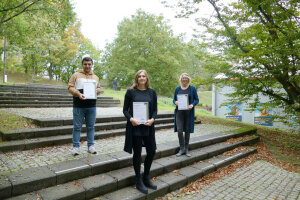
Dr. Valentina Nachtigall, Berke Kücük und Prof. Dr. Nikol Rummel gehören mit ihrem Projekt „Theorien verstehen am CASE durch Collaboration, Anwendung, Situiertheit und Elaboration“ zu den Gewinnern der 25. Runde des 5x5000 RUBeL-Wettbewerbs. Das Motto des Wettbewerbs lautete „Lehre in Szene gesetzt – Lehrszenarien mit eLearning kreieren". Diesem Motto entsprechend, bildet das fallbasierte Arbeiten das Herzstück des Projekts. Das ursprünglich als Blended-Learning Format geplante Projekt wurde im Sommersemester 2020 aufgrund der Corona-Pandemie als Onlineseminar umgesetzt. Kern dieses Seminarkonzepts bildete das CASE-Prinzip (= Collaboration, Anwendung, Situiertheit und Elaboration), wonach Studierende zunächst versuchten, individuell eine Lösung für einen Fall aus dem pädagogischen Kontext zu erarbeiten. Anschließend sollten anhand des Falls die theoretischen Grundannahmen abgeleitet und in Kleingruppen diskutiert werden. Die interaktiven Inhalte, die für die Bearbeitung des Falls zur Verfügung standen und mithilfe des Tools “H5P” in Moodle erstellt wurden, konnten einerseits im eigenen Lerntempo von den Studierenden erarbeitet und andererseits in Lerngruppen diskursiv reflektiert werden.
[20.03.20]
NEUE PROJEKTE: Wie digitale Angebote Weiterbildung und Geschichte vermitteln
RUB-Forschungsteams starten zwei Vorhaben zur hybriden Weiterbildung und zu virtuellen Geschichtserfahrungen. Weiterlesen...
[25.02.20]
LabExchange Forschungsstipendien für drei studentische Hilfskräfte
Charleen Brand, Joyce Hobrecht und Isabell Bohm, drei studentische Hilfskräfte am Lehrstuhl für Pädagogische Psychologie, erhielten im Rahmen des LabExchange Programms der Ruhr-Universität Bochum Stipendien für Forschungsaufenthalte an ausländischen Partnerhochschulen. Die Forschungsstipendien ermöglichen es den Studierenden, Einblick in aktuelle internationale erziehungswissenschaftliche Forschung zu bekommen. Zudem werden auf diese Weise bestehende Kooperationen zwischen den beteiligten Lehrstühlen gefestigt und Gelegenheiten für weitere gemeinsame Aktivitäten in Forschung und Lehre geschaffen. Charleen Brand verbrachte 2018 im Rahmen des Programmes neun Wochen an der University of British Columbia in Vancouver, Kanada, im Forschungsteam um Dr. Ido Roll. Während ihres Aufenthaltes arbeitete sie an einem Forschungsprojekt zur Identifizierung lernförderlicher kognitiver Prozesse von Studierenden während des forschenden Lernens innerhalb einer virtuellen Laborumgebung. Joyce Hobrecht verbringt im Frühjahr 2020 ihren Forschungsaufenthalt an der University of Toronto in Toronto, Kanada, im Forschungsteam um Prof. Dr. Jim Slotta. Während ihres Aufenthaltes ist sie in einem Designprojekt zur Gestaltung eines technologiegestützten Climate-Action Curriculums in Kooperation mit lokalen High-Schools tätig. Isabell Bohm verbringt ebenfalls im Frühjahr 2020 einen Forschungsaufenthalt an der University of Victoria in Victoria, Kanada. Während ihres Aufenthaltes wird sie gemeinsam mit dem Forschungsteam um Dr. Allyson Hadwin Methoden zur Implementation selbstregulierten Lernens in studentischen Kontexten erschließen.
[05.02.20]
Einladung zum Fachvortrag von Prof. Dr. Pierre Tchounikine: „Appropriation of Learning Technologies, Agency and Emancipation”
Am Dienstag, 11.02.2020, 10-12Uhr findet in GA 2/41 der Fachvortrag mit anschließender Diskussion von Prof. Dr. Pierre Tchounikine (Université Grenoble Alpes, Frankreich) statt. Prof. Tchounikine forscht zum Einsatz von Unterstützungsmaßnahmen im computergestützten kooperativen Lernen (CSCL) unter dem Gesichtspunkt der aktiven Nutzung und Deutung der Unterstützungsmaßnahmen durch die Lernenden. Zentral sind dabei in Fragen nach Autonomie und Emanzipation in solchen Lehr-Lern-Arrangements. Für den Vortrag ist keine Anmeldung erforderlich. Abstract des Vortrags: Appropriation is the process by which people adopt artifacts and make them their own. It is an important concern because it impacts what one uses software applications for and/or how one uses them. I will present a theoretical framework for understanding appropriation and study how it sheds some light on Learning Sciences settings: how teachers perceive software (example = a learning scenario editor) and how the activity of students engaged in Computer Sup-ported Collaborative Learning (CSCL) settings may/should be addressed. I will then argue that taking care of appropriation rejoins another important issue: supporting learners' agency and emancipation.
[05.12.19]
Stifterverband fördert innovative Lehre aus Bochum
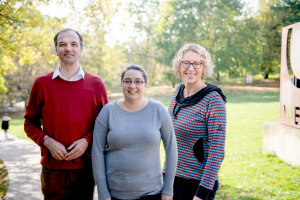
Zwei Projekte an der RUB können damit nun umgesetzt werden. Weil ihre Ideen für die Weiterentwicklung der Lehre so überzeugend sind, erhalten zwei Wissenschaftlerinnen und ein Wissenschaftler aus Bochum eine Lehrfellowship-Förderung vom Stifterverband. Damit können sie ihre Projekte umsetzen und sich mit Lehrfellows anderer Hochschulen vernetzen. Weiterlesen...
[25.11.19]
Pressemitteilung zum Start des neuen BMBF-Projekts KoLiBRi zur Förderung digital gestützter interdisziplinärer Kommunikation und Kooperation im Bauingenieurstudium
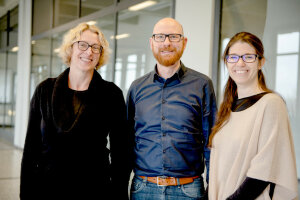
Zum Start des neuen vom BMBF geförderten Projektes KoLiBRi (Kooperieren Lernen im Bauingenieursstudium anhand digitaler 3D-Repräsentation von komplexen Informationen) am Lehrstuhl für Pädagogische Psychologie ist eine Pressemitteilung veröffentlicht worden. Sie finden sie hier
[04.11.19]
Neues BMBF-Projekt zur Förderung digital gestützter interdisziplinärer Kommunikation und Kooperation im Bauingenieurstudium
Zum 1. November 2019 ist am Lehrstuhl für Pädagogische Psychologie ein neues vom Bundesministerium für Bildung und Forschung gefördertes Projekt unter dem Namen KoLiBRI (Kooperieren Lernen im Bauingenieursstudium anhand digitaler 3D-Repräsentation von komplexen Informationen) gestartet. Die Zusammenarbeit über Disziplinen hinweg birgt ein immenses Potenzial, ist gleichzeitig aber auch ein schwieriges Unterfangen, welches erhebliche Probleme und Kosten verursachen kann – das zeigen z. B. Großbauprojekte wie die Elbphilharmonie oder der Berliner Flughafen auf eindrückliche Weise. Vor diesem Hintergrund ist es Ziel von KoLiBRI, im Rahmen der Bauingenieursausbildung an Hochschulen ein prototypisches digitales Fachkonzept zu entwickeln, zu erproben und zu erforschen, das den Erwerb von interdisziplinären Kommunikations- und Kooperationskompetenzen bei der digital unterstützten Zusammenarbeit mit 3D-Fachmodellen fördert. Projektverantwortliche sind Prof. Dr. Nikol Rummel (Projektleitung) und Dr. Julia Eberle vom Lehrstuhl für Pädagogische Psychologie, Prof. Dr. Markus König vom Lehrstuhl für Informatik im Bauwesen sowie Prof. Dr. Thomas Herrmann vom Lehrstuhl für Informations- und Technikmanagement an der Ruhr-Universität Bochum. In Kooperation mit den assoziierten Partnern (Fakultätentag für Bauingenieurwesen, Geodäsie und Umweltingenieurwesen, Arbeitskreis Bauinformatik, Bauindustrieverband NRW, Zentrum für Wissenschaftsdidaktik der RUB) wird der nachhaltige Transfer des digitalen Fachkonzepts in die Studiengänge und Ausbildungsberufe im Bauwesen angestrebt.
[30.10.19]
Kapitel von Meike Osinski, Dr. Julia Eberle und Prof. Nikol Rummel in dem Buch „Placebo 2.0 – Die Macht der Erwartung“ veröffentlicht
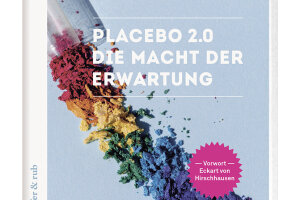
Placebo und Pädagogik? Wie das zusammenpasst, damit beschäftigen sich Meike Osinski, Dr. Julia Eberle und Prof. Nikol Rummel in dem gleichnamigen Kapitel des neuerschienenen Buches „Placebo 2.0. – Die Macht der Erwartung“ herausgegeben von den führenden Placebo-Forschenden Prof. Dr. Ulrike Bingel und Prof. Dr. Manfred Schedlowski gemeinsam mit der Wissenschaftsjournalistin Helga Kessler. Ausgehend von dem allseits bekannten und doch immer wieder verblüffenden Placebo-Effekt in der Medizin, beleuchten Expertinnen und Experten den Placebo-Effekt und seine Wirkmechanismen in unterschiedlichen Domänen, z. B. im Sport, im Marketing und eben in der Pädagogik. So eröffnet das Werk für alle Interessierten neue Blickwinkel auf ein spannendes Thema rund um die Macht der Erwartungen. Das Buch ist ab sofort im Handel erhältlich oder kann direkt beim Verlag bestellt werden: https://www.ruefferundrub.ch/home/neuerscheinungen/item/636-placebo-2-0 Hier findet man zudem weiterführende Informationen und eine Leseprobe.
[17.09.19]
Special Section zu Future Learning Spaces for Learning Communities im British Journal of Educational Technologies erschienen
In der aktuellen Ausgabe des British Journal of Educational Technology (Volume 50, Number 5) ist eine Special Section mit dem Titel „Future Learning Spaces for Learning Communities: Perspectives from the Learning Sciences” erschienen, die gemeinsam von Dr. Julia Eberle, Dr. Yotam Hod und Prof. Dr. Frank Fischer als Gasteditoren herausgegeben wurde. In der Special Section werden einerseits neue Konzeptualisierungen und theoretische Sichtweisen auf Future Learning Spaces thematisiert, andererseits empirische Befunde vorgestellt, wie digitale und physische Lernumgebungen die Lernerfahrung prägen, sowie Ansätze zur Übertragung dieser wissenschaftlichen Erkenntnisse in den praktischen pädagogischen Alltag präsentiert. Die Special Section enthält die folgenden Beiträge:
- Future learning spaces for learning communities: Perspectives from the learning sciences (Julia Eberle, Yotam Hod & Frank Fischer)
- An ecological perspective on learner‐constructed learning spaces (Crina Damşa, Monika Nerland & Zacharias E. Andreadakis)
- Designing for situated learning: Understanding the relations between material properties, designed form and emergent learning activity (Pippa Yeoman & Stephanie Wilson)
- Going immersive in a community of learners? Assessment of design processes in a multi‐setting architecture studio (Hadas Sopher, Dafna Fisher Gewirtzman & Yehuda E. Kalay)
- Taking responsibility to support knowledge building: A constructive entanglement of spaces and ideas (Yotam Hod, Chen Yaari & Julia Eberle)
- Connecting knowledge spaces: Enabling cross‐community knowledge building through boundary objects (Guangji Yuan & Jianwei Zhang)
- Teaching expertise reconsidered: The Technology, Pedagogy, Content and Space (TPeCS) knowledge framework (Yael Kali, Ornit Sagy, Maya Benichou, Osnat Atias & Rachel Levin‐Peled)
[05.09.19]
Vortrag von Prof. Nikol Rummel auf der TEDx-Konferenz an der Ruhr-Universität Bochum
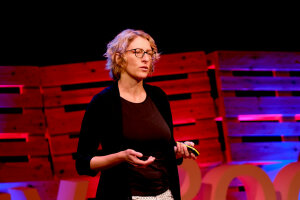
Prof. Nikol Rummel hat einen der insgesamt zwölf Vorträge auf der Konferenz gehalten. In Ihrem Vortrag beschreibt sie, wie Scheitern die Produktivität von Lernen beeinflusst. Weitere Informationen zur TEDx-Konferenz und dem Vortragsvideo finden Sie hier
[20.05.19]
Beitrag von Julia Erdmann in der RUBIN-Serie „Über das Vergessen“
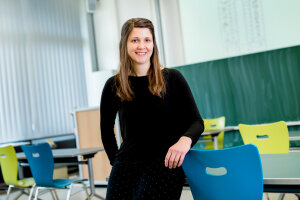
Julia Erdmann berichtet in ihrem Beitrag zur RUBIN-Serie über das Vergessen von Ihrer Forschung zum Rechtschreiberwerb. Sie untersucht, inwieweit bestimmte Unterrichtsmethoden dazu führen, dass fehlerhafte Lerninhalte eingeübt und nur schwer wieder vergessen werden können. Den Beitrag finden Sie unter: https://news.rub.de/wissenschaft/2019-05-15-erziehungswissenschaft-vergessen-unmoeglich
[16.04.19]
Neue Veröffentlichung von Anouschka van Leeuwen und Nikol Rummel in der Zeitschrift „Unterrichtswissenschaft“
Dr. Anouschka van Leeuwen von der Universität Utrecht veröffentlicht gemeinsam mit Prof. Dr. Nikol Rummel einen Überblicksartikel über sogenannte Orchestration tools, die Lehrerinnen und Lehrern helfen kooperatives Lernen adaptiv zu unterstützen. Der gemeinsame Artikel geht aus dem Forschungsaufenthalt von Dr. van Leeuwen am Lehrstuhl für Pädagogische Psychologie hervor, den sie von Oktober 2016 bis April 2018 absolvierte und für den sie eine Rubicon-Forschungsförderung der NWO erhielt. Lesen und runterladen können Sie den vollständigen Artikel unter: http://link.springer.com/article/10.1007/s42010-019-00052-9
[11.04.19]
Beitrag von Frau Prof. Dr. Rummel in der Mai-Ausgabe der RUBIN
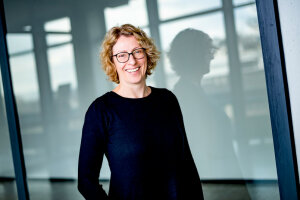
In der neuen RUBIN-Serie „Über das Vergessen“ erklärt Frau Prof. Dr. Rummel wie man Lerninhalte optimal festigen und so dem Vergessen entgegenwirken kann. Den Beitrag finden Sie unter: https://news.rub.de/wissenschaft/2019-04-03-erziehungswissenschaft-lerninhalte-optimal-festigen
[11.04.19]
Prof.Dr. Rummel erhält Auszeichnung von der International Society of the Learning Sciences
Die International Society of the Lerning Sciences zeichnet Frau Prof. Dr. Rummel als ISLS Fellow aus. Diese Auszeichnung wird nur an solche Mitglieder der ISLS Community vergeben, die sich sowohl in wissenschaftlicher Hinsicht als auch durch ihr kontinuierliches Engagement für die Community besonders verdient gemacht haben. Weitere Informationen finden Sie unter: https://www.isls.org/about/isls-fellows
[20.03.19]
Prof. Dr. Rummel beim TEDx Event

Prof. Dr. Rummel vom Lehrstuhl für Pädagogische Psychologie ist eine der RednerInnen beim TEDx Event am 04. Mai 2019. In ihrem Beitrag spricht Nikol Rummel über das Scheitern und wie dieses als Lerngelegenheit nutzbar gemacht werden kann. Dabei wird sie das Phänomen des Scheiterns sowohl aus Perspektive der Lernenden beleuchten, als auch aus Sicht der Lehrenden. Weitere Informationen und Ticket finden Sie unter den folgenden Links: Informationen zum Talk: https://www.facebook.com/TEDxRuhrUniversityBochum/photos/a.1794778730800430/2276851379259827/?type=3&theater
[11.07.18]
Lehrstuhl für Pädagogische Psychologie auf der ICLS in London
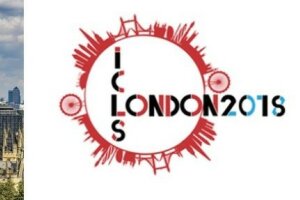
Auf der diesjährigen International Conference of the Learning Sciences (ICLS) in London war der Lehrstuhl für Pädagogische Psychologie mit den folgenden fünf Beiträgen vertreten:
- Charleen Brand, Christian Hartmann, & Nikol Rummel: Exploring Relevant Problem-Solving Processes in Learning from Productive Failure
- Julia Eberle, Tim Schönfeld, Selma Arukovic, & Nikol Rummel: How to Enjoy Writing Papers: Supporting Literature-Based Inquiry Learning to Reduce Procrastination and Foster Ownership and Positive Emotions
- Christian Hartmann, Nikol Rummel, & Tamara van Gog: Using Example-based PF Conditions to Investigate Preparatory Effects of Problem-solving Prior to Instruction
- Valentina Nachtigall, Angelina Keuschnig, Lena Behrendt, & Laura Brune: Authentic Learning and Teaching in an Out-of-School Lab - First Steps towards Empirical Investigation of a Theoretical Model
- Sebastian Strauß, Nikol Rummel, Filipa Stoyanova, & Nicole Krämer: Developing a Library of Typical Problems During Collaborative Learning in Online Courses
[21.06.18]
Martina Rau als VIP zu Gast am Lehrstuhl für Pädagogische Psychologie
Am Lehrstuhl für Pädagogische Psychologie war Dr. Martina Rau, Assistant Professor am Educational Psychology Department der University of Wisconsin-Madison (USA), zu Gast. Während ihres Besuchs beriet Martina Rau schwerpunktmäßig die Doktorandinnen und Doktoranden des Lehrstuhls methodisch wie inhaltlich hinsichtlich ihrer Dissertationsprojekte. Zudem gab sie Studierenden in Lehrveranstaltungen direkte Einblicke in spezifische Forschungsmethoden und präsentierte im Rahmen des Forschungskolloquiums der Lehr-/Lernforschung und der Pädagogischen Psychologie ihre eigene Forschungsarbeit. Der Aufenthalt sowie noch weitere Besuche in den nächsten zwei Jahren werden über das VIP (Visiting International Professor) Fellowship der RUB Research School gefördert.
[07.12.17]
Neues DFG-Projekt zu sozialer Eingebundenheit in der Studieneingangsphase
Am Lehrstuhl für Pädagogische Psychologie beginnt Anfang 2018 ein neues Forschungsprojekt, das durch die Deutsche Forschungsgemeinschaft (DFG) gefördert wird. Vor dem Hintergrund hoher Studienabbruchquoten in naturwissenschaftlich-technischen Studiengängen soll untersucht werden, welche Rolle soziale Eingebundenheit und die Nutzung sozialer Ressourcen in der Studieneingangsphase für den Studienerfolg haben. Das Projekt wird unter der Leitung von Prof. Dr. Daniel Bodemer (Universität Duisburg Essen) und von Dr. Julia Eberle durchgeführt. Prof. Dr. Nicole Krämer (Universität Duisburg Essen), Prof. Dr. Nikol Rummel und Prof. Dr. Katrin Sommer (Lehrstuhl für Didaktik der Chemie an der Ruhr-Universität Bochum) sind ebenfalls Antragsteller und unterstützen das Projekt. Das Projekt ist Teil des Forschungsverbunds ALSTER, der in enger Kooperation zwischen der Ruhr-Universität Bochum und der Universität Duisburg Essen akademisches Lernen und Studienerfolg in der Eingangsphase von naturwissenschaftlich-technischen Studiengängen untersucht.
[07.12.17]
Neues DFG-Projekt zu sozialer Eingebundenheit in der Studieneingangsphase
Am Lehrstuhl für Pädagogische Psychologie beginnt Anfang 2018 ein neues Forschungsprojekt, das durch die Deutsche Forschungsgemeinschaft (DFG) gefördert wird. Vor dem Hintergrund hoher Studienabbruchquoten in naturwissenschaftlich-technischen Studiengängen soll untersucht werden, welche Rolle soziale Eingebundenheit und die Nutzung sozialer Ressourcen in der Studieneingangsphase für den Studienerfolg haben. Das Projekt wird unter der Leitung von Prof. Dr. Daniel Bodemer (Universität Duisburg Essen) und von Dr. Julia Eberle durchgeführt. Prof. Dr. Nicole Krämer (Universität Duisburg Essen), Prof. Dr. Nikol Rummel und Prof. Dr. Katrin Sommer (Lehrstuhl für Didaktik der Chemie an der Ruhr-Universität Bochum) sind ebenfalls Antragsteller und unterstützen das Projekt. Das Projekt ist Teil des Forschungsverbunds ALSTER, der in enger Kooperation zwischen der Ruhr-Universität Bochum und der Universität Duisburg Essen akademisches Lernen und Studienerfolg in der Eingangsphase von naturwissenschaftlich-technischen Studiengängen untersucht.
[22.11.17]
Selma Arukovic erhält Studierendenpreis der Fakultät
Im Rahmen der akademischen Jahresfeier 2017 wurde der Studierendenpreis der Fakultät für Philosophie und Erziehungswissenschaft an Selma Arukovic verliehen. Mit diesem Preis wurde Frau Arukovic für ihre herausragende Masterarbeit „Evaluation eines Online-Forschungslogbuchs als Maßnahme zur Förderung der Selbstregulation beim Verfassen wissenschaftlicher Hausarbeiten“ ausgezeichnet, die sie am Lehrstuhl für Pädagogische Psychologie unter Betreuung von Dr. Julia Eberle schrieb. In ihrer Arbeit erfasste und analysierte Frau Arukovic anhand von Einzelfallstudien über mehrere Wochen den Prozess des Hausarbeit-Schreibens mit Unterstützung durch das Online Forschungslogbuch. Dabei fokussierte sie vor allem das emotionale Erleben und das Prokrastinationsverhalten der Studierenden und leitete aus ihren Ergebnissen Maßnahmen zur weiteren Unterstützung von Studierenden ab. Seit dem Sommersemester 2017 ist Frau Arukovic Lehrbeauftragte am Institut für Erziehungswissenschaft.
[04.04.17]
BMBF-Projekt zur digitalen Hochschulbildung bewilligt
Hier zur Pressemitteilung: http://news.rub.de/presseinformationen/wissenschaft/2017-04-03-lehr-forschung-studieren-im-digitalen-zeitalter
[27.03.17]
Dr. Anouschka van Leeuwen (Utercht) am Lehrstuhl für Pädagogische Psychologie
Im Zeitraum von Oktober 2016 bis April 2018 erhält der Lehrstuhl für Pädagogische Psychologie Unterstützung durch die Gastwissenschaftlerin Dr. Anouschka van Leeuwen von der Universität Utrecht. Frau Dr. van Leeuwen erhielt nach dem Abschluss ihrer Promotion in den Niederlanden eine Rubicon-Forschungsförderung der NWO. Diese Förderung eröffnet ihr die Möglichkeit ihre Forschung für anderthalb Jahre im Ausland fortzusetzen. Der Titel ihres Projekts lautet „From overload to overview: Learning analytics to aid teachers”. Ziel des Projektes ist die Entwicklung und Evaluation von Unterstützungsangeboten (sogenannten „Teacher Dashboards“), mithilfe derer Lehrerinnen und Lehrer bei der Umsetzung von kooperativen Lernformen im Unterricht unterstützt werden sollen. Weitere Information zum Projekt und über Frau Leeuwen, finden Sie auf folgender Webseite: http://anouschkavanleeuwen.com/torch-project
[12.11.15]
Valentina Nachtigall gewinnt RUB-Studierendenpreis
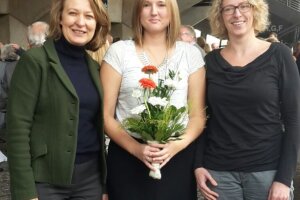
Im Rahmen der diesjährigen akademischen Jahresfeier erhielt Valentina Nachtigall einen RUB-Studierendenpreis für ihre Masterarbeit „Medienkompetenz in der Erwachsenenbildung: Modelle im theoretischen und empirischen Vergleich“. Mithilfe einer schriftlichen Befragung von VHS- Kursteilnehmenden überprüfte Frau Nachtigall einerseits drei ausgewählte Medienkompetenz- Modelle durch Anwendung der explorativen Faktorenanalyse und führte andererseits eine praxisorientierte Bedarfsanalyse für Veranstaltungen der primär allgemein orientierten Erwachsenenbildung durch. Betreuerin war Frau Dr. Katja Serova. Seit dem 01.11.2015 ist Valentina Nachtigall PSE-Promotionsstipendiatin am Lehrstuhl für Pädagogische Psychologie bei Prof. Dr. Nikol Rummel.
